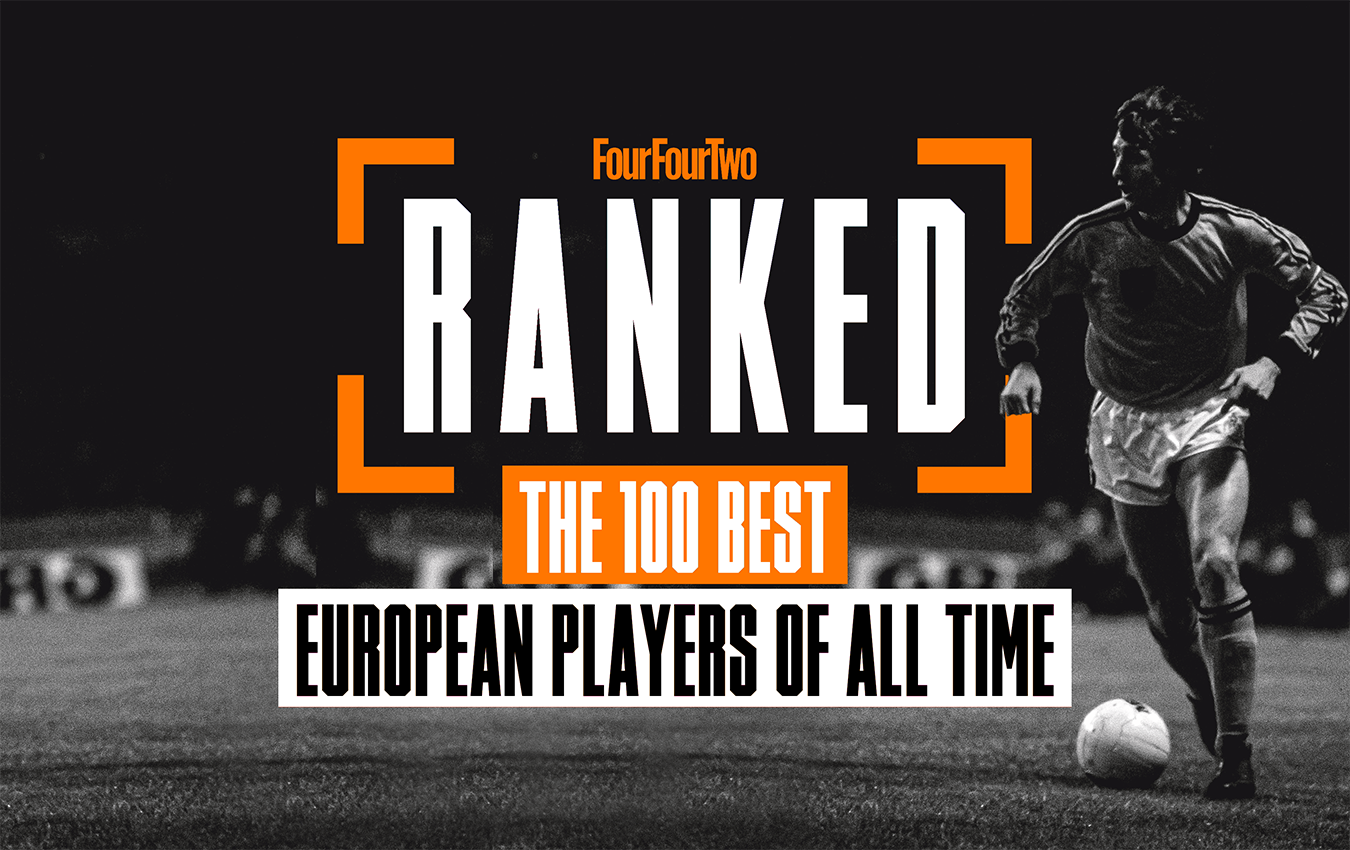
The vast majority of the 100 best European football players of all time might no longer be lacing up their boots week after week to strut their stuff on the domestic, continental and international stage, but that doesn't mean we can no longer appreciate their genius; the esoteric brilliance only a minute few can comprehend but a great wave of supporters can marvel at.
Plenty of players have come and gone, but these European stars have all left a lasting imprint on the continent - and for some, even in places further afield. There's goalscorers, creators, devastators and destroyers, all combined to provide a celebration of the greatest to grace the pitch.
Inevitably, some players will be ranked wrongly - at least, in an individual's eyes - but that's the nature of the beast. Beauty is in the eye of the beholder after all, but each of the following 100 European players have managed to catch the attention in their own unique way. Enjoy!
The 100 best European football players of all time
100. Toni Kroos
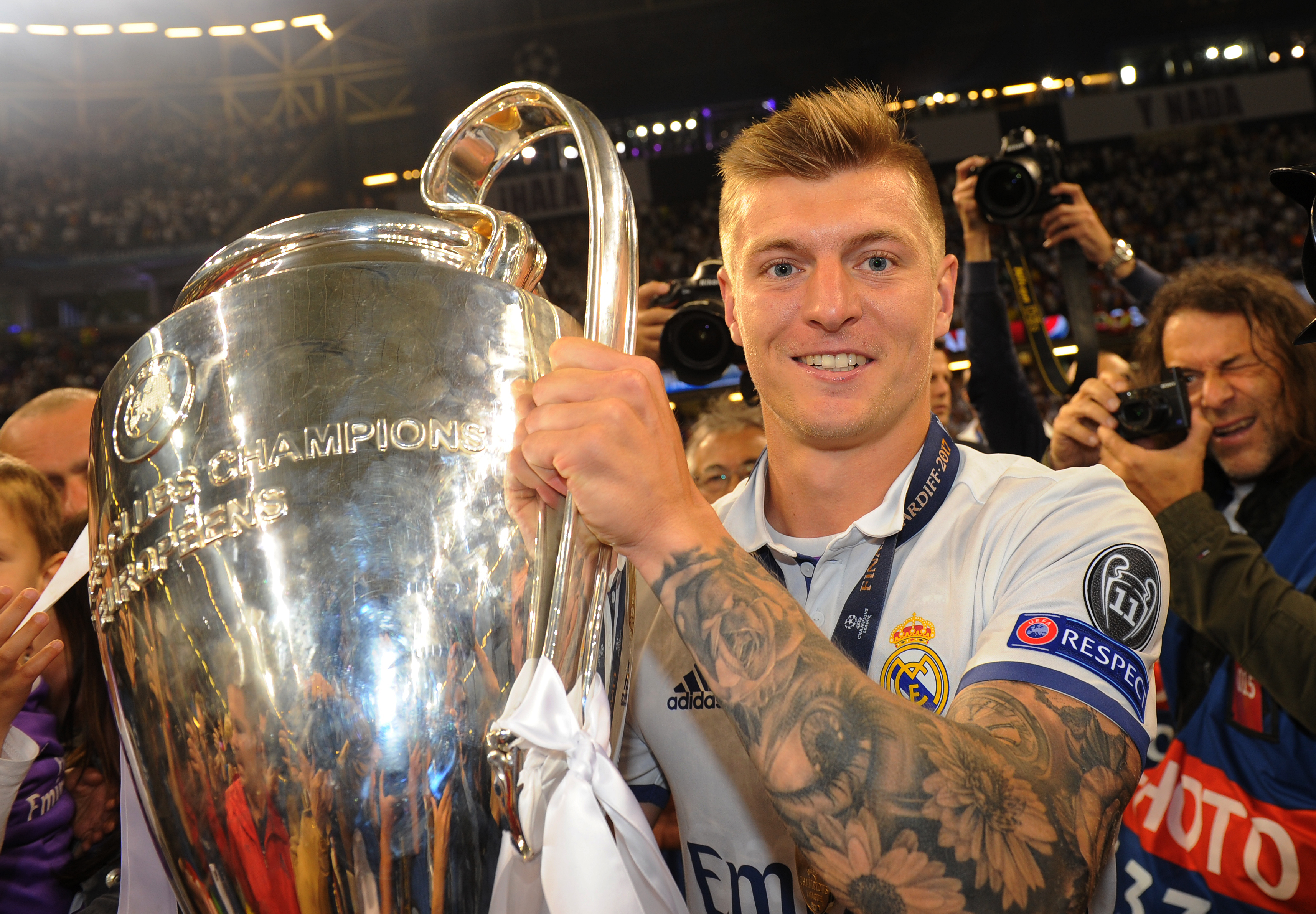
His teammates may have grabbed the headlines throughout his career, but make no mistake: Kroos has been as vital to Bayern Munich, Real Madrid, and Germany’s 2014 World Cup-winning side as anybody.
Kroos’ two-goal showing in the 7-1 demolition of hosts Brazil in the semi-finals that year was one of the most dominant performances ever seen on international football’s biggest stage.
His incredible accuracy, technique, tactical prowess, and sheer physicality have made Kroos the archetypal 21st-century central midfielder. You simply don’t win five Champions Leagues and a World Cup by mistake.
99. Petr Cech
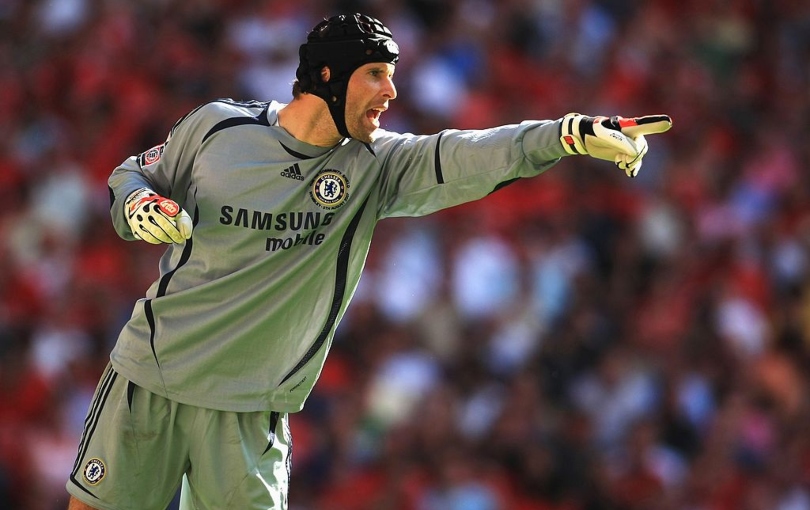
Eyebrows hit the ceiling when Chelsea signed 21-year-old Cech to replace in-form Carlo Cudicini for a hefty £9m – but of all the Roman Abramovich millions spent on players, Chelsea never got a better deal.
The Czech spent a decade at Stamford Bridge keeping goal to a ceaselessly incredible standard, even after suffering the horrible skull fracture that would force him into headgear for the rest of his career.
Across his time at Chelsea and Arsenal, Cech kept the cleanest sheets in Premier League history –and it’s not even close – becoming the only man ever to clear 200.
98. Erling Haaland
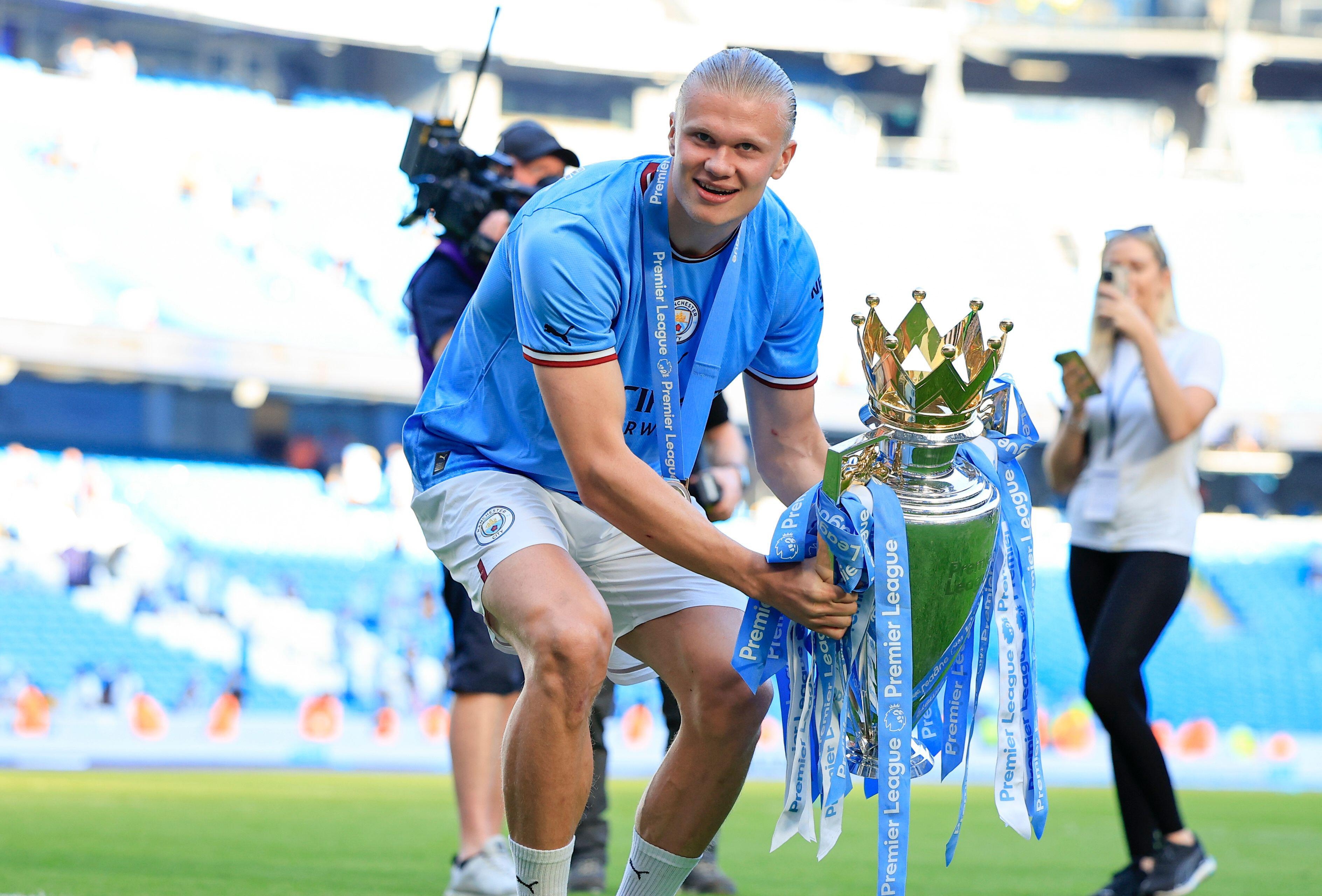
Robot? Alien? Robot-alien hybrid? Or simply an absolute beast of a player, custom-made for scoring goals?
It’s always telling when a player surpasses their famous parent to the extent that Haaland is no longer described as ‘Alfe-Inge’s son’; now, the former Leeds midfielder is ‘Erling’s dad’.
The youngest player on this list, Haaland is destined to rise far, far higher in future editions; but at 23 years old, he has already scored well over 200 goals at senior level and broken a fleet of Premier League records.
97. Marco Tardelli
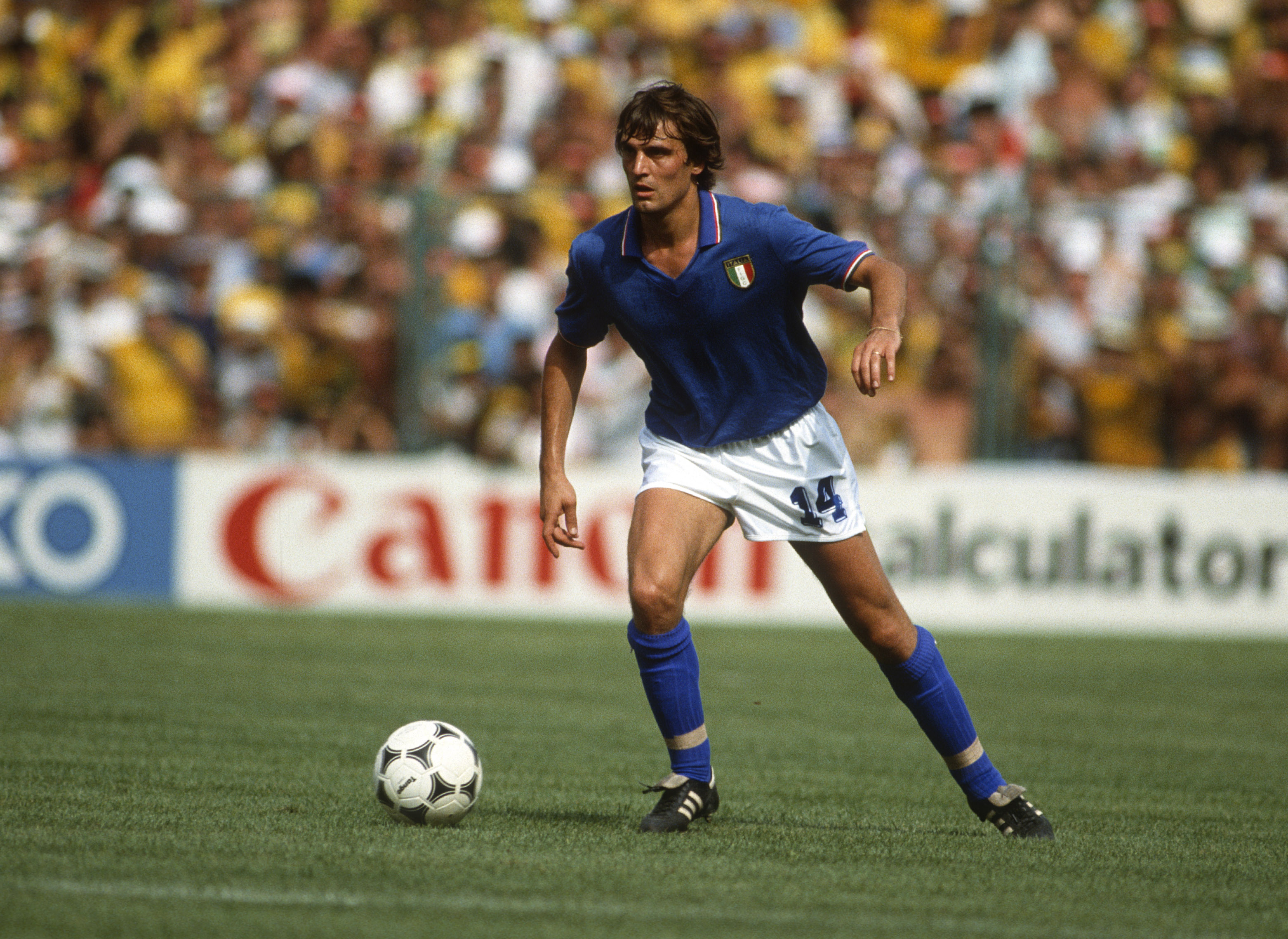
Best remembered for his iconic celebrations after putting Italy 2-0 ahead in the 1982 World Cup final, Tardelli was a fixture for his national team and a vital part of one of Juventus’ most iconic sides.
One of the midfield greats of his generation Tardelli could truly do it all years before Yaya Toure was a glint in his father’s eye – and with both feet, to boot.
Alongside Juve teammates Antonio Cabrini and Gaetano Scirea, Tardelli was the first member of an exclusive ten-man club of players to have won the UEFA Cup, Cup Winners’ Cup and European Cup.
96. Bernd Schuster
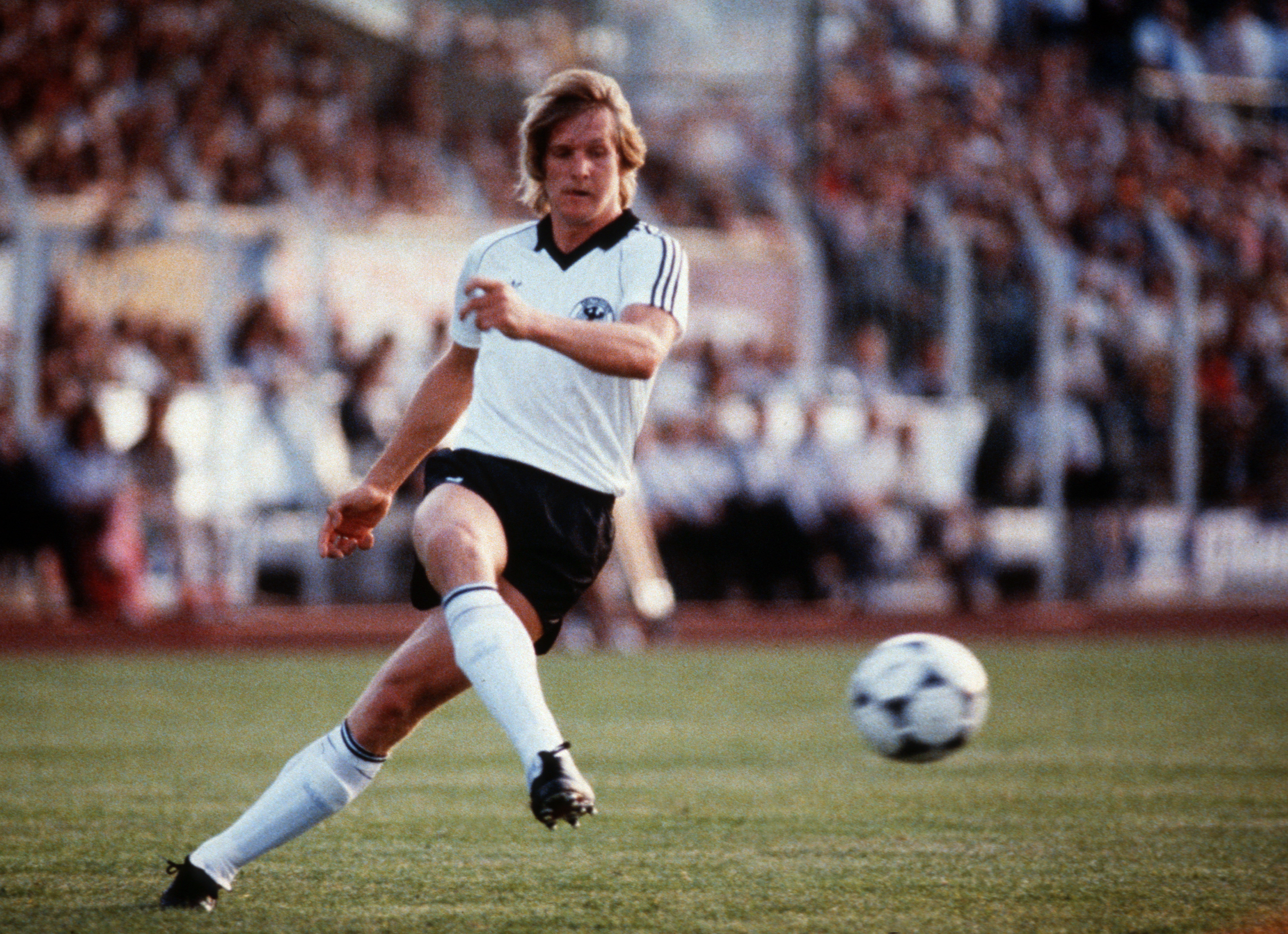
Nicknamed the Blond Angel – with some irony – and one of only two players in history ever to have played for the Spanish holy trinity of Barcelona, Real Madrid and Atletico Madrid.
Goalscoring midfielder Schuster won trophies everywhere he plied his trade, and was named the second-best player in the world after helping West Germany to victory at the 1980 Euros.
But Schuster made himself unavailable for international selection in 1984 after constant fall-outs with… well, practically everyone, depending who you listen to. Had he added to his 21 international caps, Schuster may well be ranked even higher.
95. Harry Kane
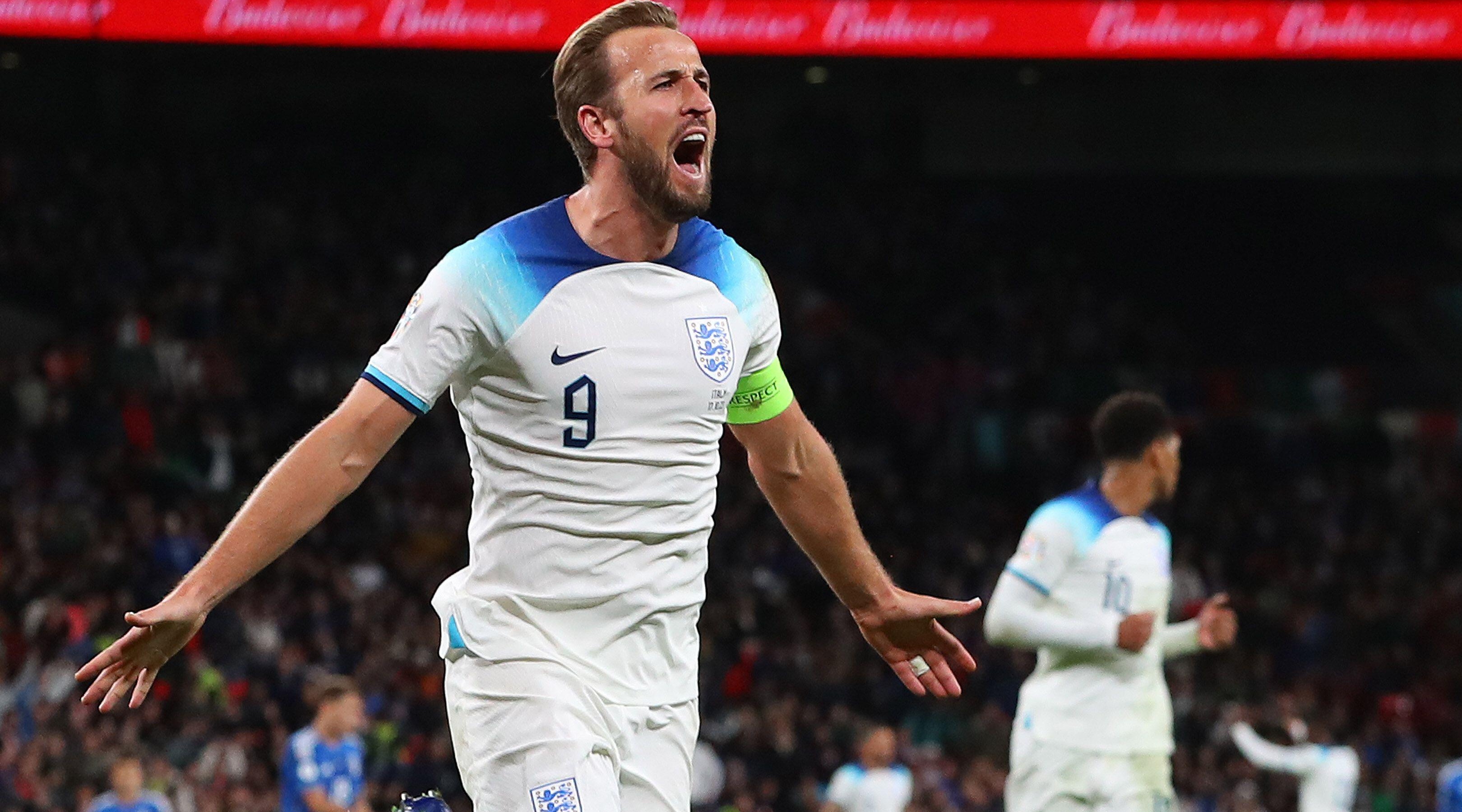
England’s all-time leading goalscorer? Tottenham’s all-time leading goalscorer, breaking record Jimmy Greaves held for over half a century? A three-time Premier League Golden Boot winner, and the only man to even look remotely like troubling Alan Shearer’s record as the division’s all-time leading goalscorer (until he departed for Germany last year)? That’s gotta be Kane.
It’s amusing to think there was ever a time when Kane’s capabilities were in doubt, but once he started scoring in 2014/15, he simply didn’t stop. This flash-in-the-pan turned out to be the real deal. Big time.
94. Jose Antonio Camacho
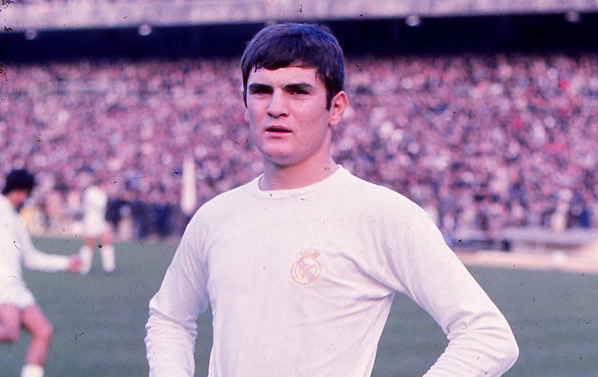
Real Madrid’s most reliable left-back of all time, Camacho broke into the first team at the Bernabeu aged 18, in 1974, and barely relinquished his place until he hung up his boots in 1989.
Had he not missed nearly two years with a horror injury, he would be even higher than ninth in the club’s all-time appearance list.
Ironic, then that Camacho is the shortest- and second-shortest-reigning permanent Real Madrid boss of all time. His stint in summer 1998 lasted just 22 days and zero games. He came back for another go in 2004; this time he lasted six games
93. Sepp Maier
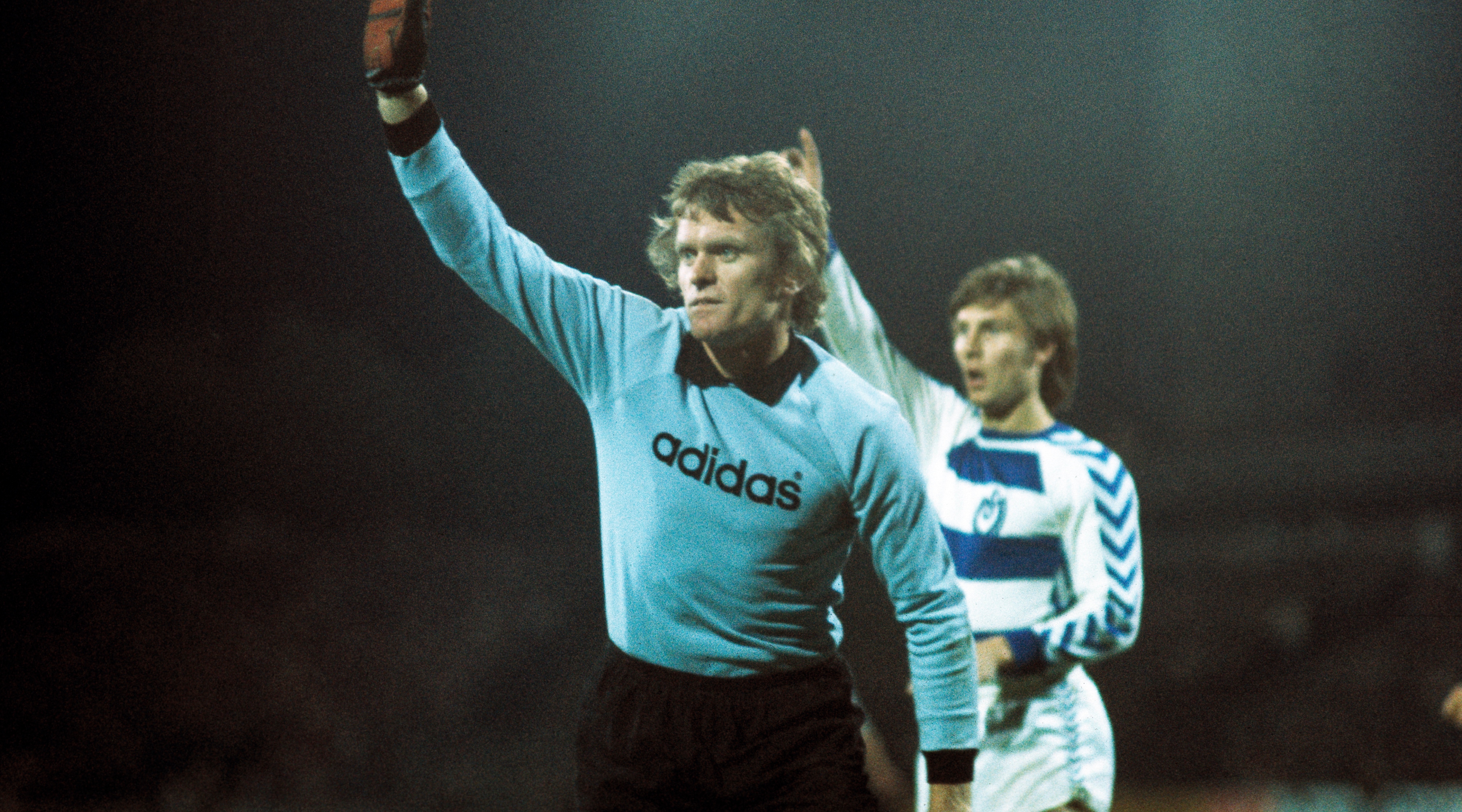
A one-club man both as a player and a coach, Maier was Bayern Munich and West Germany’s long-standing first-choice goalkeeper from the mid-60s through to the end of the 1970s.
Maier was between the sticks for all three of Bayern’s never-better three consecutive European Cup wins from 1974-76, as well as West Germany’s 1972 Euros and 1974 World Cup triumphs.
That earned Maier recognition as the best keeper of the 20th century for two of the biggest powerhouses in European football at club and international level. Apparently he was funny, too, which is nice.
92. Nandor Hidegkuti
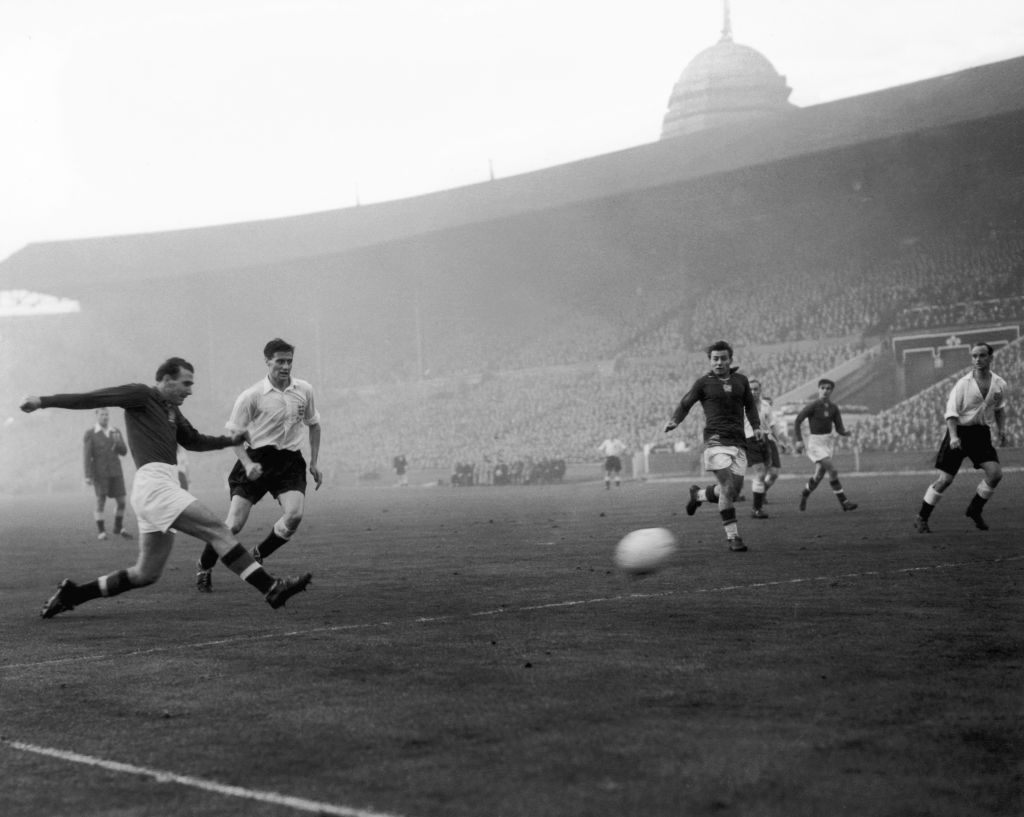
Another member of that Hungarian Olympic gold medal-winning side that battered England at Wembley in 1953 (Hidegkuti scoring a hat-trick) and took the 1954 World Cup by storm before falling at the final hurdle.
Just as Grosics revolutionised goalkeeping, Hidegkuti baffled opponents by dropping back from his nominal centre-forward role to find space in between the lines, like a modern number 10 or false 9.
As Don Revie later wrote: “Whatever people claim of Koscis and Puskas, it was the man Hidegkuti who tore the England defence to shreds”
91. Gyula Grosics
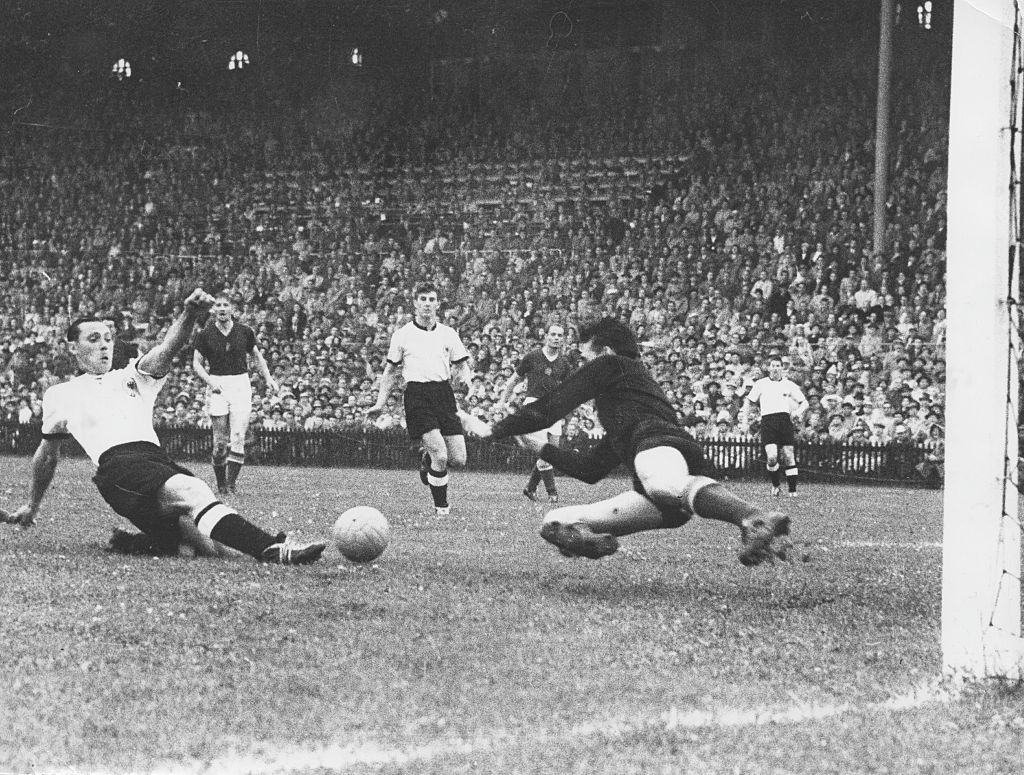
A Hungarian goalkeeper, with a remarkable story. After being taken as a prisoner of war by the Americans in World War II, Grosics played a huge part in the famous Hungary side of the 1950s.
That was despite receiving a two-year ban and facing espionage and treason charges for trying to defect from the Communist regime in 1949. He fled again in 1956, only to be forcibly returned.
On the pitch, Grosics was perhaps the world’s first sweeper-keeper some 45 years before the invention of the backpass rule forced goalkeepers to become more than just shot-stoppers.
90. Robert Lewandowski
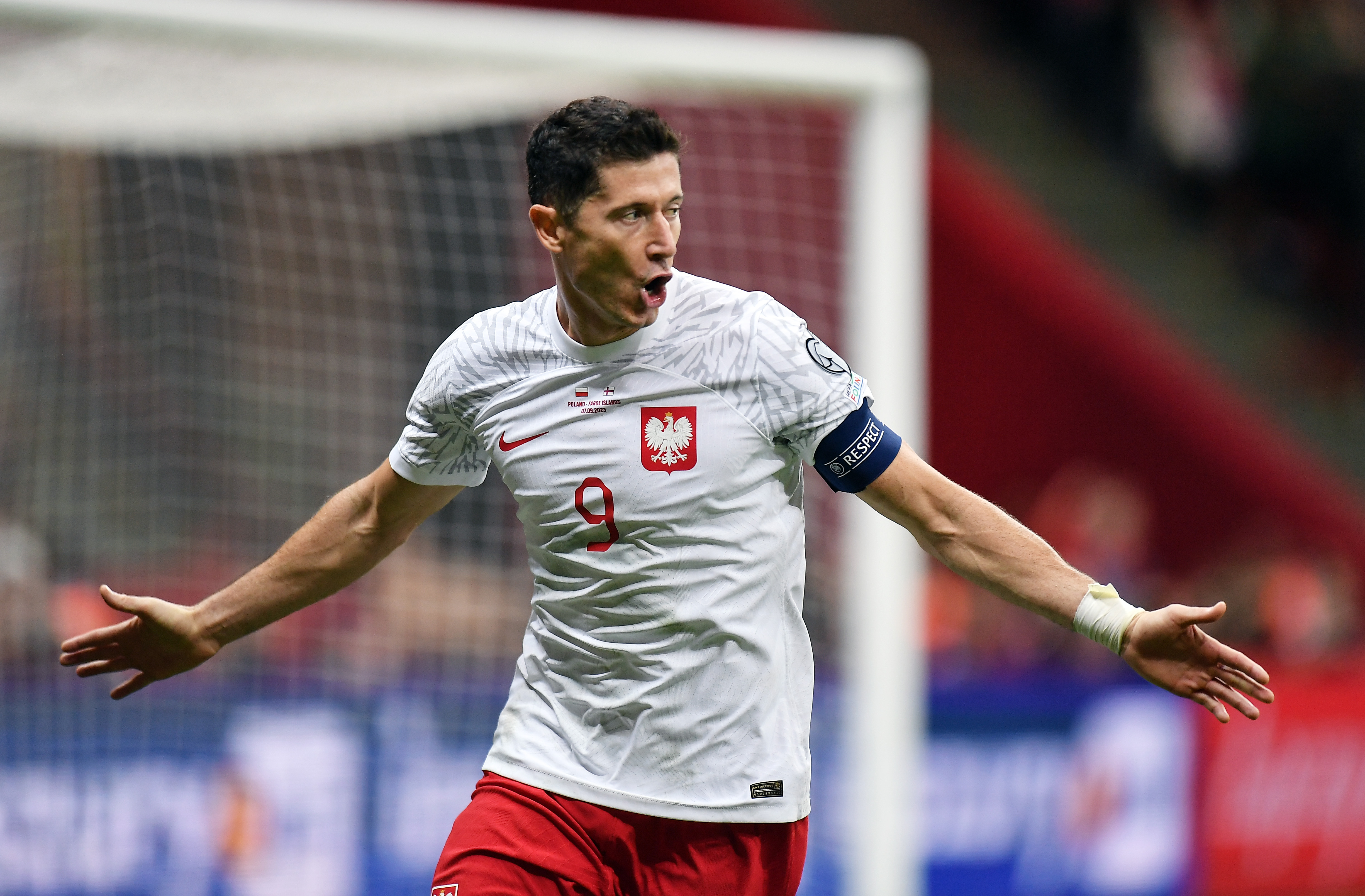
One of the most robotically clinical strikers of the 21st century, Lewandowski is one of those players who is all about the numbers.
At time of writing, he is closing in on 600 club goals in all competitions in fewer than 840 appearances, including getting almost a goal per game in the Bundesliga for Bayern Munich.
The Pole is the fourth highest-scoring European in the history of international football – despite playing for a fairly middling nation – and could conceivably rise to second before his remarkable career is over. No further justification needed.
89. Patrick Vieira
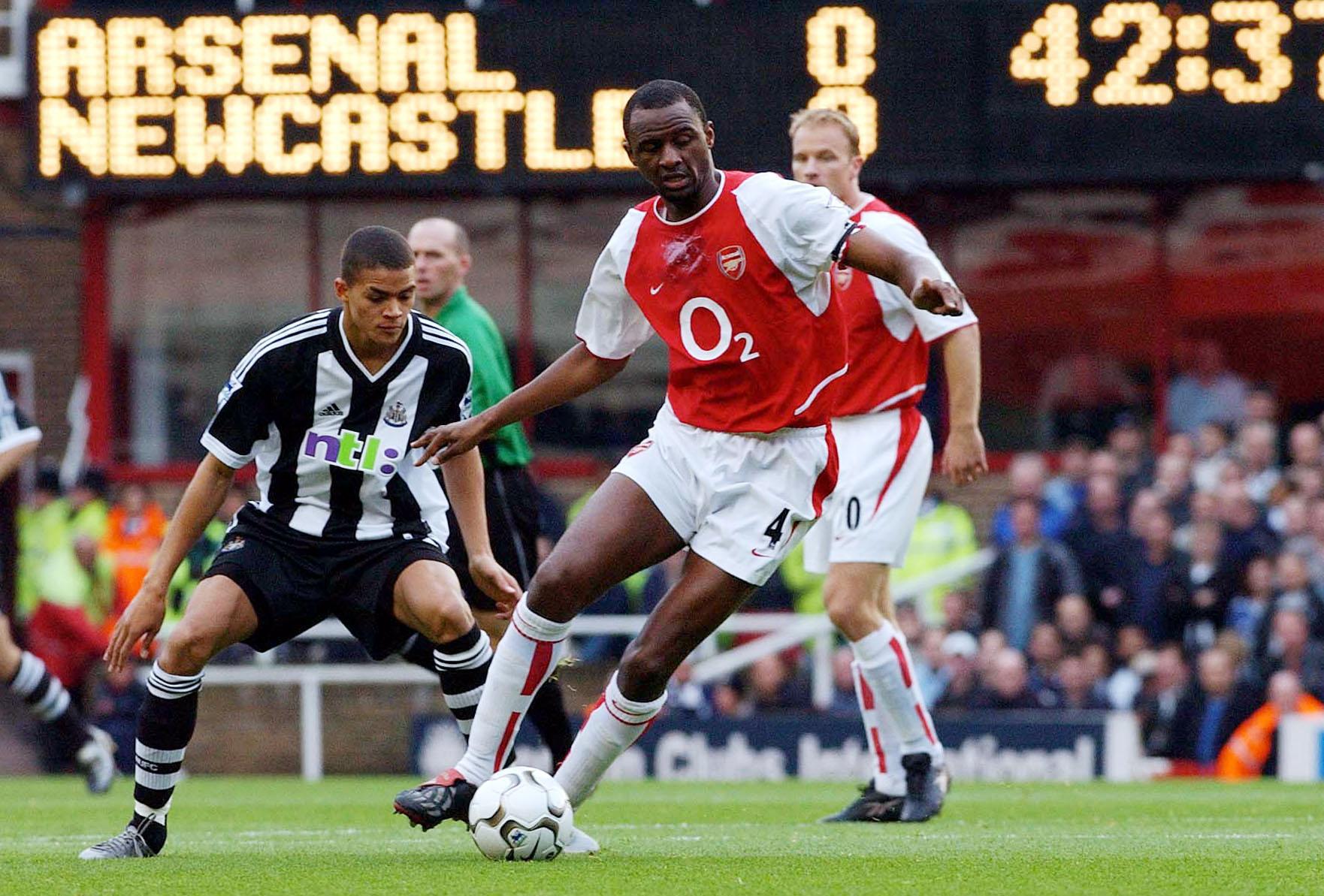
A pivotal part of Arsenal’s success under Arsene Wenger in the late 90s/early 2000 era, Patrick Vieira was merely a man who had it all. A midfielder metronome, the Frenchman displayed a skillset envied by most - usually Roy Keane - and was as tough in the tackle as well as light on his feet. A serial winner in both England and Italy.
88. Alessandro Del Piero
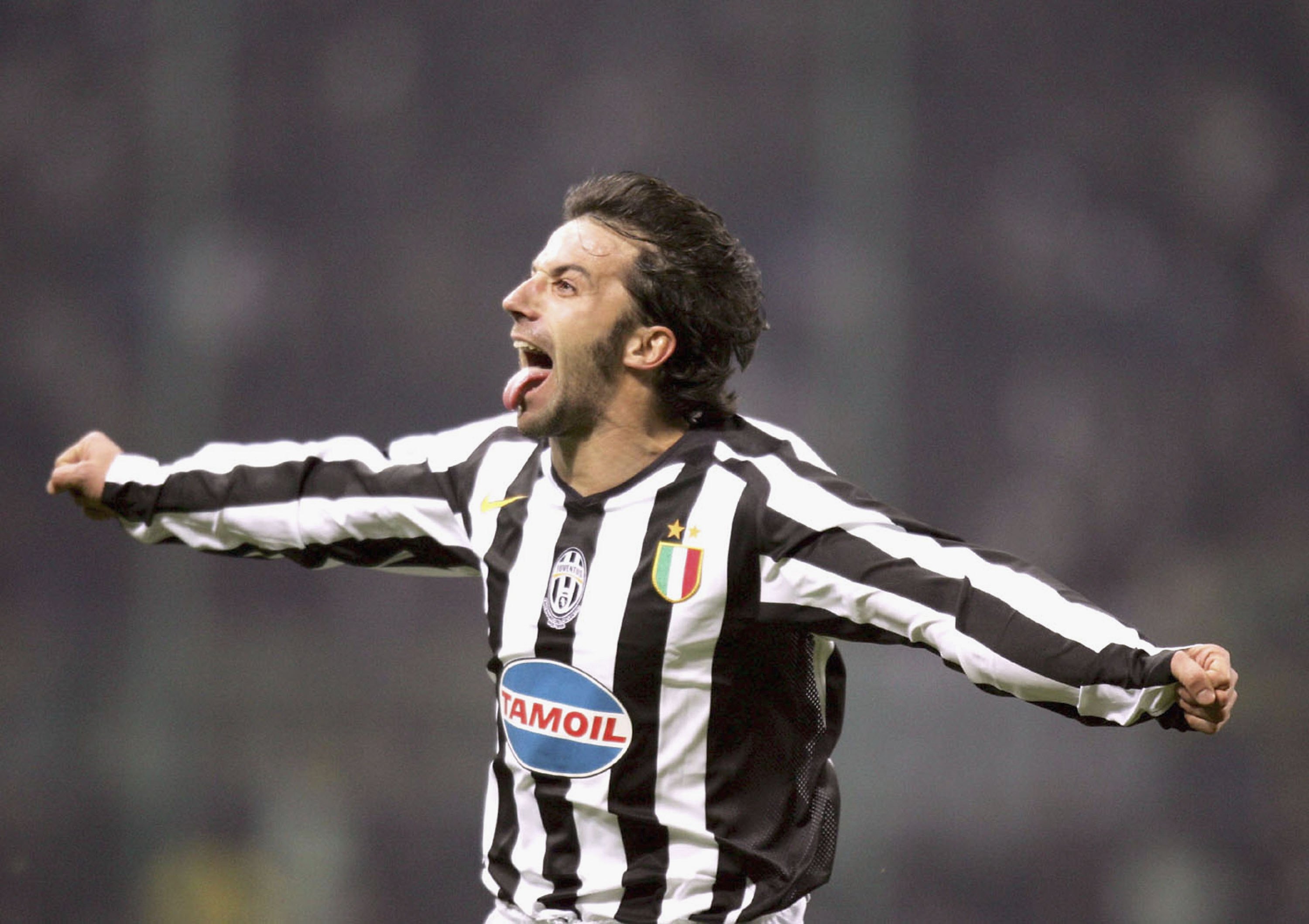
Dubbed the greatest Italian player to have ever lived, Alessandro Del Piero was merely a modern-day magician. Juventus’ current top scorer goalscorer of all time, the Trequartista danced around the football pitch and often left defenders wailing as his footwork dazzled those watching on. A World Cup winner in 2006 too.
87. Claude Makelele
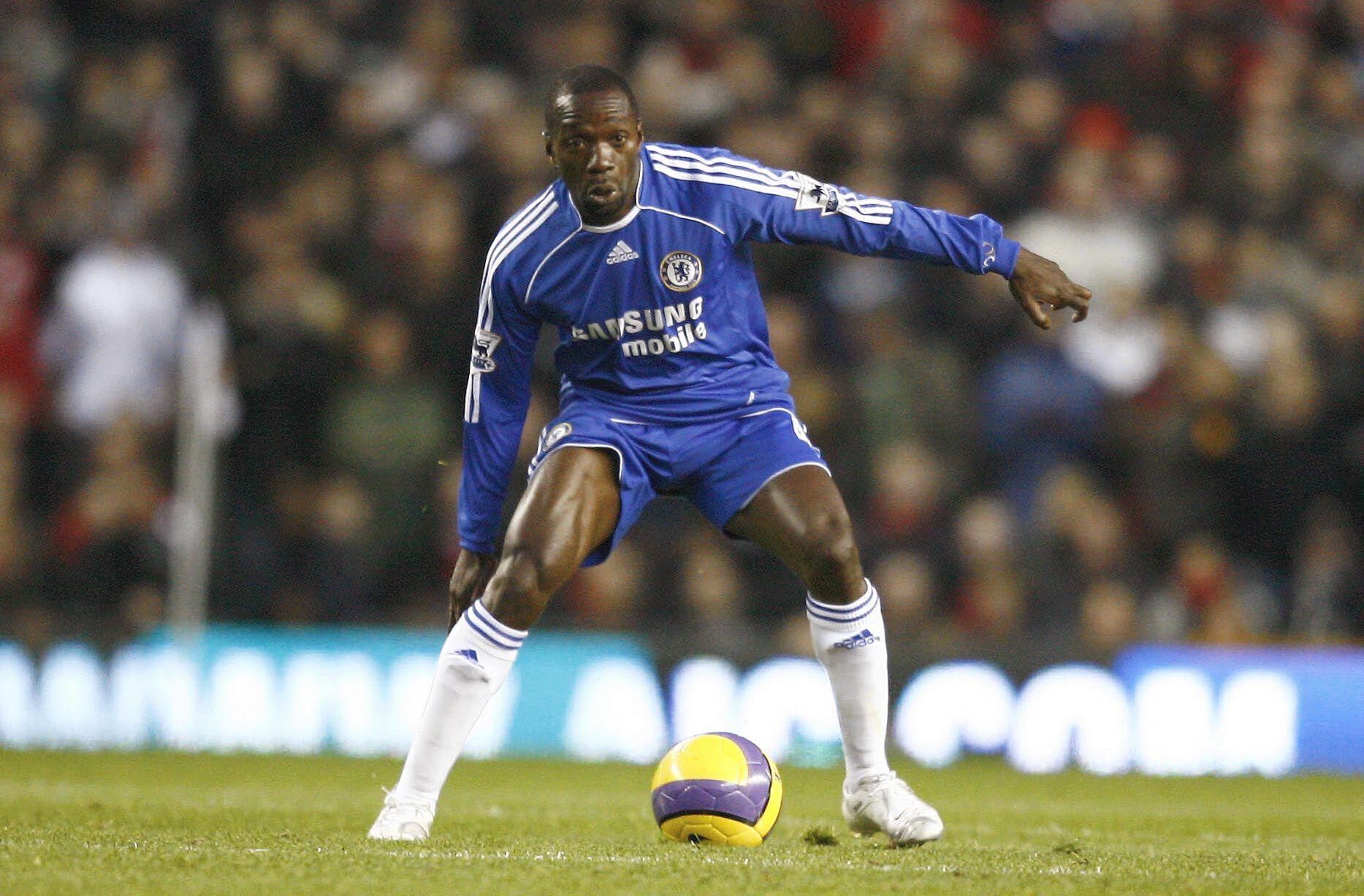
Defensively, they do not come much better than ex-Chelsea star Claude Makelele. Another to have created his own role on the pitch later named ‘The Makelele’, Often unappreciated on the ball, the Frenchman could often dictate games by himself from deep positions and seemingly saw the game ahead of every other player around him.
86. Oliver Kahn
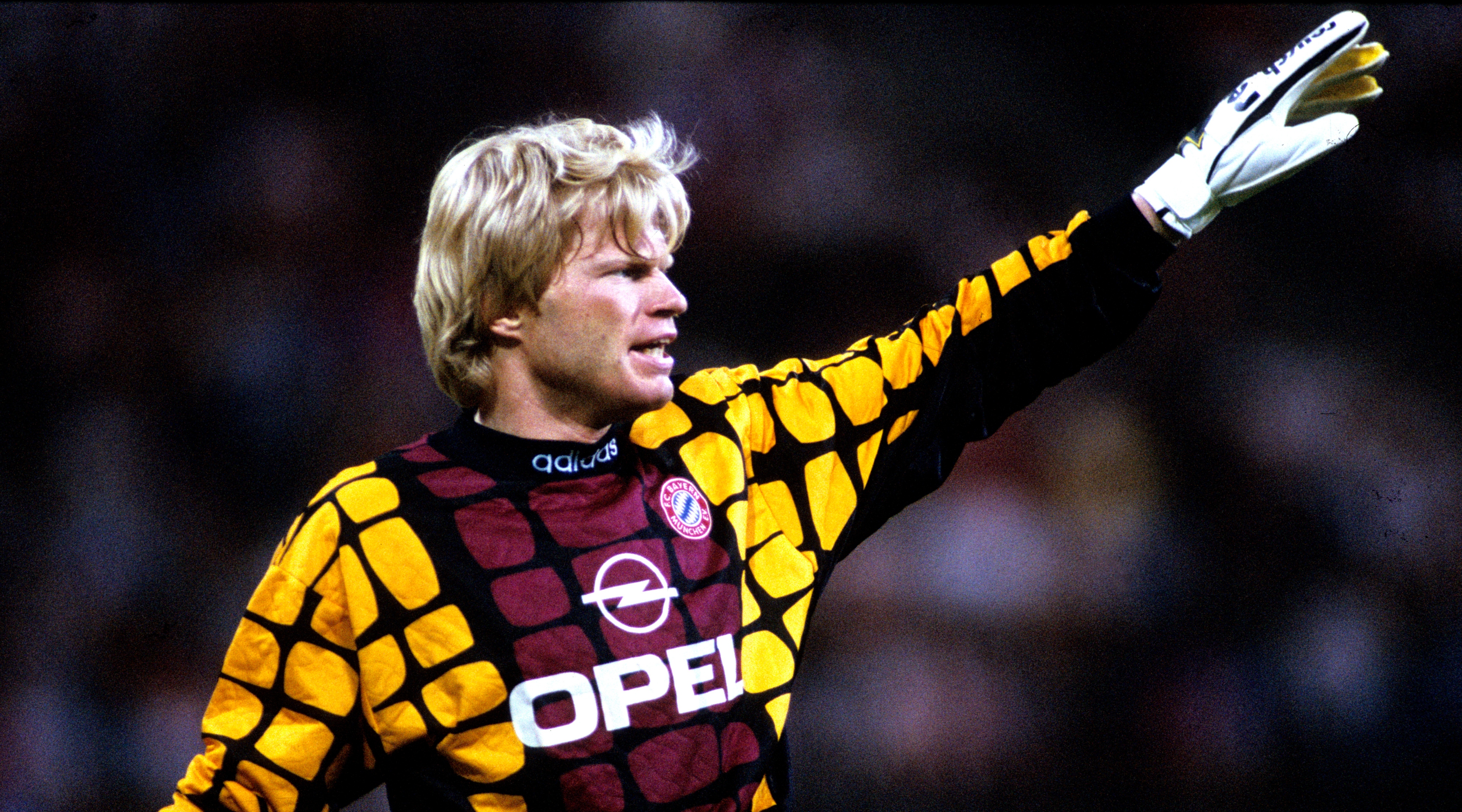
Hailed as one of the best goalkeepers to ever play the professional game, Oliver Kahn pioneered football given his seemingly crazy outlook. Described as often playing ‘like a man possessed’, the former Germany international was eccentric in everything he did. A serial winner with Bayern Munich, he won a whopping eight top-flight titles.
85. Alessandro Nesta
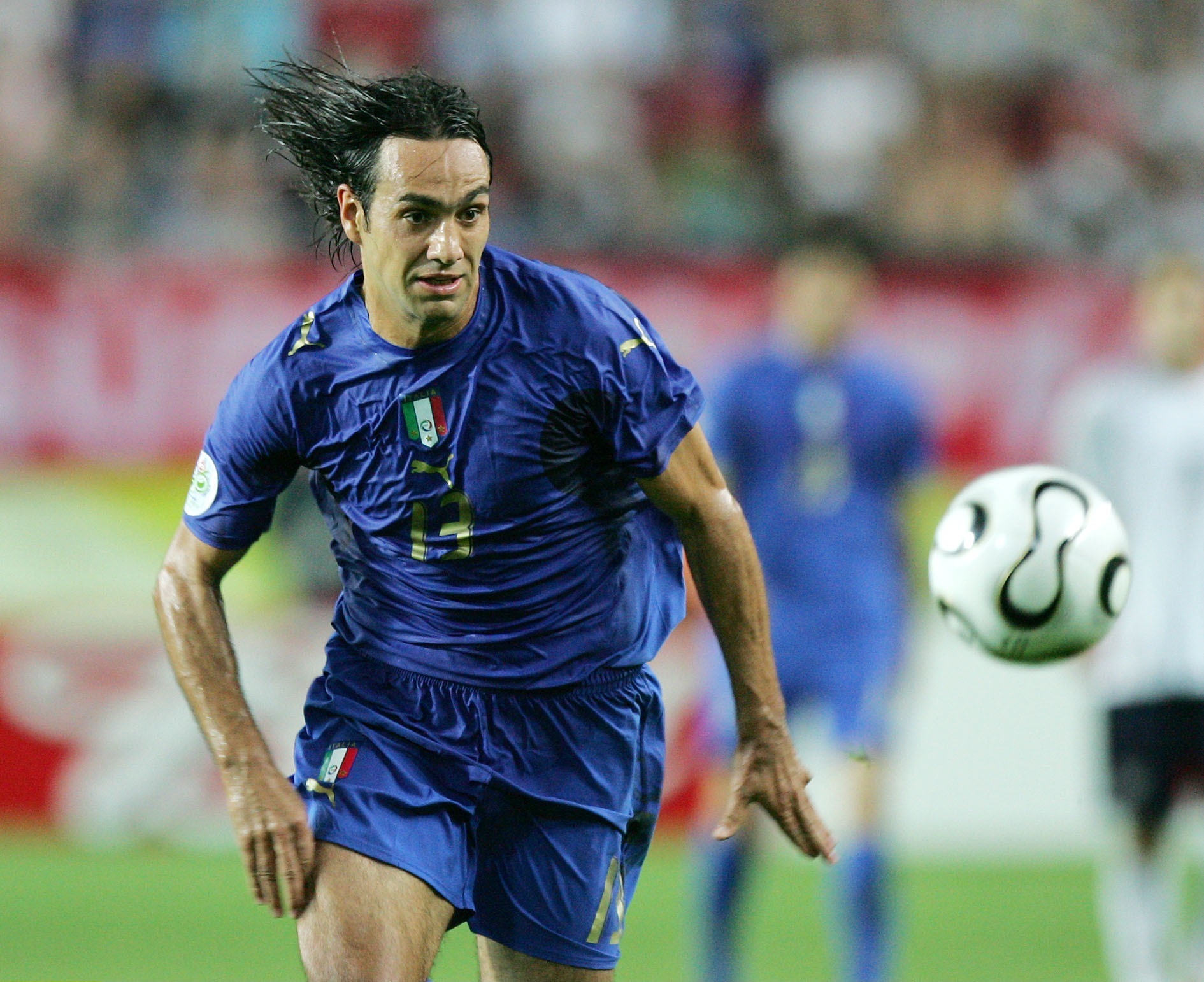
Coolness personified, Alessandro Nesta is a name instantly recognisable for his talents. An elegantly artistic defender, the former Italy centre-back won the World Cup in 2006 and enjoyed highly successful spells with both Lazio and AC Milan across an impressive 21-year career at the top level.
84. Carles Puyol
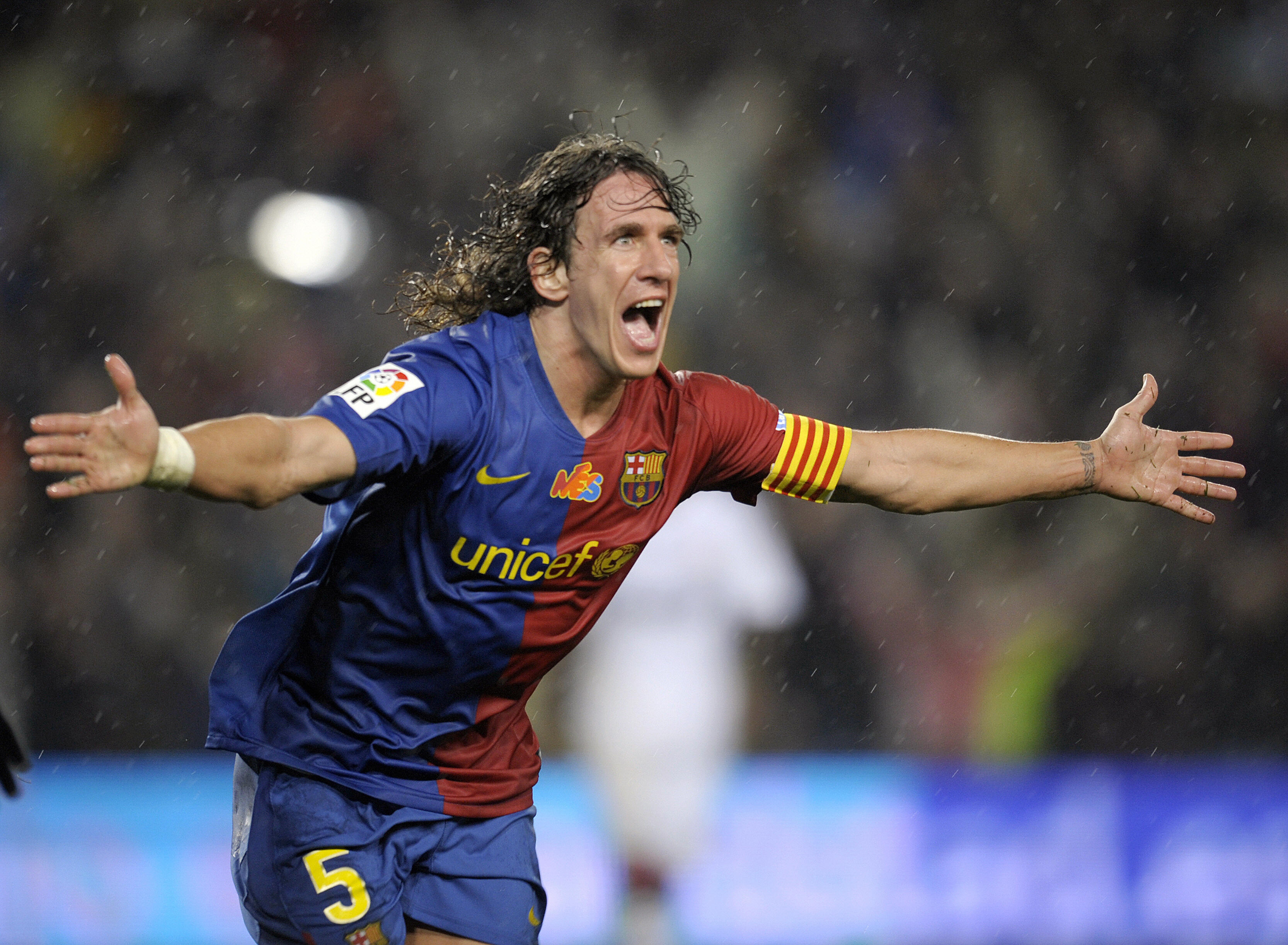
A Spanish stalwart of Barcelona’s defence for some fifteen years, Carles Puyol will likely go down as one of the best no-nonsense centre-backs to have ever played the game. A serial winner, Puyol won almost everything there was to win with both club and country and remains one of La Masia’s greatest.
83. Paolo Rossi
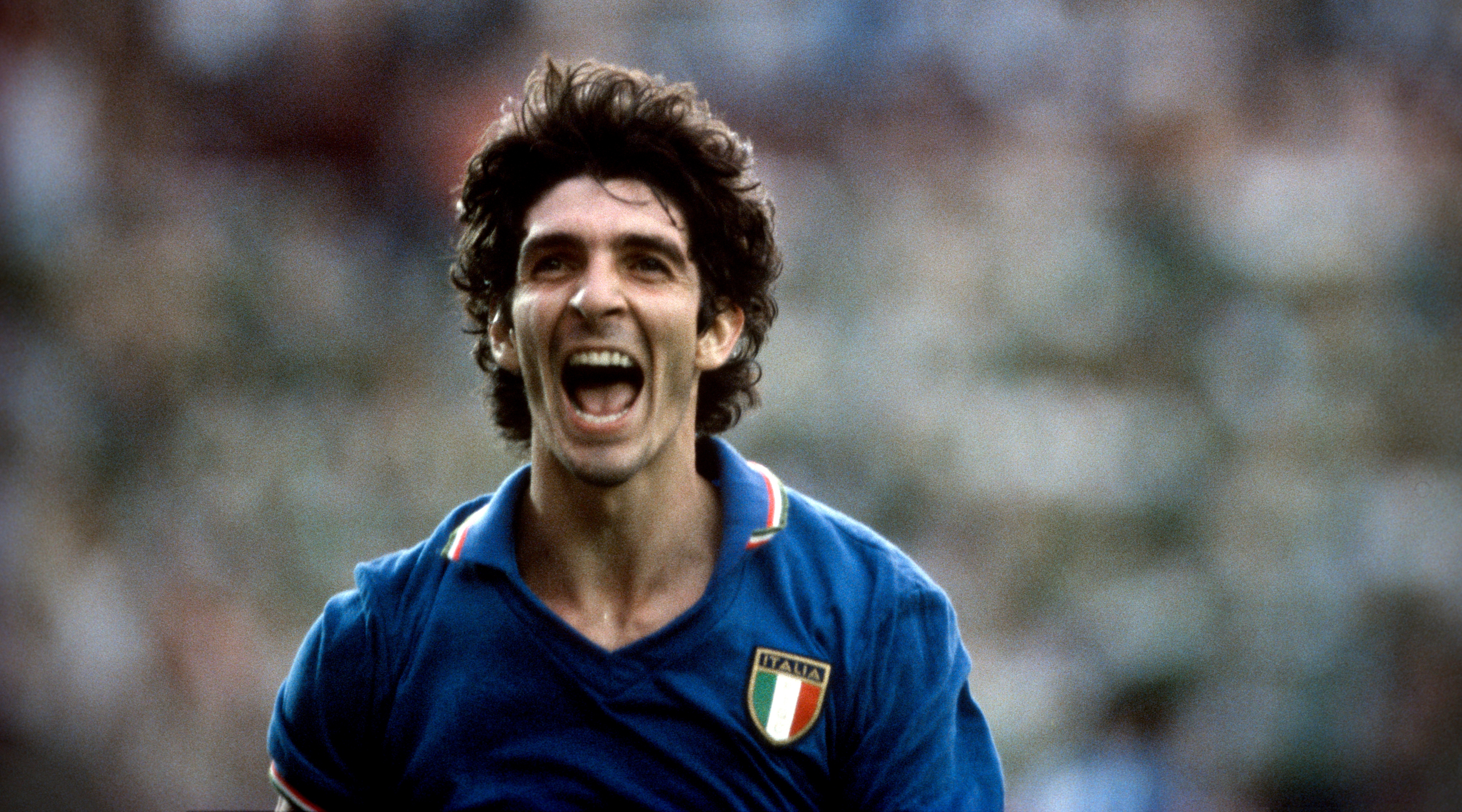
Italy's joint all-time top goalscorer in the FIFA World Cup, Paolo Rossi's endearing smile and larger-than-life attitude optimised his footballing career. The 1982 Ballon d’Or winner was lethal in and around the penalty area and enjoyed superb spells across his career with Vicenza and Juventus.
82. Francesco Totti

A Roma legend, Francesco Totti’s name will forever be etched into Italian football history.
Ending his career with a whopping 250 Serie A goals, the eternal hero won just one top-flight crown with Giallorossi but did help his country to a World Cup crown in 2006, for which he will forever be indebted.
81. Valentino Mazzola
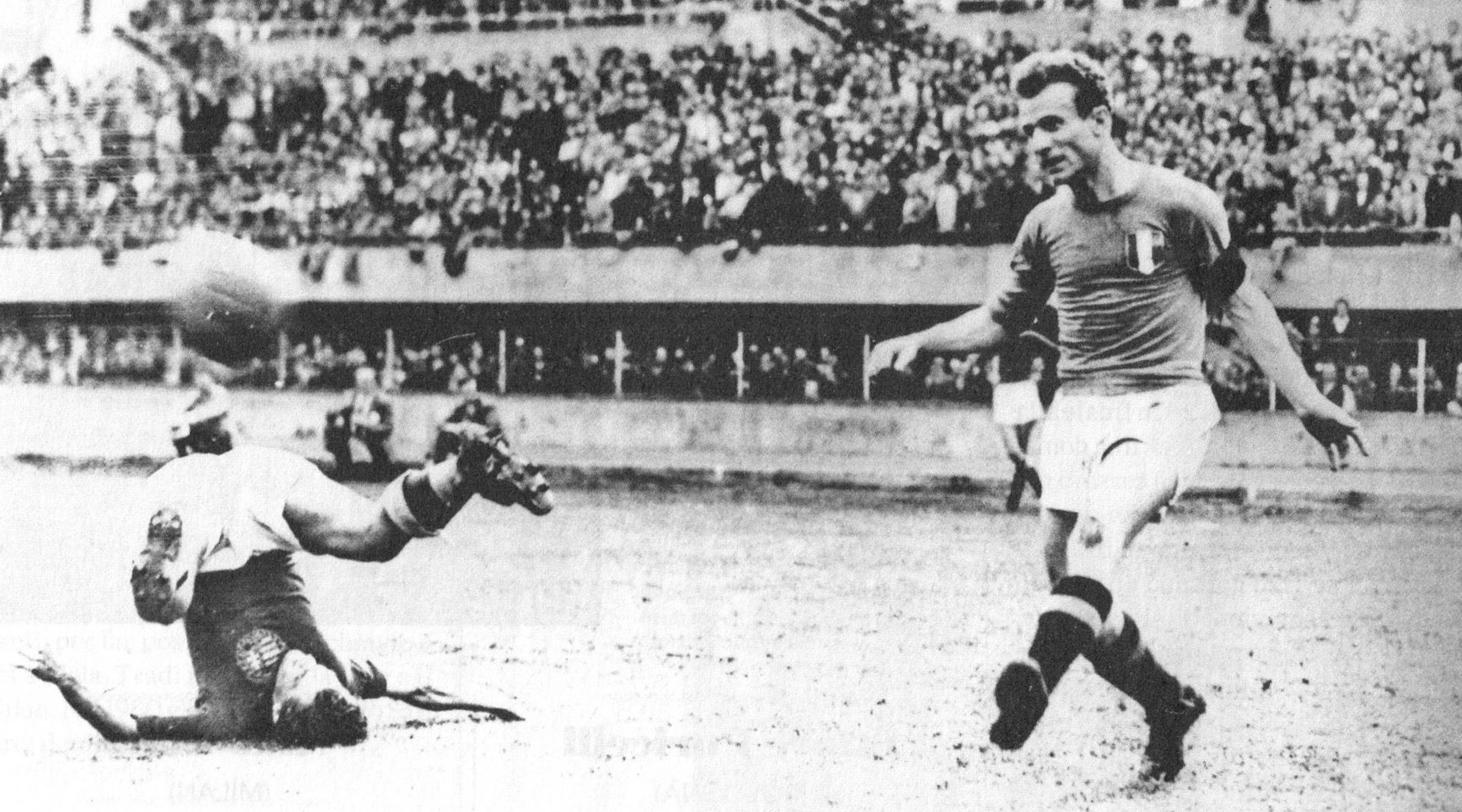
A player so good, he even had a position named after him. Valentino Mazzola’s short time in the game, however, will ultimately be remembered in vain. Unfortunately perishing at the age of just 30 in the Superga air disaster, his talents had helped Torino to win the Italian league in 1943 and then again in 1946, 1947, and 1948.
80. Andriy Shevchenko
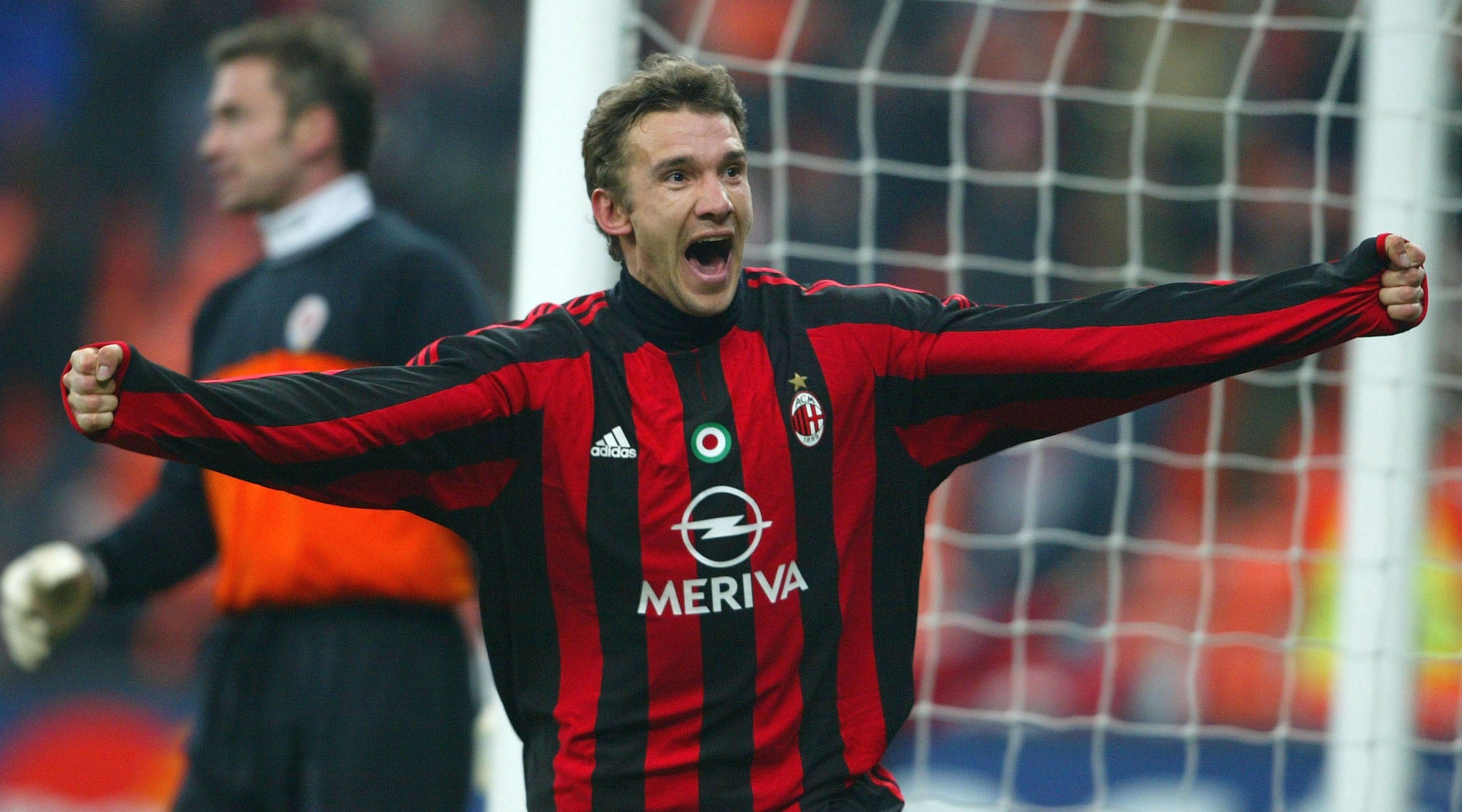
Simply put, Shevchenko was the leading light of the last great AC Milan side.
A top-class goalscorer in a division that makes it notoriously difficult for striker to rack up large goal tallies. The Ukrainian twice took the Serie A golden boot with 24 goals in 2000 and 2004 – the latter of which also earned him the Ballon d’Or.
The striker especially shone in the Champions League, with two golden boots and a winner’s medal that would have been two had it not been for Jerzy Dudek et al in 2005. He ranks seventh in the competition’s all-time scorers list.
79. Zlatan Ibrahimovic

What else is there to say that has not already been said – most of it by the man himself?
A divisive figure, but indisputably supremely talented, even if his exact standing in the pantheon of modern greats is up for debate.
Ibrahimovic will be remembered for having just as exuberant a personality on the pitch as he did off it, and in some ways that’s a shame, because it almost overshadows his hugely impressive numbers. 573 goals in 988 career appearances for some of the biggest clubs in the world and Sweden speaks of both his talent and his longevity.
78. Luis Figo
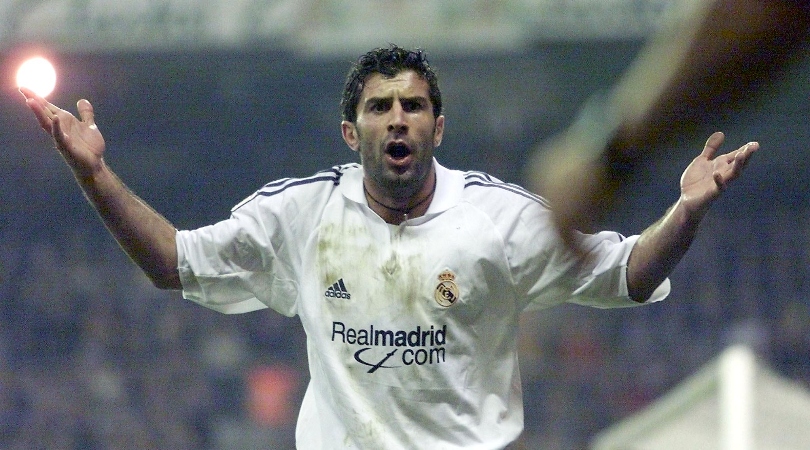
The 2000 Ballon d’Or winner and the supreme winger of his generation, the Portuguese will forever be synonymous with one of the most infamous incidents in El Classico history.
As he tried to take a corner, Figo was subjected to a barrage of foreign objects from Barcelona fans who felt betrayed by his defection to Real Madrid for a world-record fee – including an actual pig’s head. The best part: he had actually moved more than two years prior.
The depth of Barca’s anger, even after so long, is directly reflective of the scale of Figo’s talent. He was class.
77. Franck Ribery
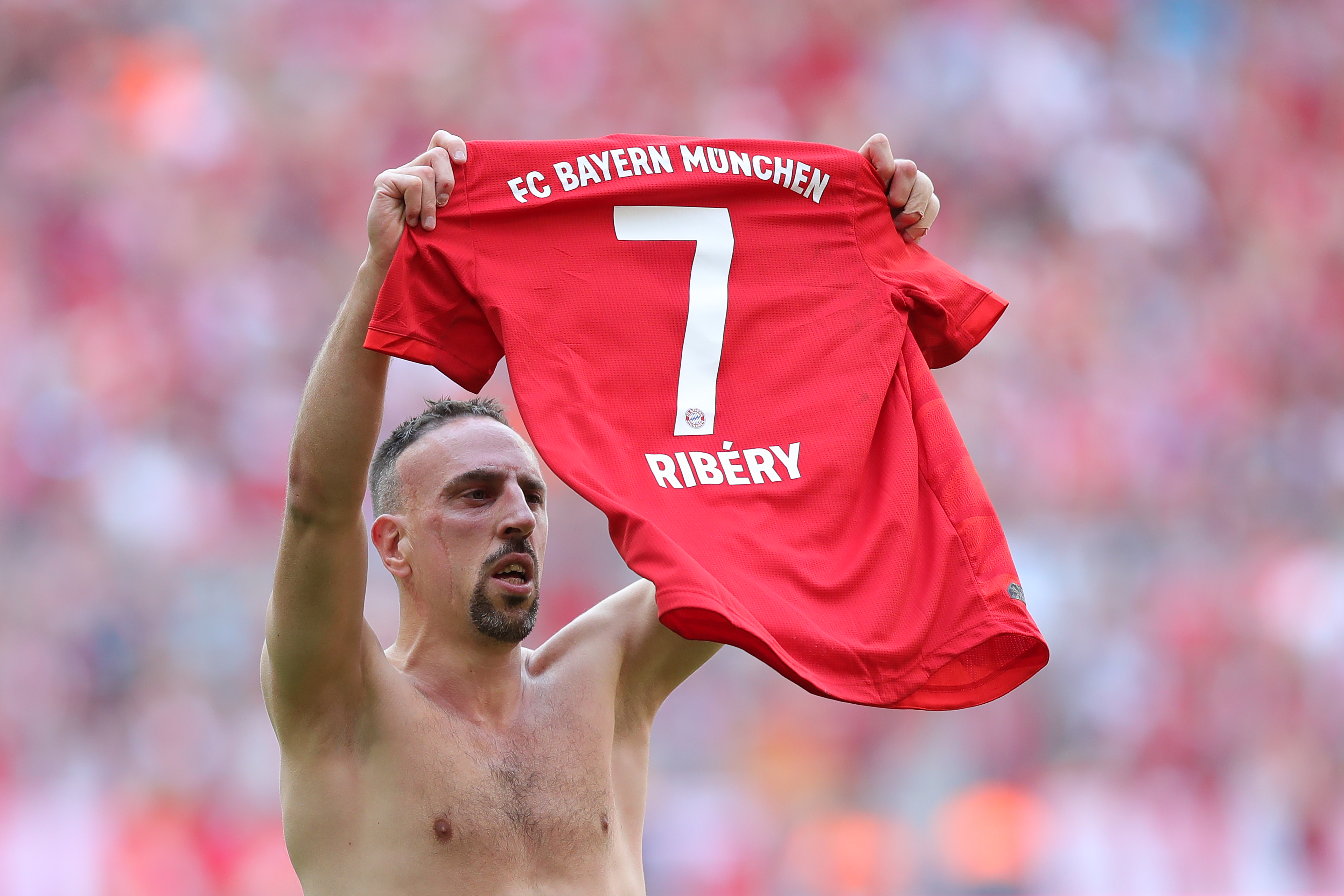
Hated by many in France largely for his role in an underage sex worker scandal and his country’s disastrous 2010 World Cup campaign, Ribery found a much more welcoming second home in Germany with Bayern Munich.
Playing opposite Arjen Robben on the other flank, Ribery was a key player in helping Bayern claim nine league titles in 12 years on top of the 2013 Champions League.
That year also saw the talented dribbler crowned the Bundesliga’s top assist maker for the third year running and come third in the running for the Ballon d’Or.
76. Ashley Cole
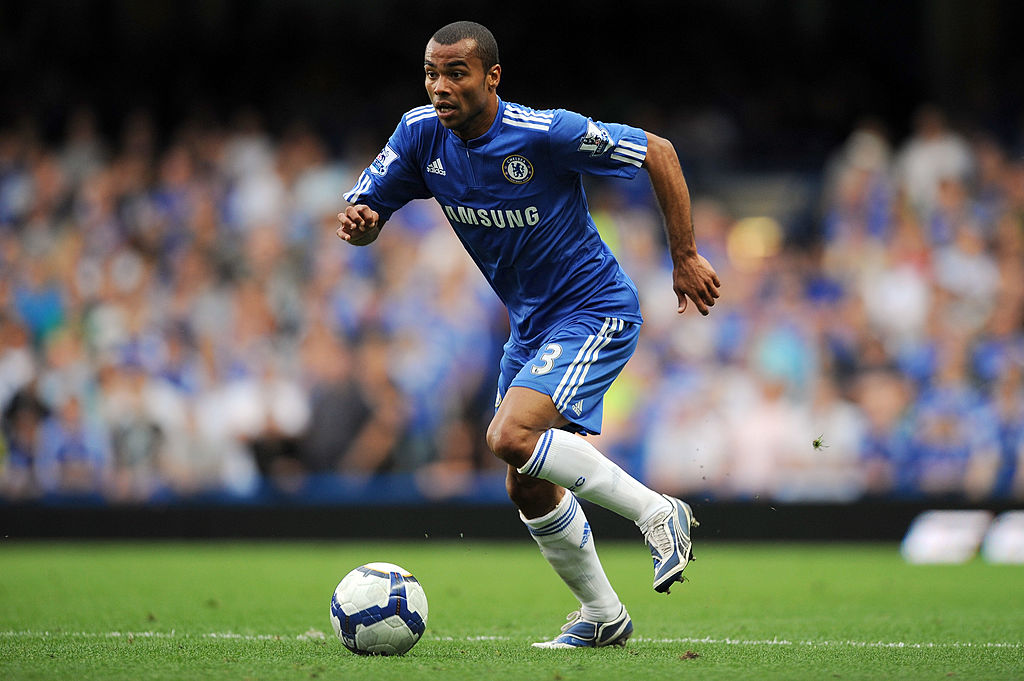
The best English left-back of all time? Probably. The best Premier League left-back of all time? Probably.
Cole is one of just nine men ever to pass the 100-cap mark for his country and amassed an impressive medal collection with Arsenal and Chelsea, the crown jewel of which was as part of the Gunners’ famous Invincibles side of 2003/04.
Most importantly is the role Cole played in revolutionising what we expect from modern full-backs, proving just as capable of making a stunning last-second intervention as he was operating in the final third.
75. Steven Gerrard
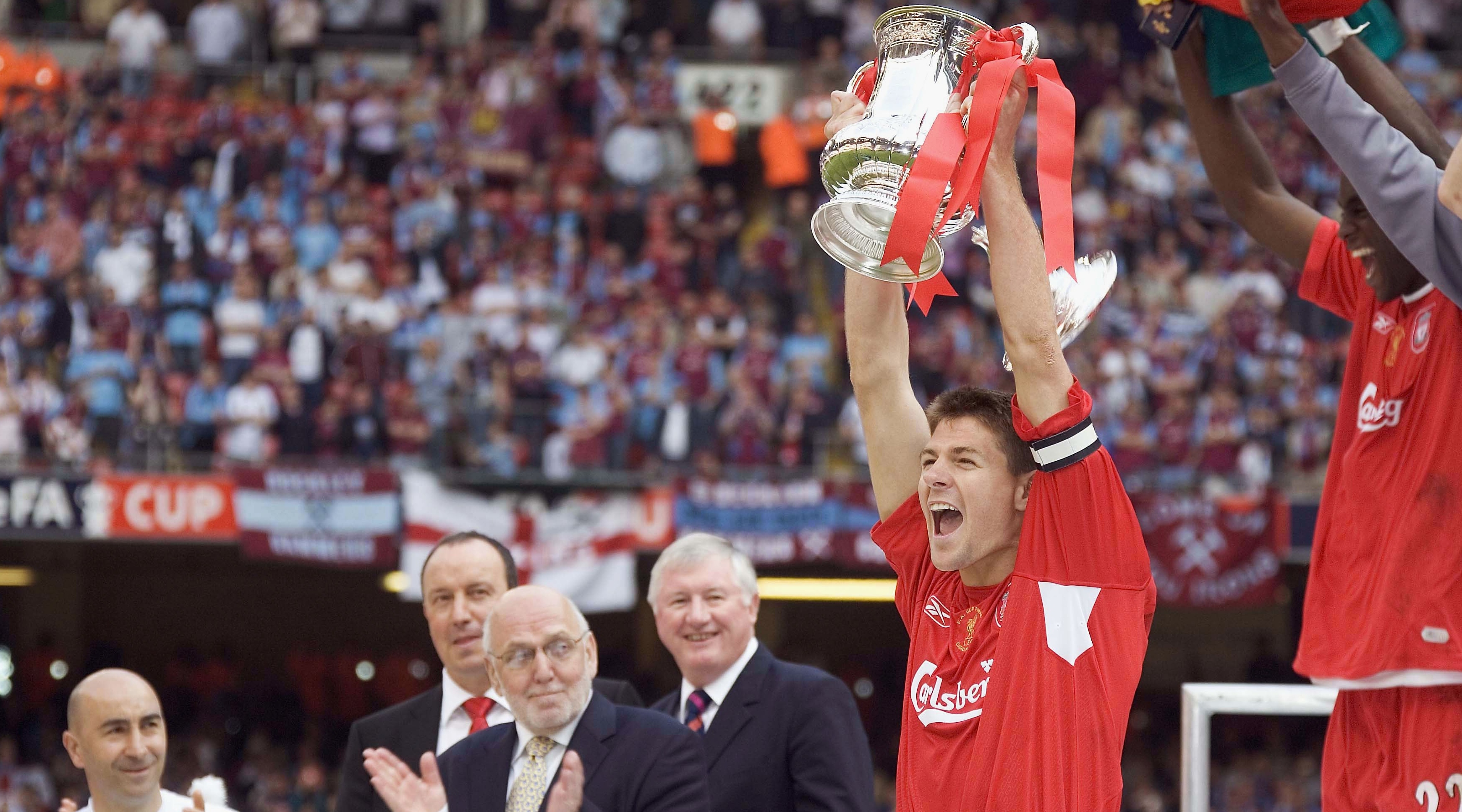
That. That’s the operative word when it comes to Steven Gerrard, an unstoppable, tough-tackling, goalscoring midfielder who had it all.
From that goal against Olympiacos, to setting them on their way to that Champions League final comeback, to that FA Cup Final, to that camera kiss at Old Trafford… at his peak, Gerrard had an uncanny knack for single-handedly providing the goods at just the right moment.
That slip in the twilight of his career makes for an unfortunate footnote, but Gerrard won a largely pretty average Liverpool side an awful lot more silverware than he ever cost them.
74. Gheorghe Hagi
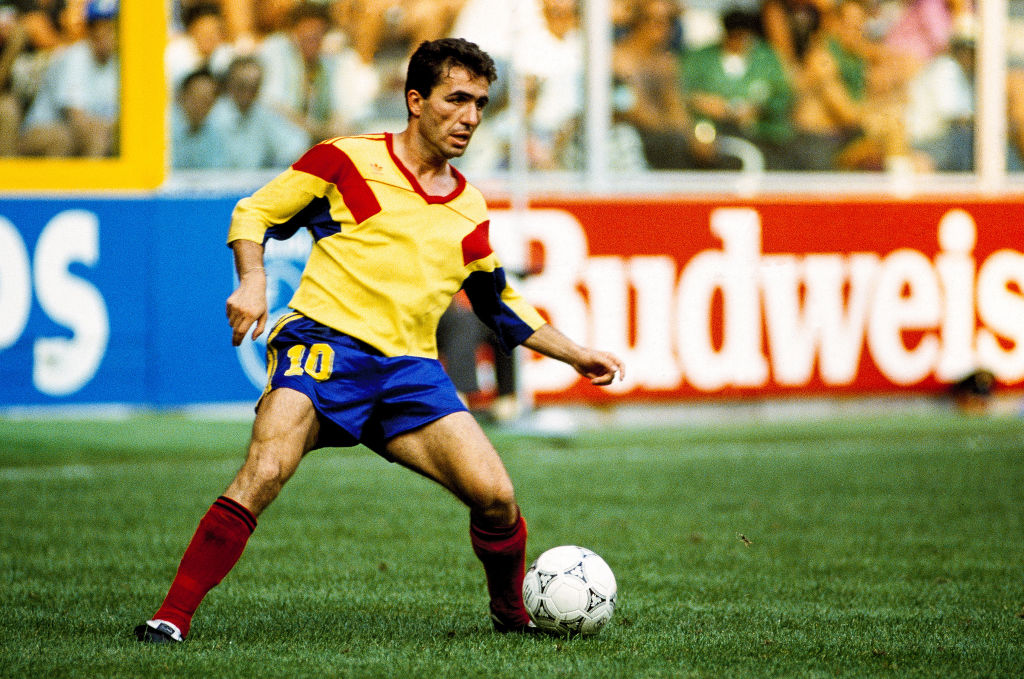
Blocked from a move away from Romania until 1990 due to the Communist regime, Hagi's best years came in his native country, though he did manage to impress across spells at Real Madrid, Brescia, Barcelona and Galatasaray. It's at the 1990, 1994 and 1998 World Cups where the Maradona of the Carpathians truly highlighted his quality, though, dribbling through opposition defences with such grace that it seemed almost impossible to stop the diminutive playmaker.
The best Romanian player of all time, Hagi is also considered a hero in Turkey, while his exploits on the world stage saw him earn six Ballon d'Or nominations. Not bad.
73. Clarence Seedorf
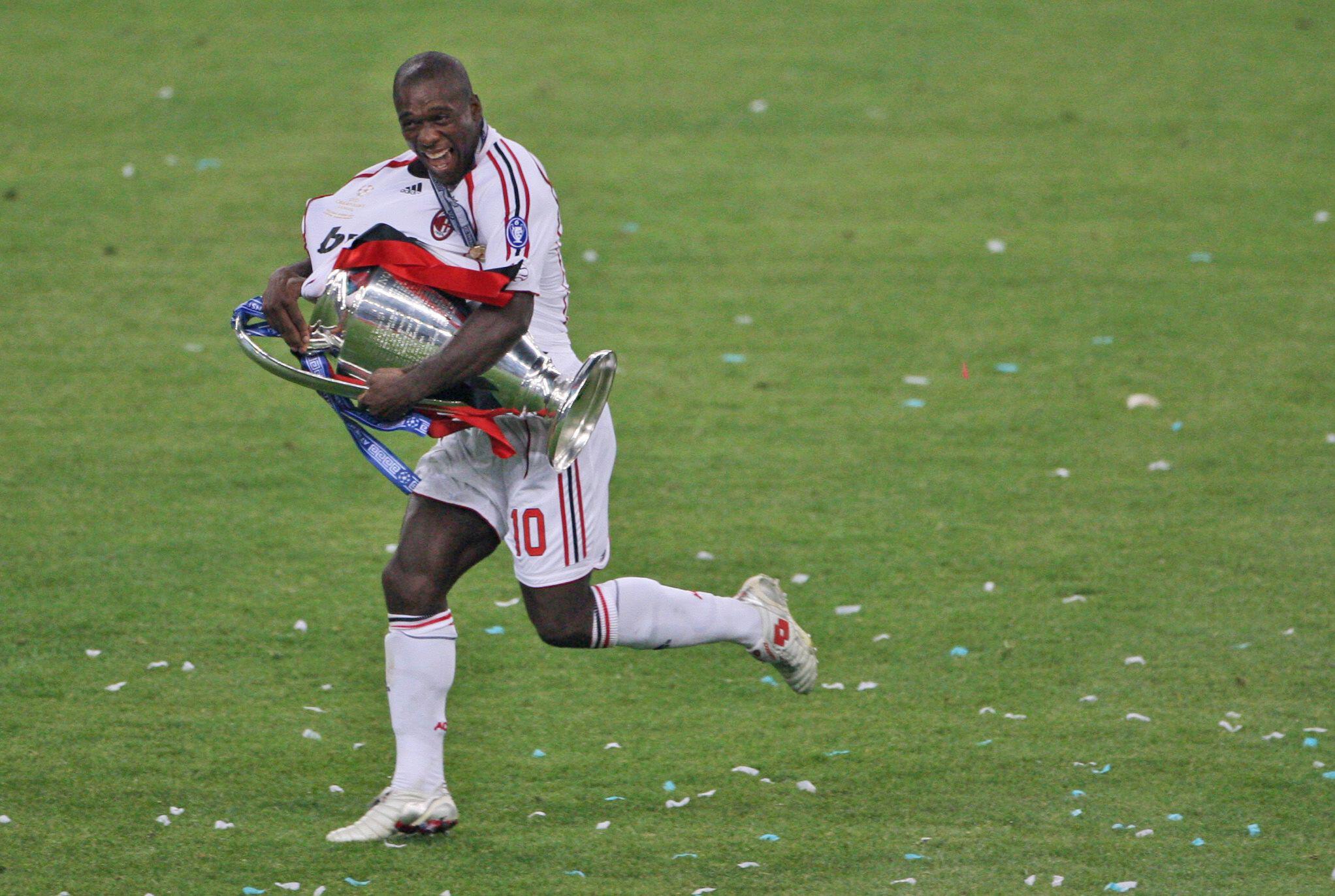
The only player to have won the Champions League with three different sides - Ajax in 1995, Real Madrid in 1998 and AC Milan in 2003 and 2007 - Clarence Seedorf is unquestionably one of the greatest midfielders of his generation. His abundant energy, desire to both attack and defend, and his outstanding tactical intelligence ensured that he could operate wherever he was needed in midfield, regardless of the role or opposition.
Plus, he had an unerring accuracy to thunder shots into the top corner of the goal on a regular basis, with his goalkeepers feeling the full wrath of his power when attempting to palm away a stinger. Not many have been as versatile as the Dutchman.
72. Peter Schmeichel
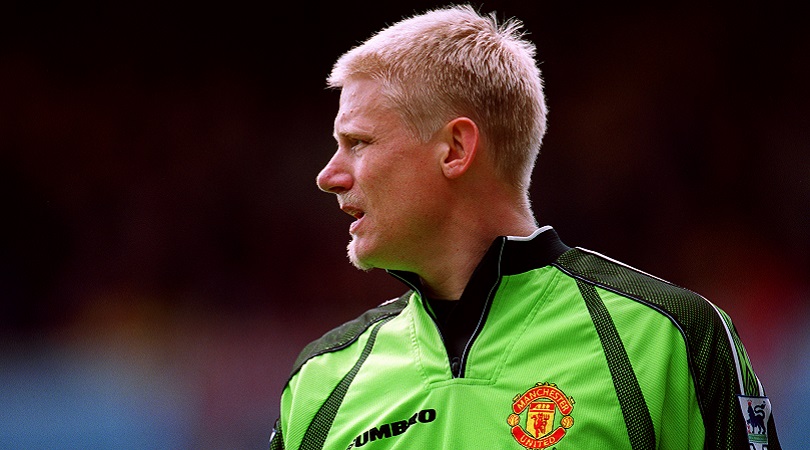
Big, uncompromising, intimidating. The goalkeeper who gave fame to the starfish save, the legend who revolutionised the art of shotstopping in the early 1990s. Peter Schmeichel is rightly a legend of the game, a man who won a trophy for every year bar one between 1987 and 2001, including a phenomenal Euros victory with Denmark and treble triumph at Manchester United.
Known for annoying his defenders by barking instructions at them even when the ball was at the other end of the pitch, the Great Dane often came up clutch with huge saves in vital moments. If you're unsure of his quality, just watch his stop against Rapid Vienna in the 1996/97 Champions League group stages - unfathomable.
71. Giacinto Facchetti
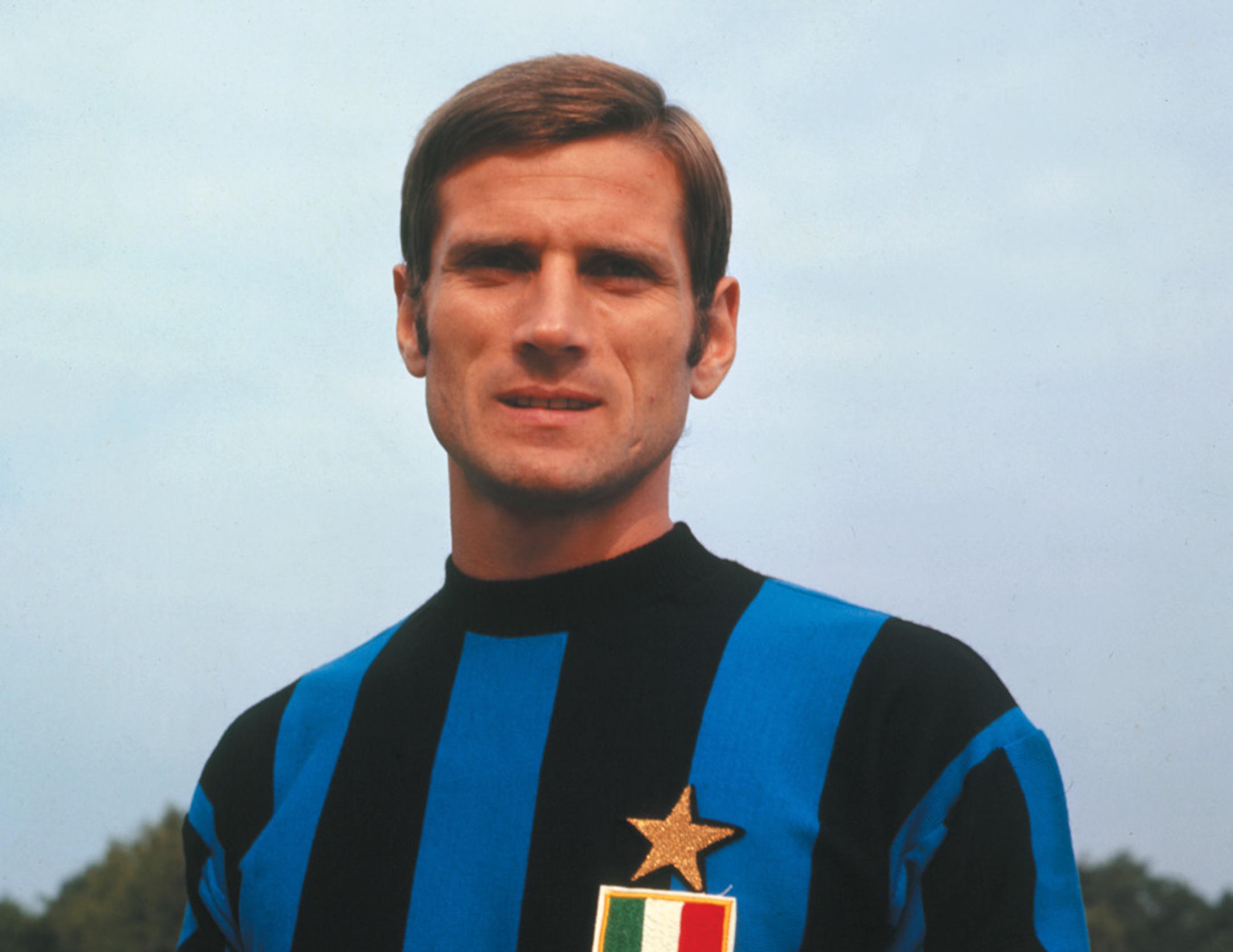
Inter Milan's outstanding left-back for 18 years between 1960 and 1978, Facchetti also formed part of the successful Euro 1968-winning Italy side, as well as finishing as runner-up two years later in the World Cup.
Despite being 6ft3in, Facchetti wasn't necessarily indicative of rock-solid Italian defences: he managed 75 goals in 629 appearances for Inter, attacking at will with such pace and skill that opposition defences simply couldn't handle his runs from deep, nor his long-range shooting and pin-point crossing.
70. Hristo Stoichkov
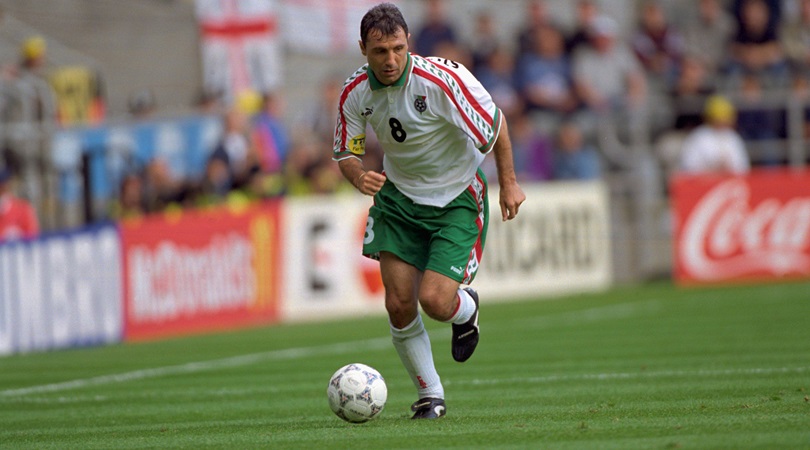
Among an esteemed list of Barcelona’s greatest forwards, Hristo Stoichkov stands out. The explosive Bulgarian formed an inimitable partnership with Romario in Catalonia, helping his team to five La Liga titles, a Champions League and two Copa del Reys.
He scored 162 goals in 341 appearances for the Blaugrana, having previously starred for CKSA Sofia in his homeland. Among his many individual accolades were the 1994 Ballon d’Or, the 1990 European Golden Shoe and five Bulgarian Footballer of the Year awards.
69. Kylian Mbappe
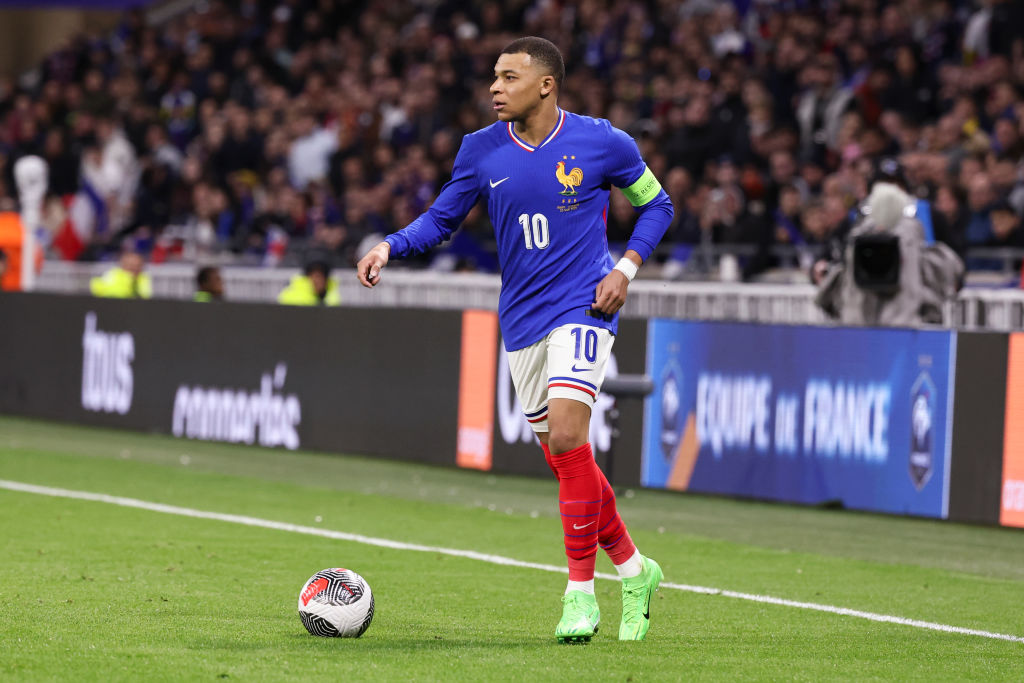
Kylian Mbappe is still just 25 but already he has established himself as one of Europe’s best ever players. The precocious Frenchman is so prolific that it is now just assumed that he will score at least 30 goals a season.
Having already won six Ligue 1 titles and a World Cup - as well as earning six Ballon d’Or nominations - there are likely to be far more team and individual accolades to come for Mbappe, who is set for a long-awaited move to Real Madrid.
68. Allan Simonsen
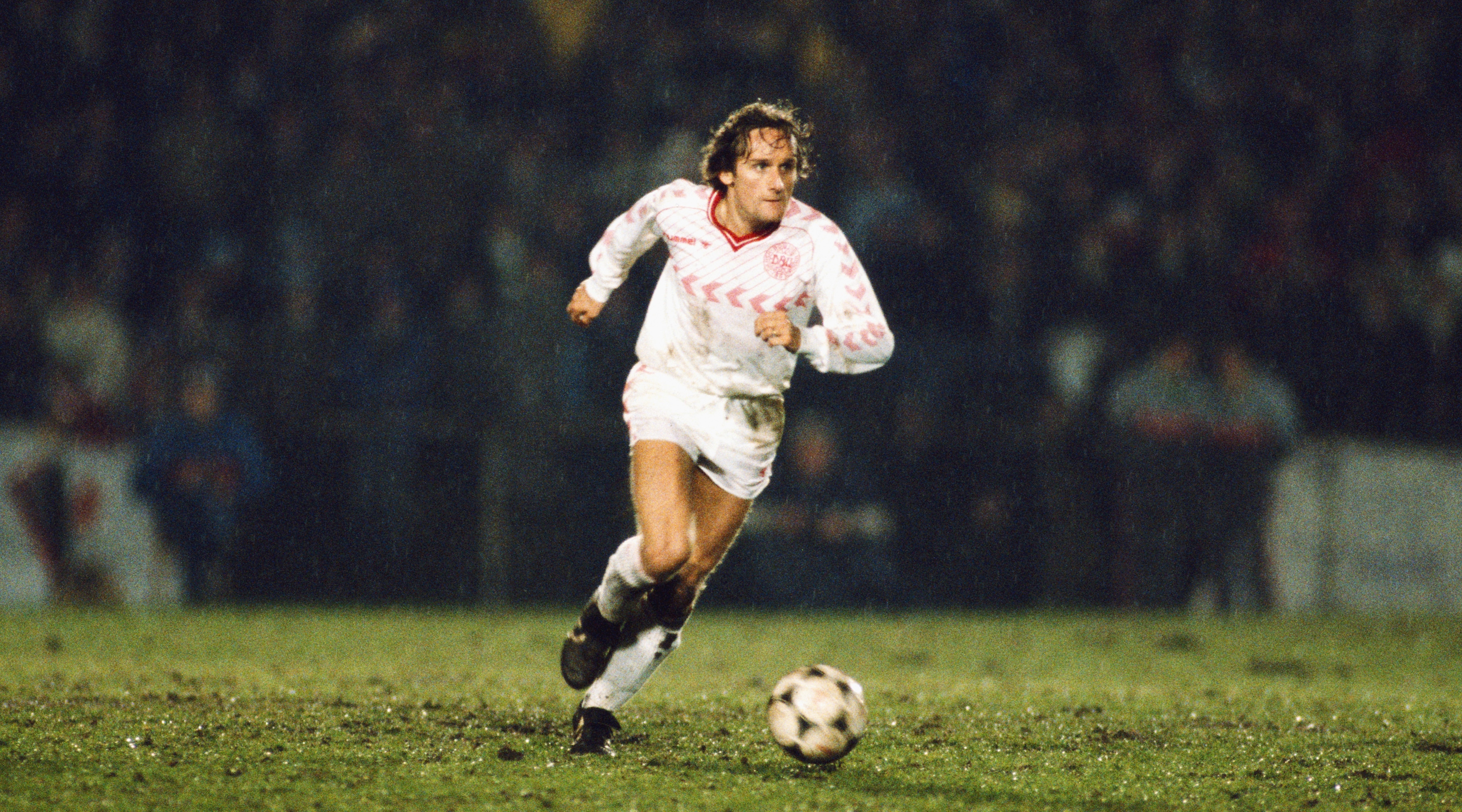
One of Denmark’s most gifted attacking players, Allan Simonsen had an exceptional career throughout the 1970s and 1980s. Beginning with Borussia Monchengladbach, he fired the German side to three Bundesliga titles and two Uefa Cups. Simonsen won the Ballon d’Or in 1977, before making the switch to Barcelona in 1979.
After three seasons in Catalonia, and a brief stint at Charlton, he finished his career with Danish side Vejle, winning another league title. With 55 caps and 20 goals for the national team, Simonsen was without question one of Scandinavia’s greats.
67. Gary Lineker
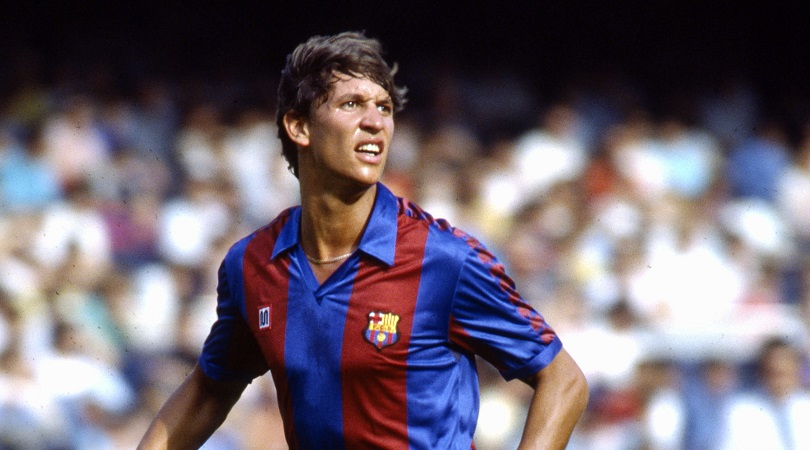
Known by many younger football fans primarily for his work as a television presenter, Gary Lineker was among the world’s best strikers in the 1980s and early 90s. Prolific as a youngster for his hometown club Leicester, he went on to star for Everton (briefly), Barcelona and Tottenham, while enjoying a superb international career for England.
Though he never won a First Division title, Lineker was the league’s top scorer in 1984/85, 1985/86 and 1989/90. For England, he scored 48 goals in 80 appearances.
66. Fabio Cannavaro
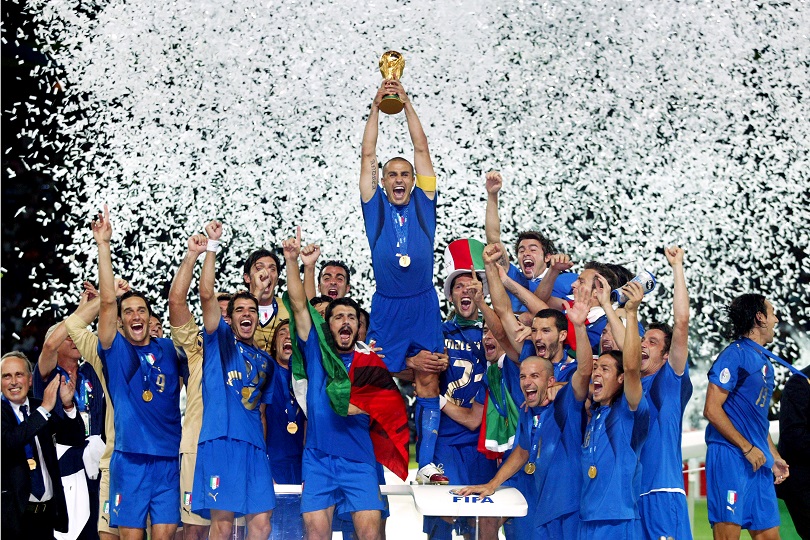
A diminutive but terrier-like defender, Fabio Cannavaro’s lack of height did not detract from his domineering presence. The centre-back was impervious at his best, excelling in spells with Napoli, Parma, Inter, Juventus and Real Madrid.
Perhaps his greatest achievement came in international football, though. Cannavaro captained Italy to World Cup glory in 2006, proving a gladiatorial leader from the back. As a result of that success, he won the Ballon d’Or in the same year, and followed that with two La Liga titles at Real Madrid.
65. Jimmy Greaves
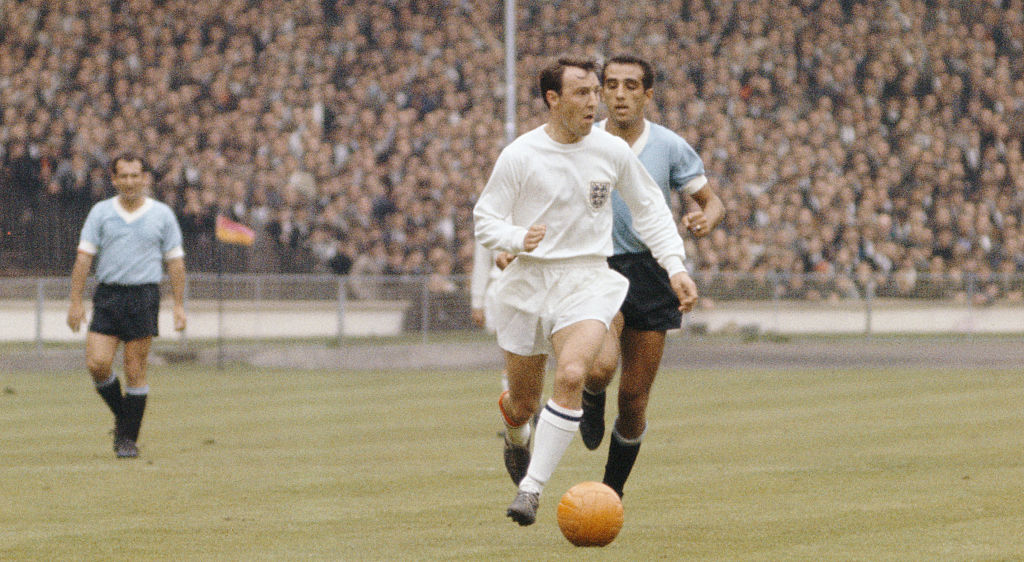
An England icon and one of the stars of the 1960s, Jimmy Greaves will always be considered one of the country’s greatest ever strikers. He was prolific for both Tottenham and Chelsea, scoring over 400 goals during his period at both clubs.
And he played his part in England’s 1966 World Cup win, despite missing the final with an injury. No Three Lions striker has ever scored at a better rate (0.77 goals per game) than Greaves, who passed away aged 81 in 2021.
64. Josef Masopust
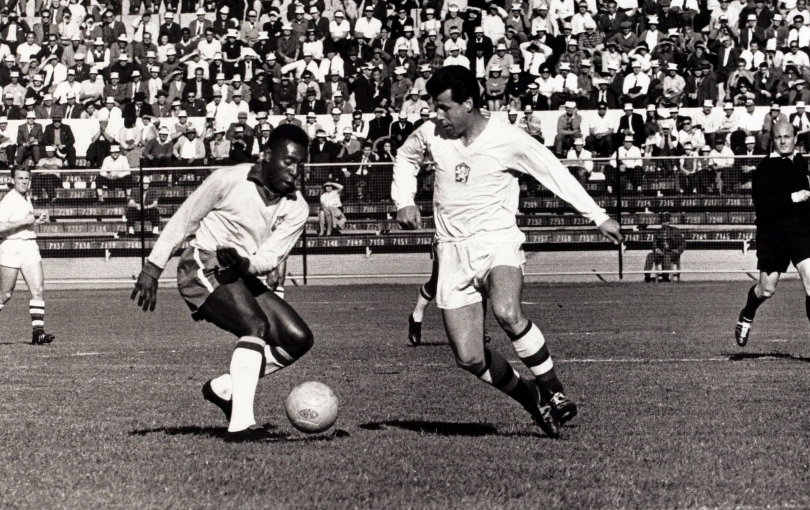
Perhaps the greatest ever Czechoslovakian player, Josef Masopust was exceptional for Dukla Prague and the national team over a long and productive career. The industrious, technically-gifted midfielder won eight Czechoslovak league titles and three Czechoslovak cups.
He was influential for his country in the 1962 World Cup, guiding them to the final where they were beaten by Brazil. Still, that was enough for Masopust to win the 1962 Ballon d’Or. After an equally committed managerial career, Masopust passed away in 2015.
63. Just Fontaine
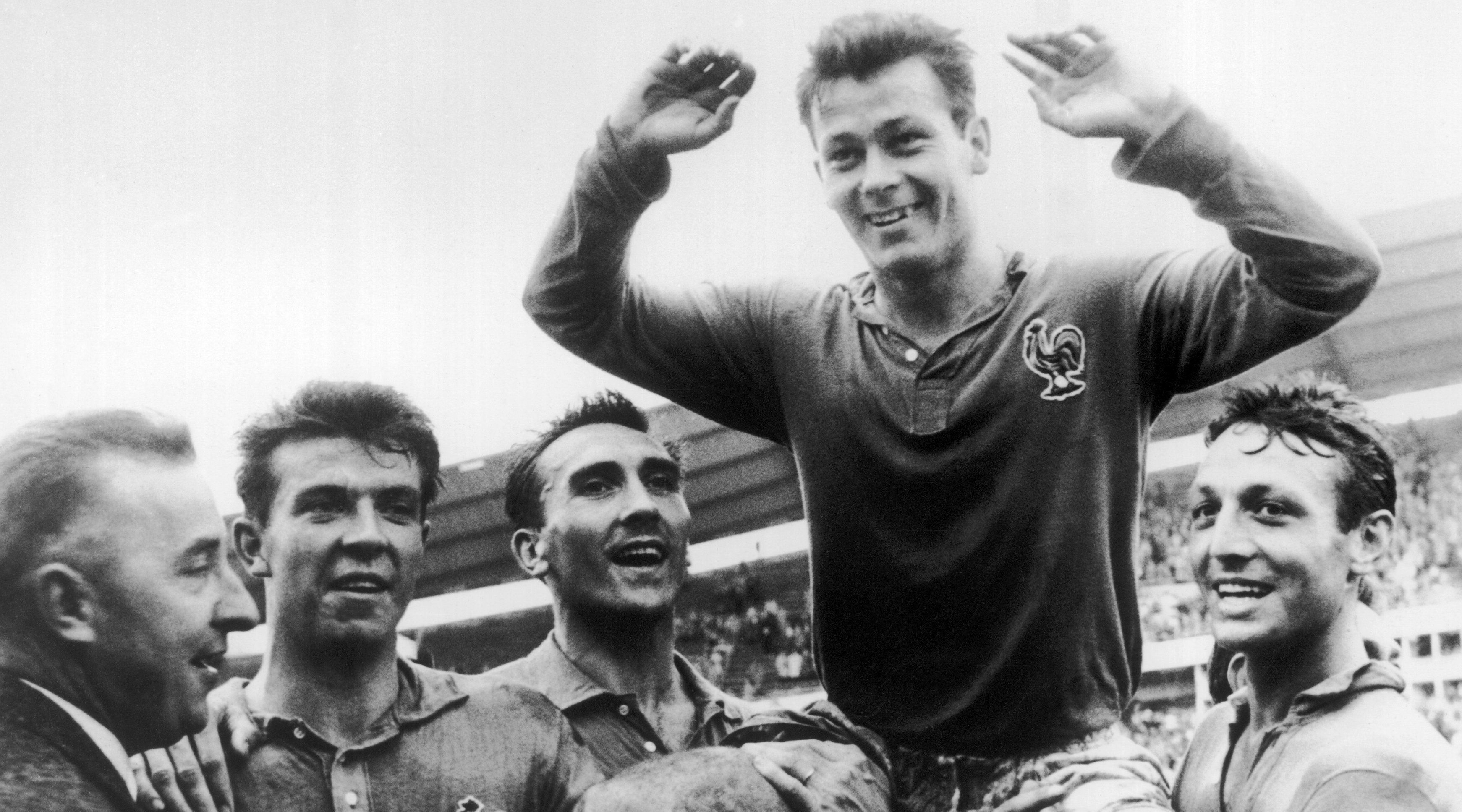
One of the great post-war footballers, Just Fontaine scored goals for fun both domestically and internationally. The French striker netted at a rate of over a goal a game across three seasons with Moroccan side USM Casablanca, following that with prolific spells at Nice and Reims.
He holds the record for the most goals scored at a World Cup, with 13 in just six matches in 1958. Though he could only finish third at both the World Cup and in the Ballon d’Or nominations that year, there is no doubting that Fontaine was one of Europe’s most potent goal scorers.
62. Florian Albert
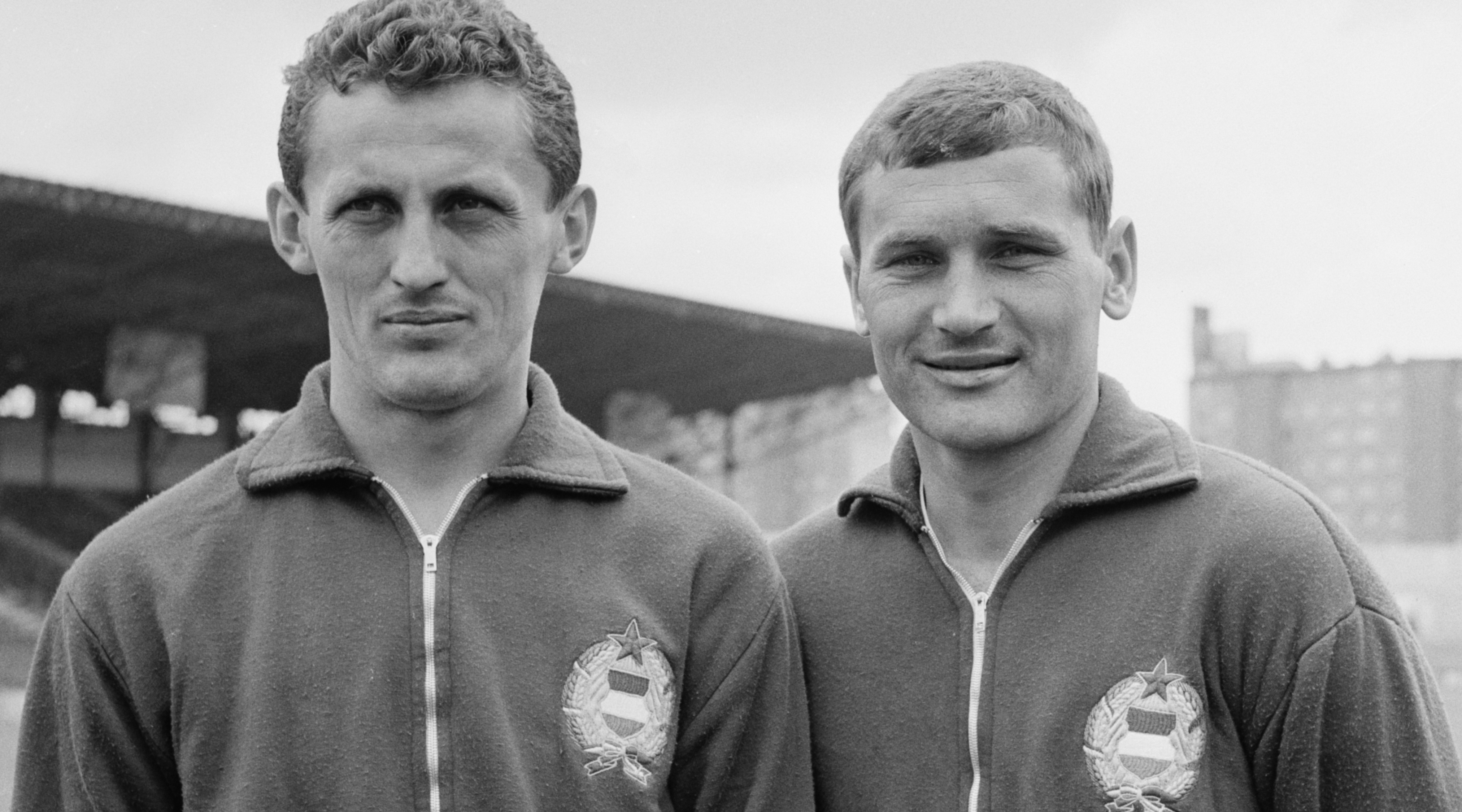
The 1967 Ballon d’Or winner grew up watching Hungary’s legendary Mighty Magyars team, and while he did not have the supporting cast to match the achievements of Ferenc Puskas on the international stage, this elegant and skilful forward enjoyed a 16-year one-club career with Ferencvaros, where he scored almost 300 goals and won four league titles.
Winner of the Best Young Player Award in the 1962 World Cup in Chile, he ended the 1966 tournament as the joint-leading scorer and is recognised alongside the likes of Puskas, Kocsi, Kubala and Hidegkuti as the greatest-ever Hungarian players.
61. Frank Rijkaard
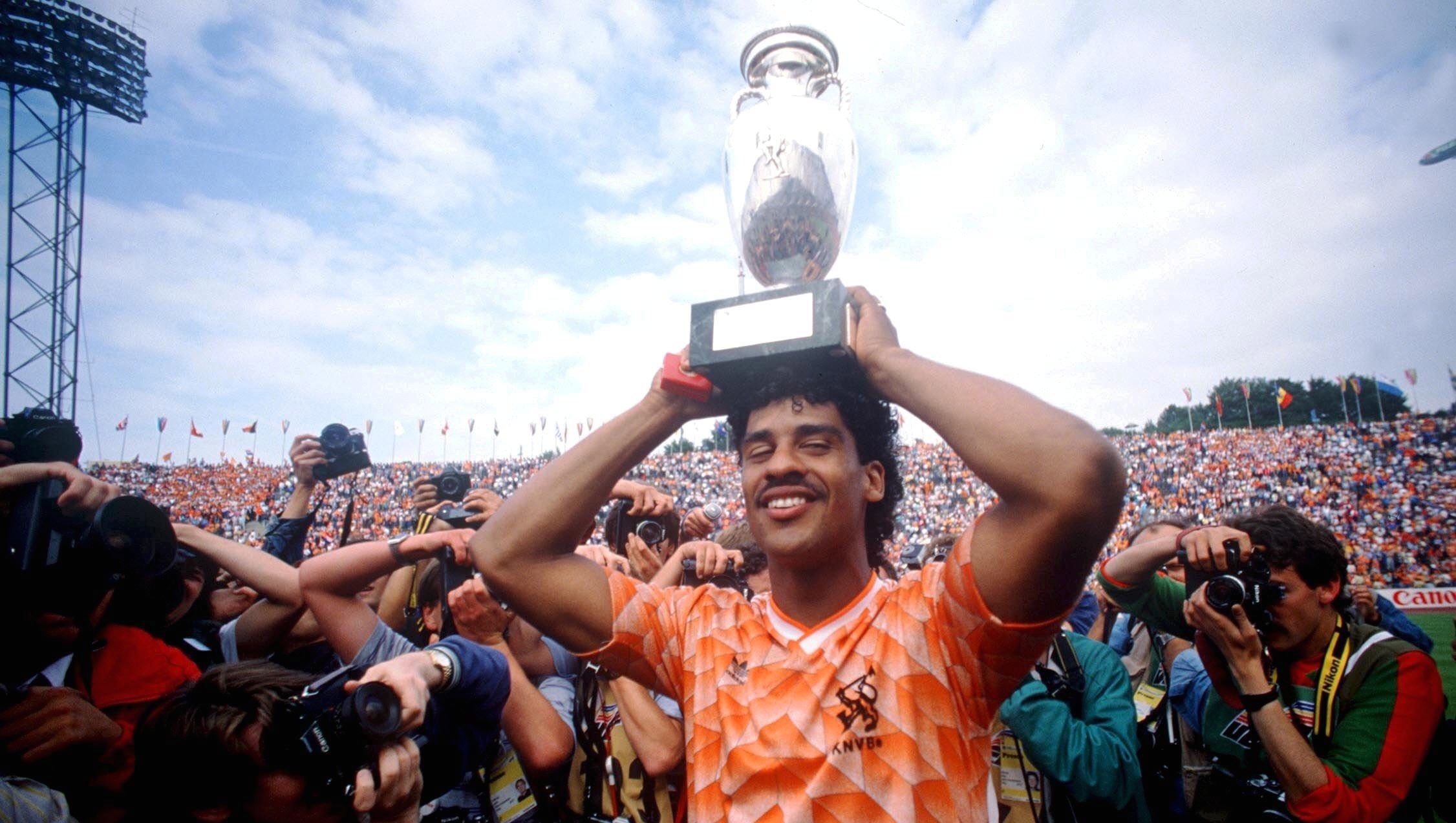
Predominantly a cultured defensive midfielder, Rijkaard was one of the best players of his era. He would win just about every honour available, first with Ajax and then at AC Milan, where he formed an iconic Dutch triumvirate alongside Marco van Basten and Ruud Gullit fresh from their Euro 88 victory.
On the pitch he combined strength, speed, skill and versatility with a tactical acumen that he carried through into his coaching career, where he would win the Champions League with Barcelona. After a two-year stint in charge of the Saudi Arabia national team, he has now been out of the game for more than a decade.
60. Alan Shearer
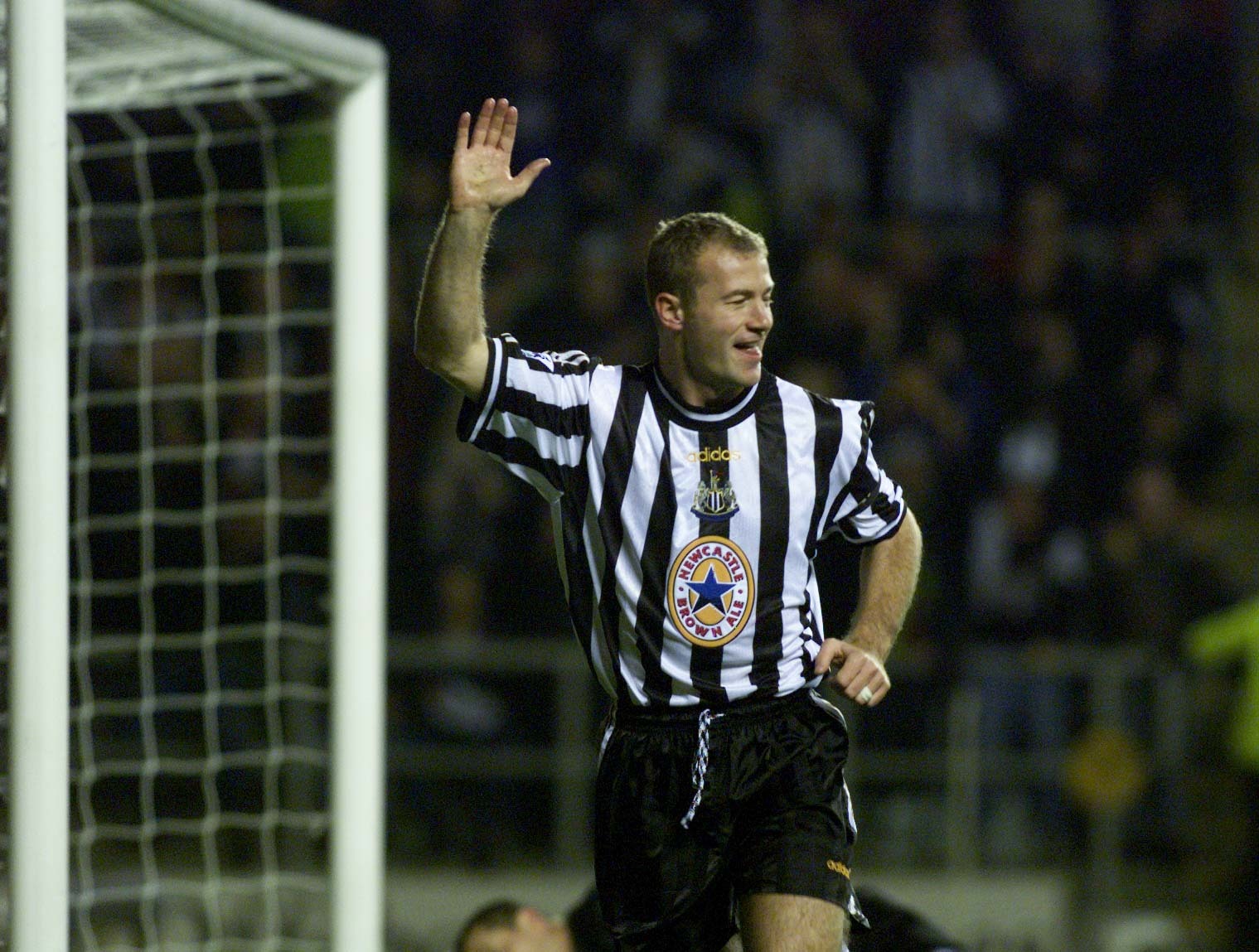
The greatest goalscorer of his generation, Alan Shearer came of age in English football’s post-Italia 90 boom and was an iconic figure of the Premier League’s first decade-and-a-half. Shearer boasted classic centre-forward traits of strength, stature, power, technique and aerial dominance and fired Blackburn Rovers to the Premier League title in 1994/95 before going on to win the Golden Boot at Euro 96.
That inspired Newcastle United to break the world transfer record in order to bring him back home and while he was not able to win a major trophy with the Magpies, he would end his career with a host of individual awards and records, including the all-time Premier League goalscoring mark.
59. Ronald Koeman
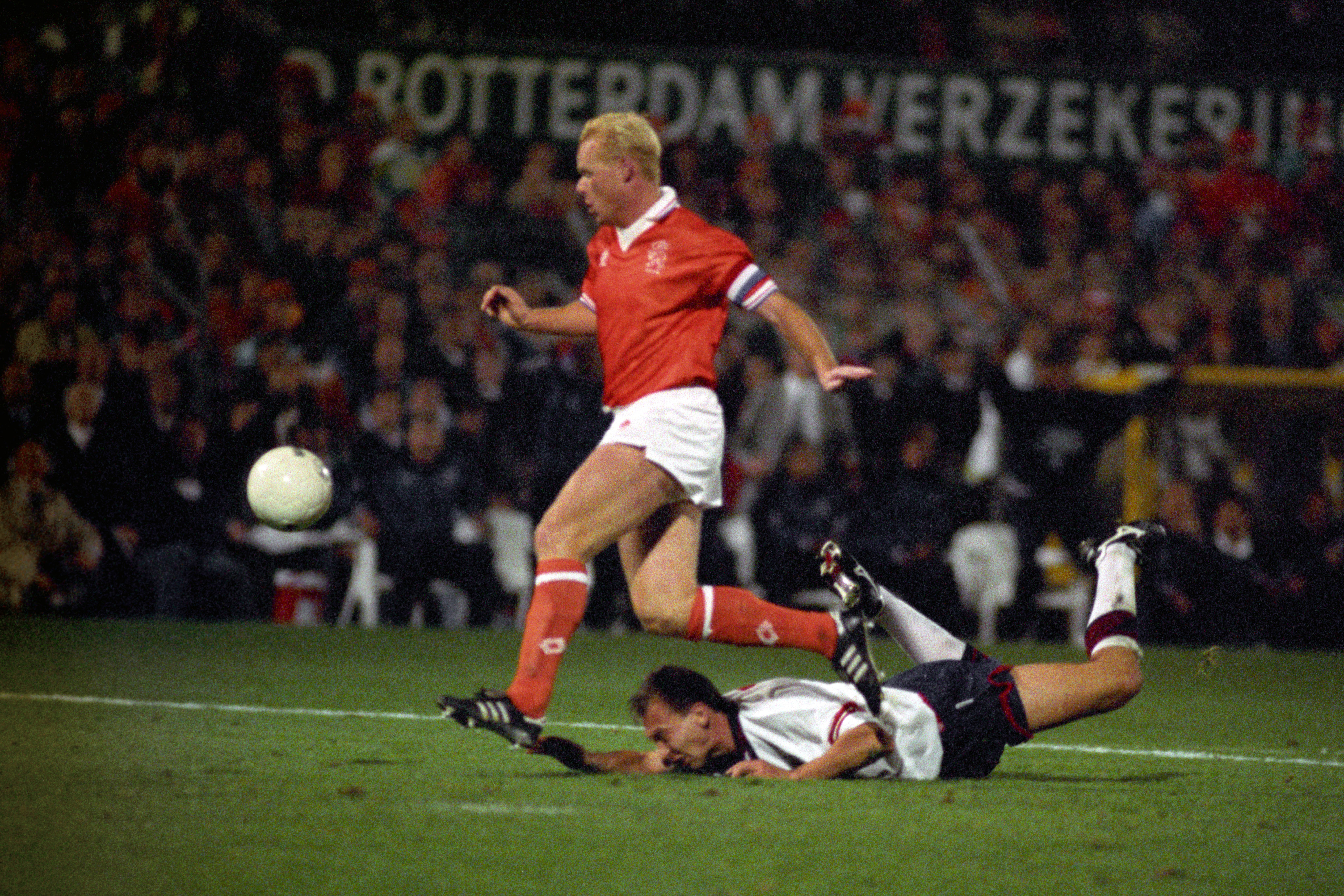
A part of the iconic Netherlands side that won their only international tournament at Euro 88, Koeman carved out a career as one of the best defenders of his era. His versatility as a ball-playing defender saw him deployed in a number of positions at the back, but his eye for goal, prowess for long-range shots and dead ball ability meant he was something of a unique dual threat.
His winning goal for Johan Cruyff’s Barcelona ‘Dream Team’ in the 1992 Champions League final at Wembley was one of Koeman’s several career highlights on the pitch. His managerial career has seen him with league titles with Ajax and PSV and he is currently getting ready to lead the Netherlands in Euro 2024.
58. Jimmy Johnstone
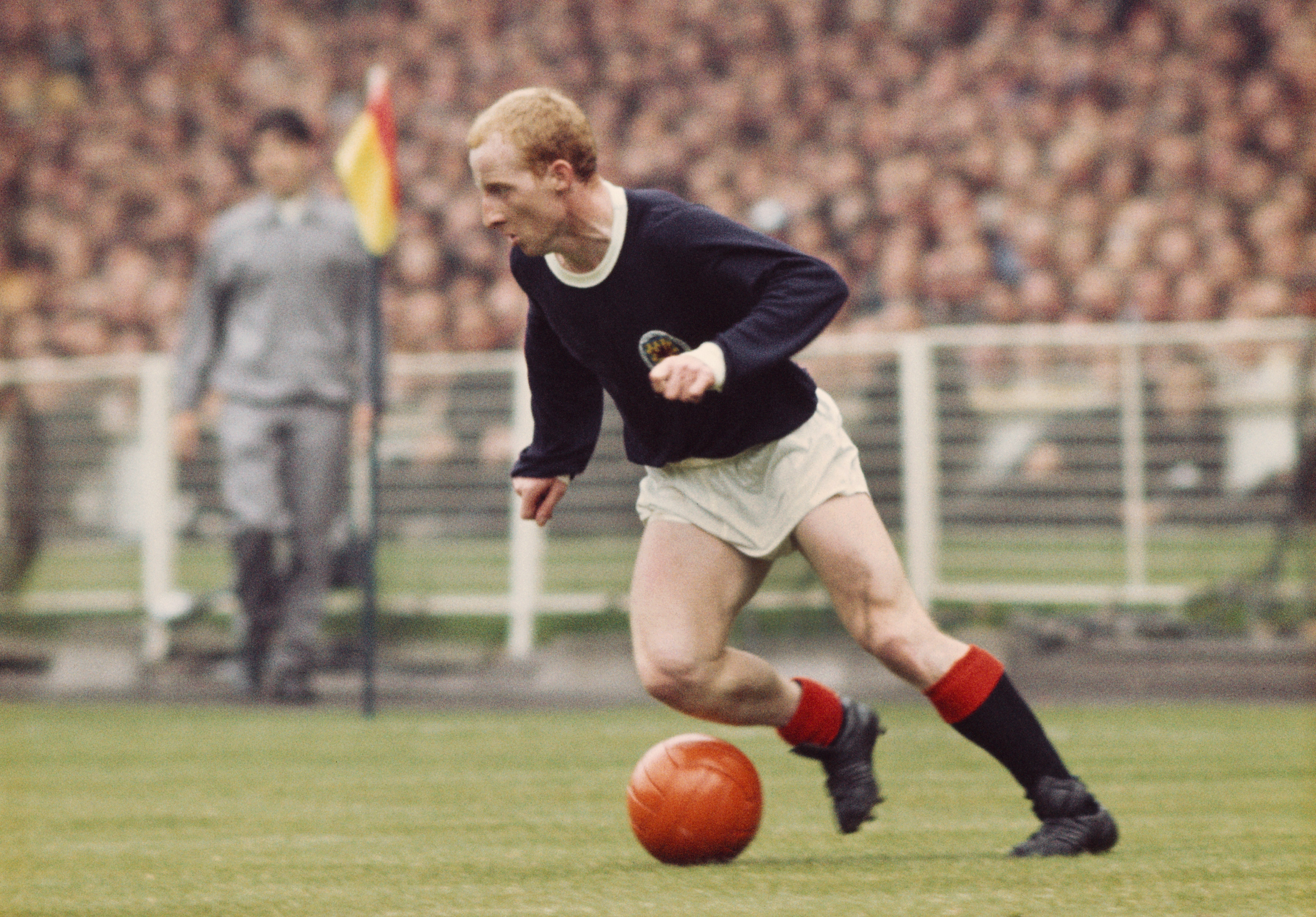
The greatest player in Celtic's history, ‘Jinky’ was a key part of the ‘Lisbon Lions’ side that won the 1967 European Cup during a period of domestic dominance that saw the Hoops win nine consecutive Scottish titles.
Combining pace with sublime dribbling ability, the diminutive Johnstone would leave defenders in his wake, while his infectious personality and charisma off the pitch only added to his legacy.
57. Dennis Bergkamp
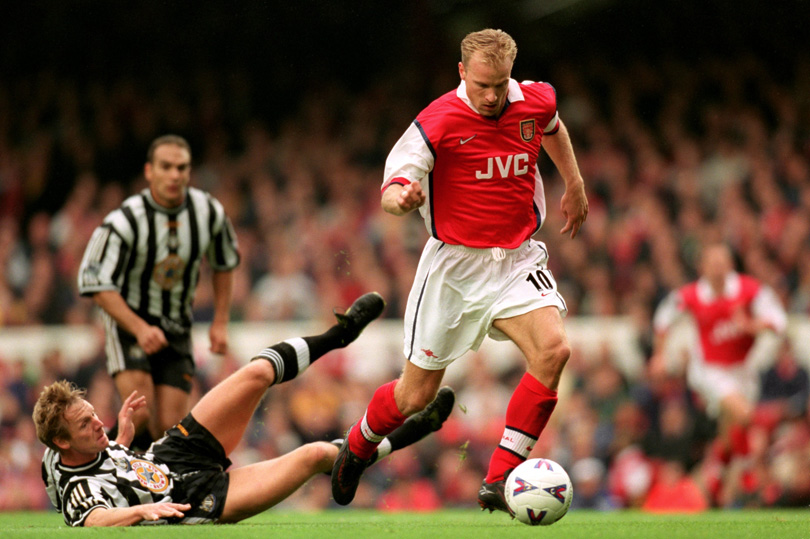
Schooled in the Dutch tradition of ‘Total Football’ under Johan Cruyff at Ajax, Dennis Bergkamp’s two-decade career saw him go down as one of the greatest forwards of his generation.
His 1995 move to Arsenal following an underwhelming stint at Inter Milan was a landmark transfer for the Premier League as he became the fulcrum of Arsene Wenger’s era-defining Gunners side. He combined flawless technique and the ability to take over games with some of the greatest goals English football has ever seen.
56. Sandro Mazzola
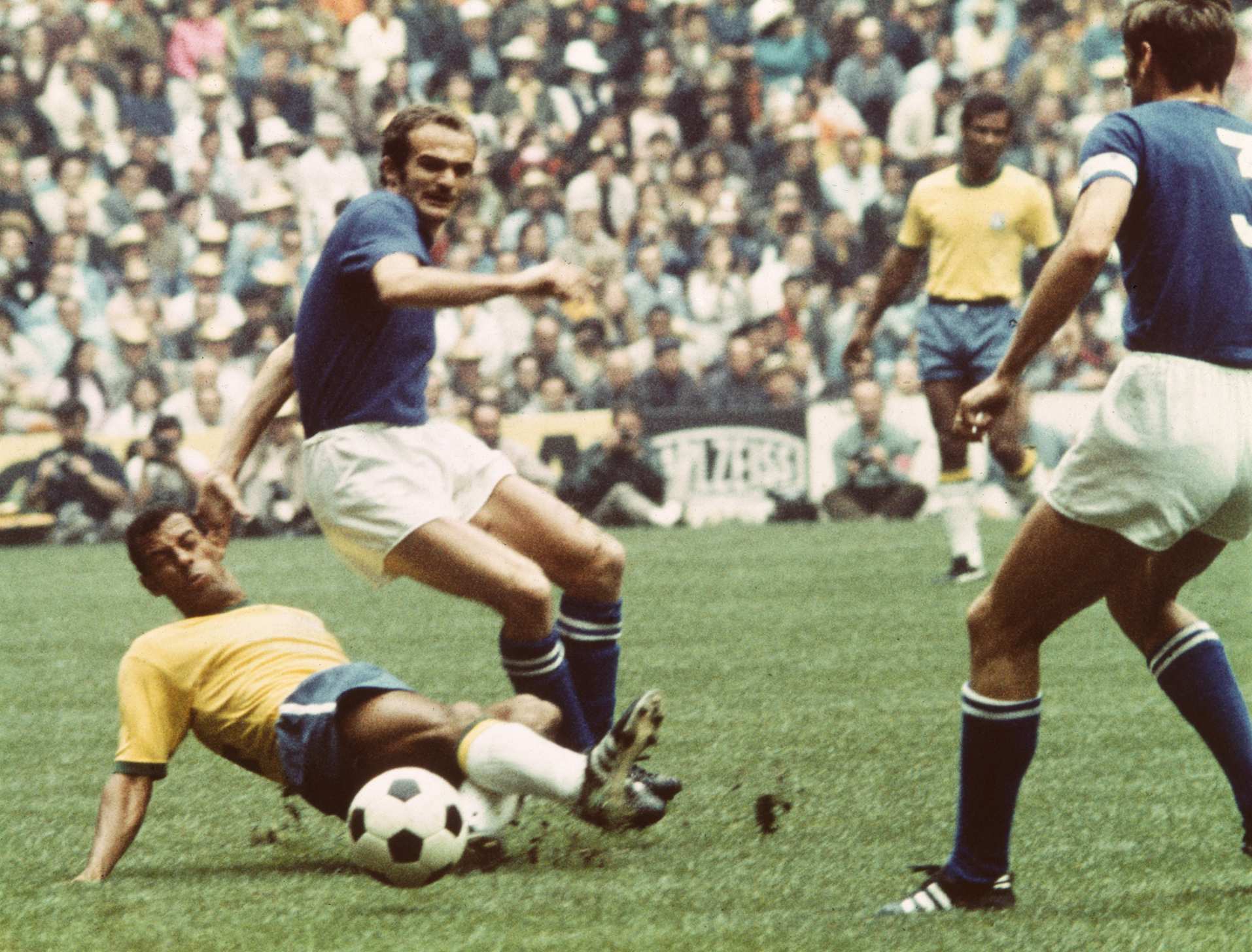
The former Inter Milan forward was a one-club legend who defined Italian football in the 1960s and ‘70s. During 17 seasons with I Nerazzurri, Mazzola would win four Serie A titles and two European Cups, while he would lift the European Championship trophy with the Azzurri in 1968, before playing his part in the legendary 1970 World Cup final defeat to Brazil.
Fast, skilful and hard-working, Mazzola would operate in a number of attacking positions and was pipped to the 1971 Ballon d’Or by Johan Cruyff.
55. Denis Law
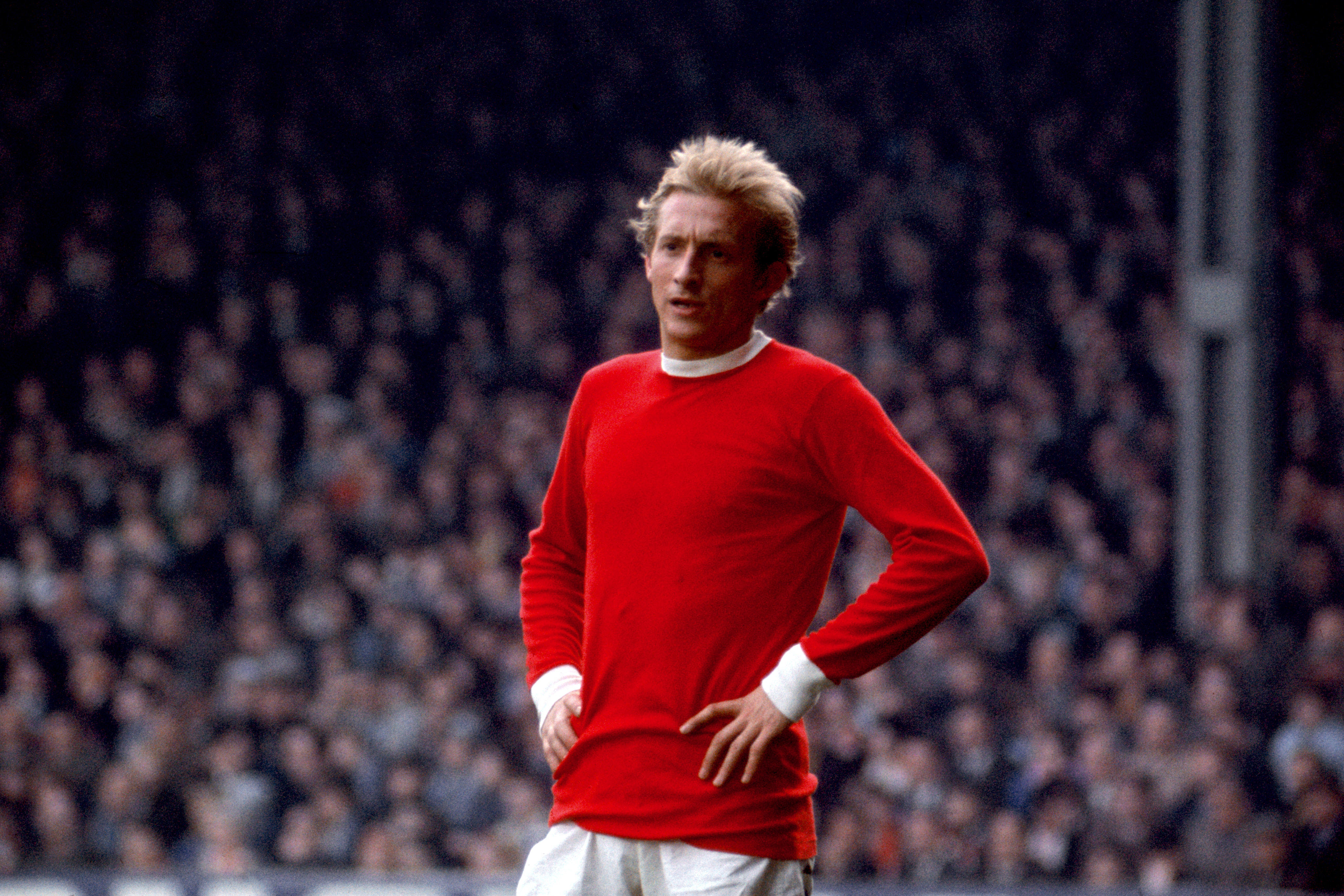
Nicknamed ‘Denis the Menace’ by opposing supporters, Denis Law continues to be renowned as one of the greatest Scottish strikers to have ever played the game. 11 long years at Manchester United saw him net a whopping 237 goals and his statue remains an ever-lasting part of Old Trafford alongside George Best and Bobby Charlton.
A Ballon d'Or winner in 1964, the former Torino man won the European Cup in 1968 in what is still remembered as one of the Red Devils best-ever sides under legendary boss Sir Matt Busby.
54. Johan Neeskens
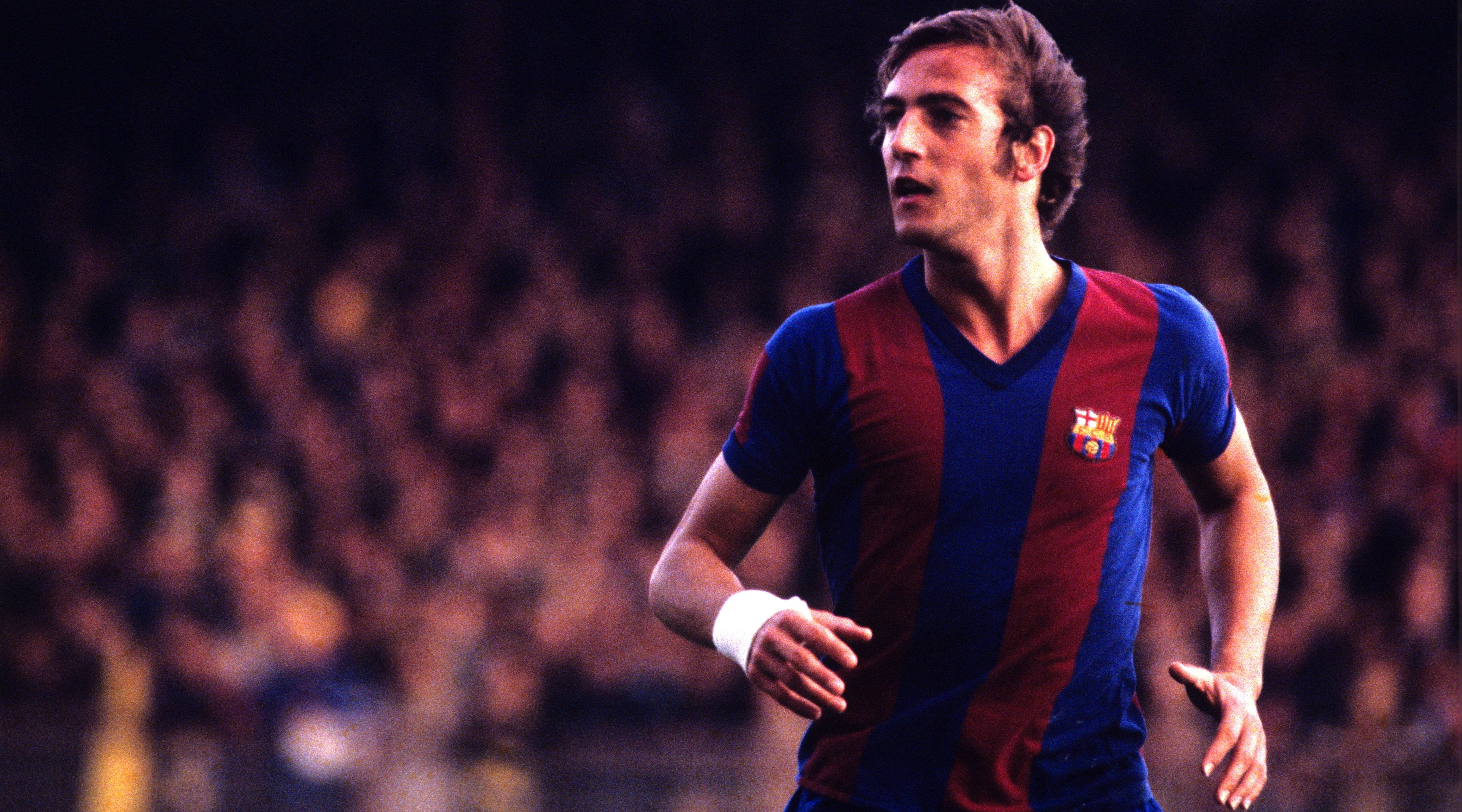
Hailed as one of the Netherlands' finest midfield exports, Johan Neeskens helped revolutionise the beautiful game we all care to enjoy and watch to this day. Known for his exceptional skills, aggressive playing style, and iconic hairstyle, Neeskens was integral as Holland finished as runners-up at the 1974 and 1978 FIFA World Cups.
Long-standing spells with Barcelona and Ajax cemented his place in history, with his talents the perfect partner for fellow all-time great Johan Cryuff.
53. Gunnar Nordahl
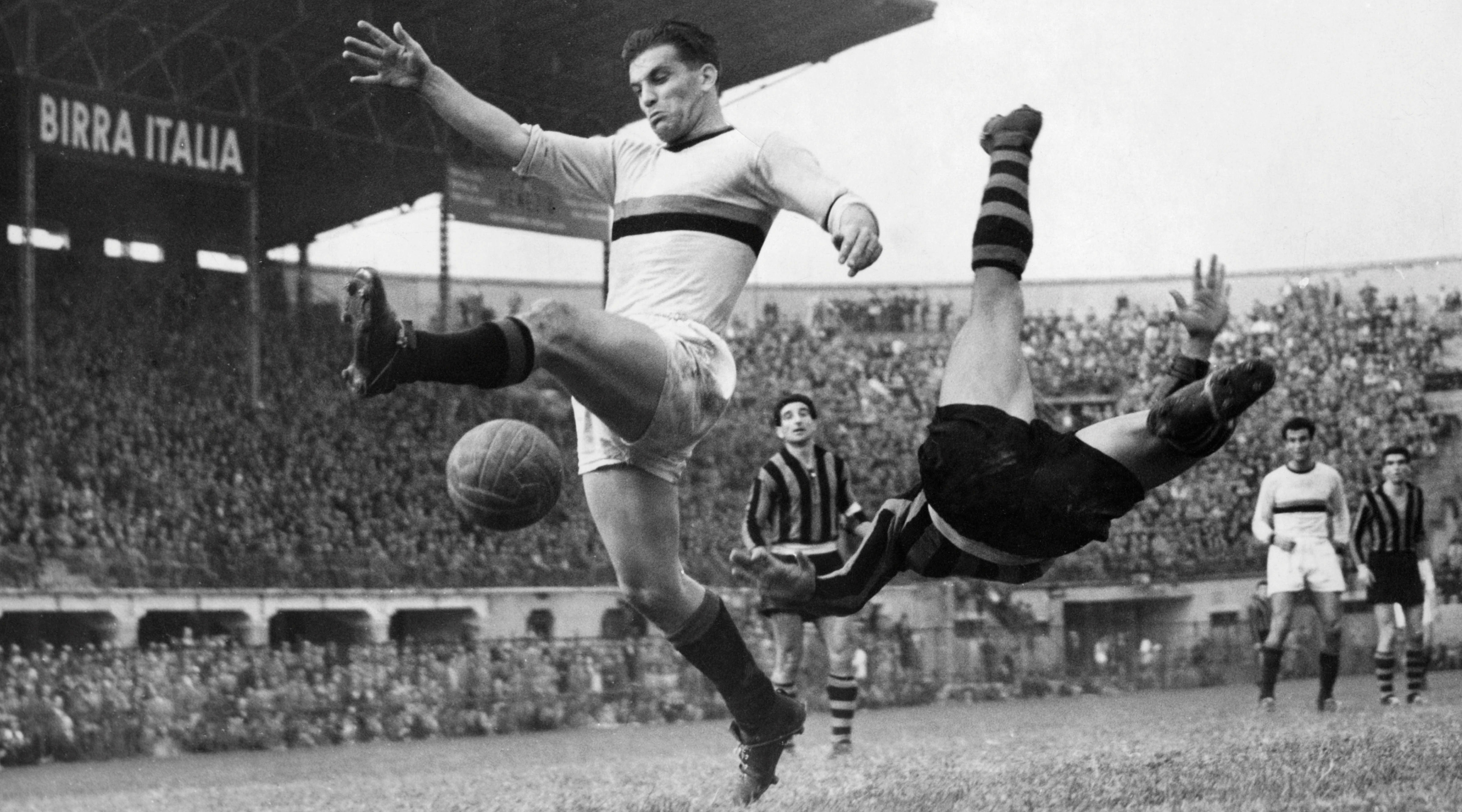
A physical, powerful, brute-like centre forward, former AC Milan hero Gunnar Nordahl will forever have his name etched into Rossoneri folklore. Having won the Italian top flight twice and finishing his career as a five-time top scorer in Italy, he also long held the record for most goals for a single club in history before being overtaken by Francesco Totti in 2012.
Having moved from IFK Norrkoping during his early playing days, Nordahl’s talents in attack mean he is reserved amongst Sweden’s best-ever when it comes to attacking prowess.
52. David Beckham
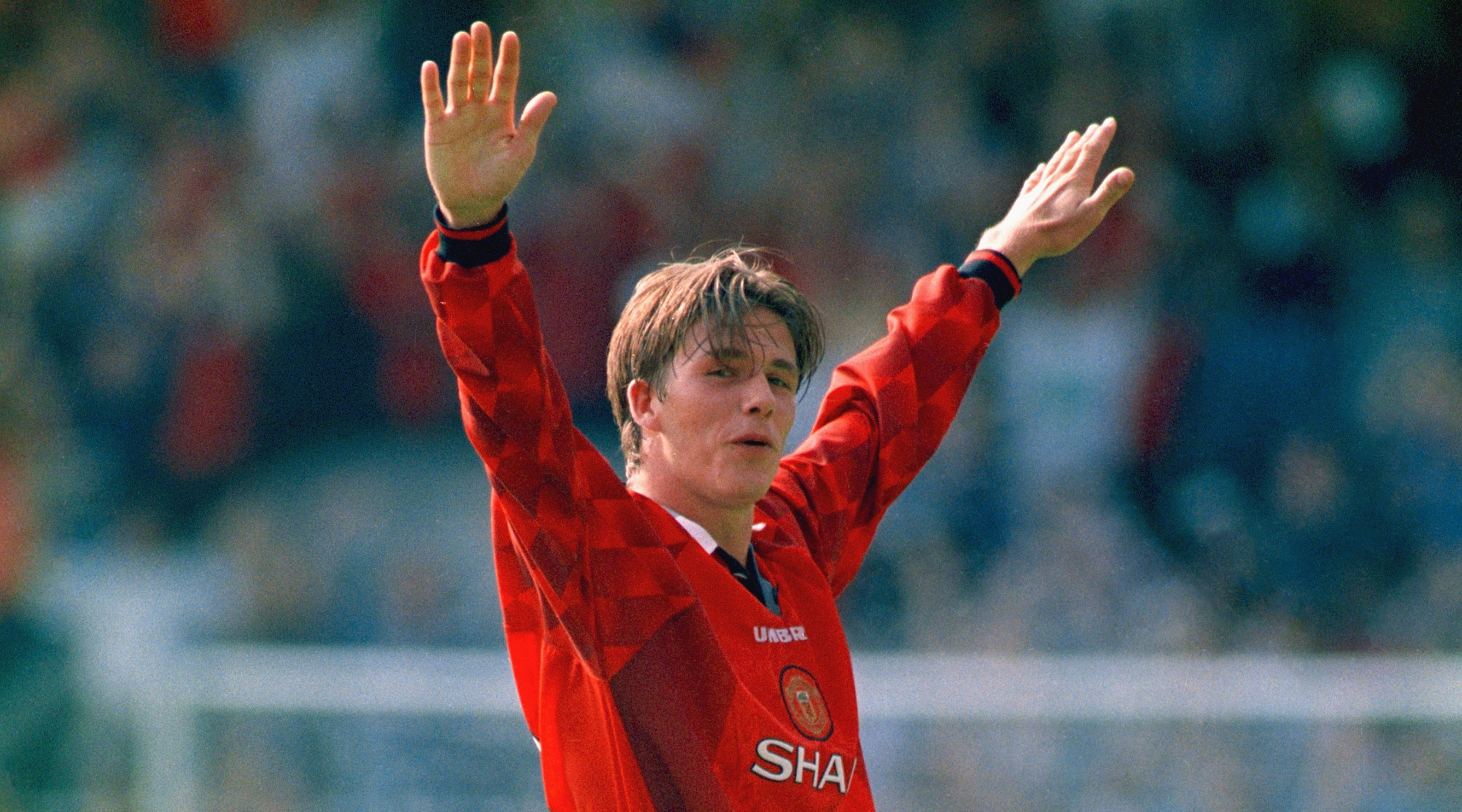
Perhaps the most iconic footballer to have ever played the game, David Beckham is a name that is widely renowned as one of the most recognisable in football. A Class of 92 graduate, Beckham enjoyed success under Sir Alex Ferguson at Manchester United, claiming six Premier League titles as well as being a pivotal part of the 1999 Treble-winning side.
Spells with Real Madrid, AC Milan, LA Galaxy and PSG all followed but his sheer art-like talents when striking the ball makes him one of the best midfielders to have ever played.
51. John Charles

Largely known for his stints at Leeds United at Juventus, Charles won three Serie A titles in Italy and was extremely versatile, capable of playing both as a centre-forward and as a centre-back, and is regarded as one of Wales' best-ever players.
Nicknamed ‘The Gentle Giant’, he passed away in 2004 but will always be remembered for his correct behaviour on the pitch in the way he conducted himself to both opposition players and referees.
50. Phillip Lahm
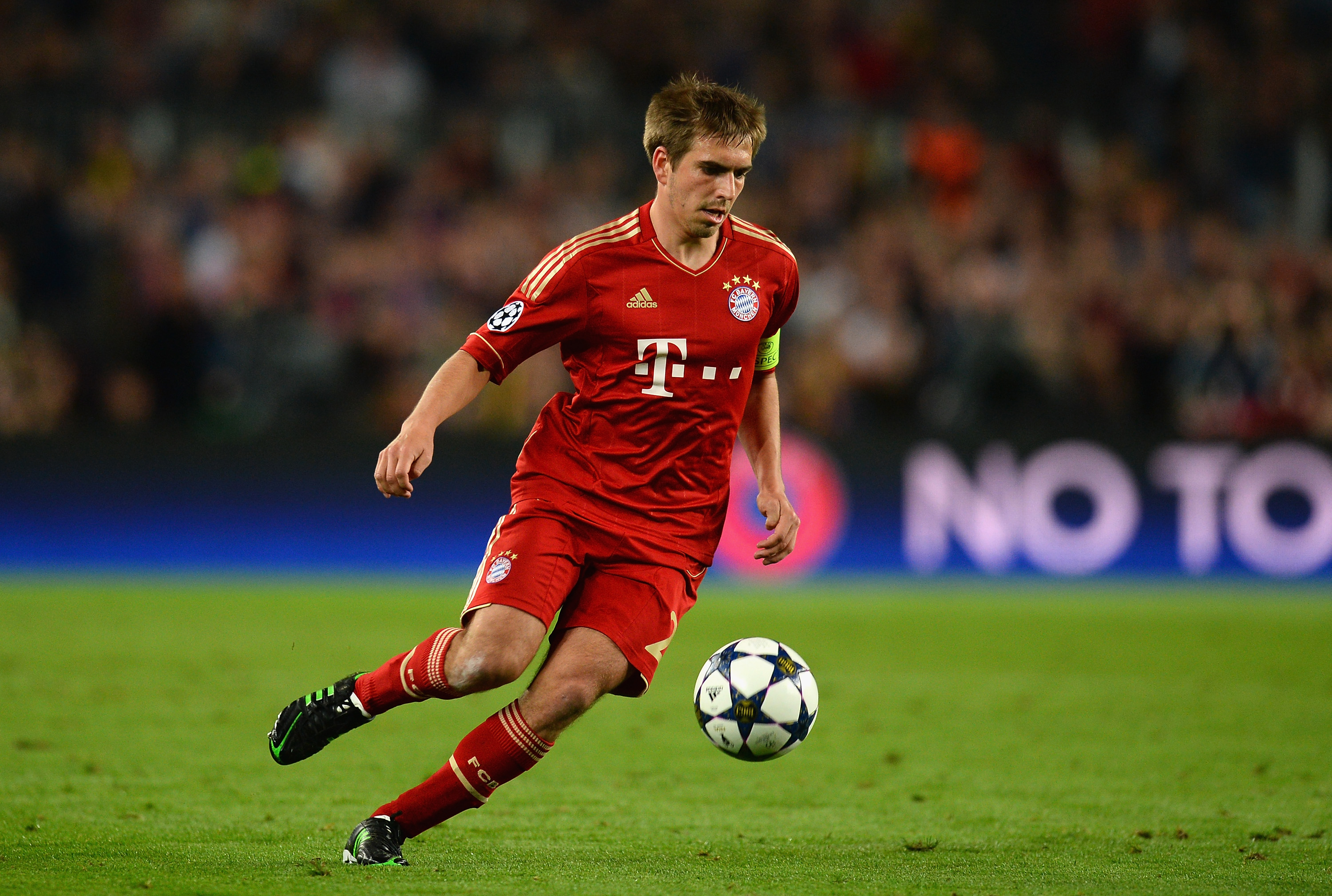
While small in stature, Lahm left a towering legacy with Germany and Bayern Munich and stands among the greatest full-backs the game has ever seen. Lahm’s list of honours doesn’t miss much; he conquered the Bundesliga, Champions League and World Club Cup for club and the 2014 World Cup with his country.
Lahm’s steady leadership was the foundation stone of a period of rich success for both Bayern and Germany. Versatile, smart and tireless, Pep Guardiola once described Lahm as “perhaps the most intelligent I’ve ever coached.” High praise indeed.
49. Gareth Bale
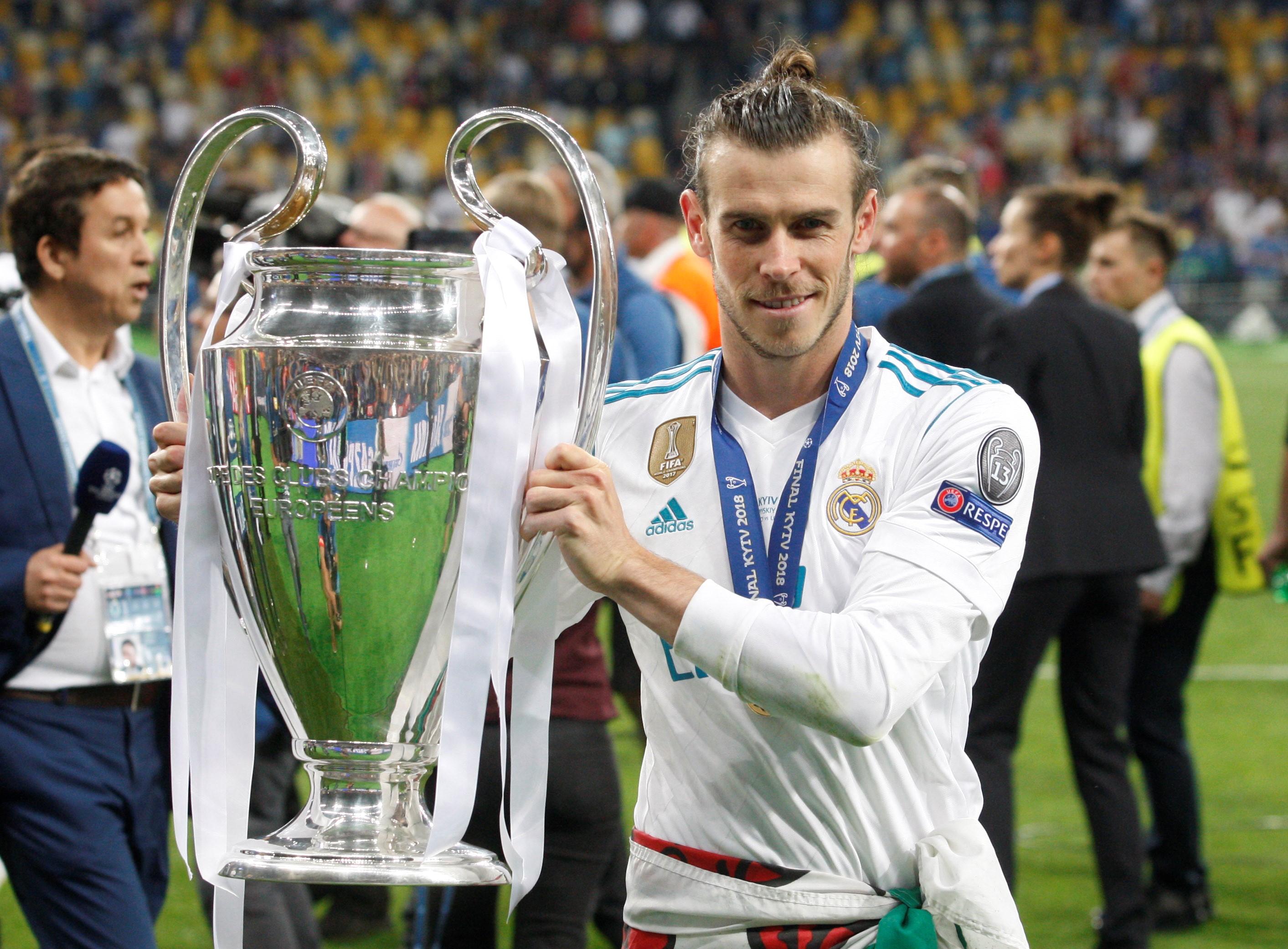
From gangly Southampton left-back to Champions League final-winning Real Madrid superstar, Bale’s rise was an astonishing success story. His jaw-dropping overhead kick in 2018 sealed one of an incredible five European crowns in Madrid, while his explosive Copa del Rey final goal against Barcelona in 2015 underlined his world class pace, power and technique at once.
For Wales, he was the talismanic leader behind their most successful period, leading his country to the semi-finals of Euro 2016, again reaching the knockouts five years later and then taking them to their first World Cup since 1958 in Qatar.
48. Eric Cantona
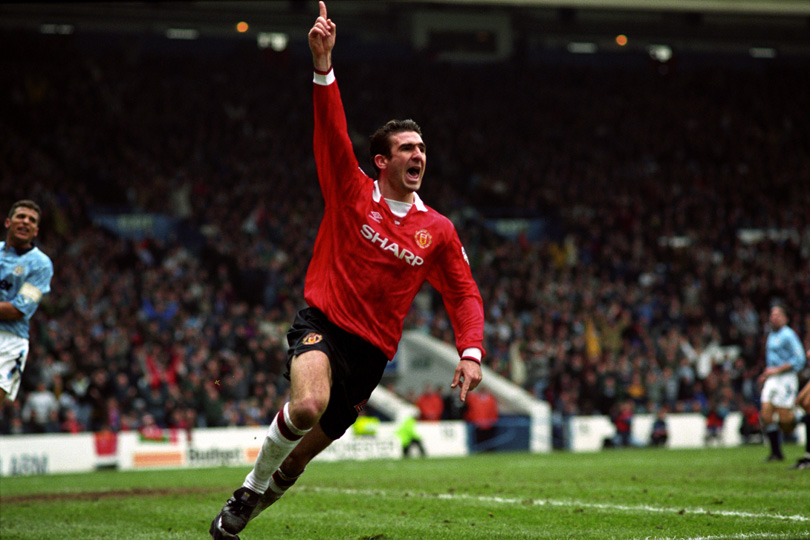
Where to start? From comments about seagulls following trawlers to karate kicks, the enigmatic Frenchman certainly kept everyone entertained. But let’s not forget that for all the swagger, Cantona was one of the most wonderfully talented players ever to grace the Premier League.
Capable of scoring dazzling individual goals, from deft chips to deadly scissor kicks, Cantona was blockbuster week on week. He may have retired young, aged just 30, but he left us with an unmatched highlight reel of memories – not to mention a whole host of trophies to place on his mantelpiece.
47. Karl-Heinz Rummenigge
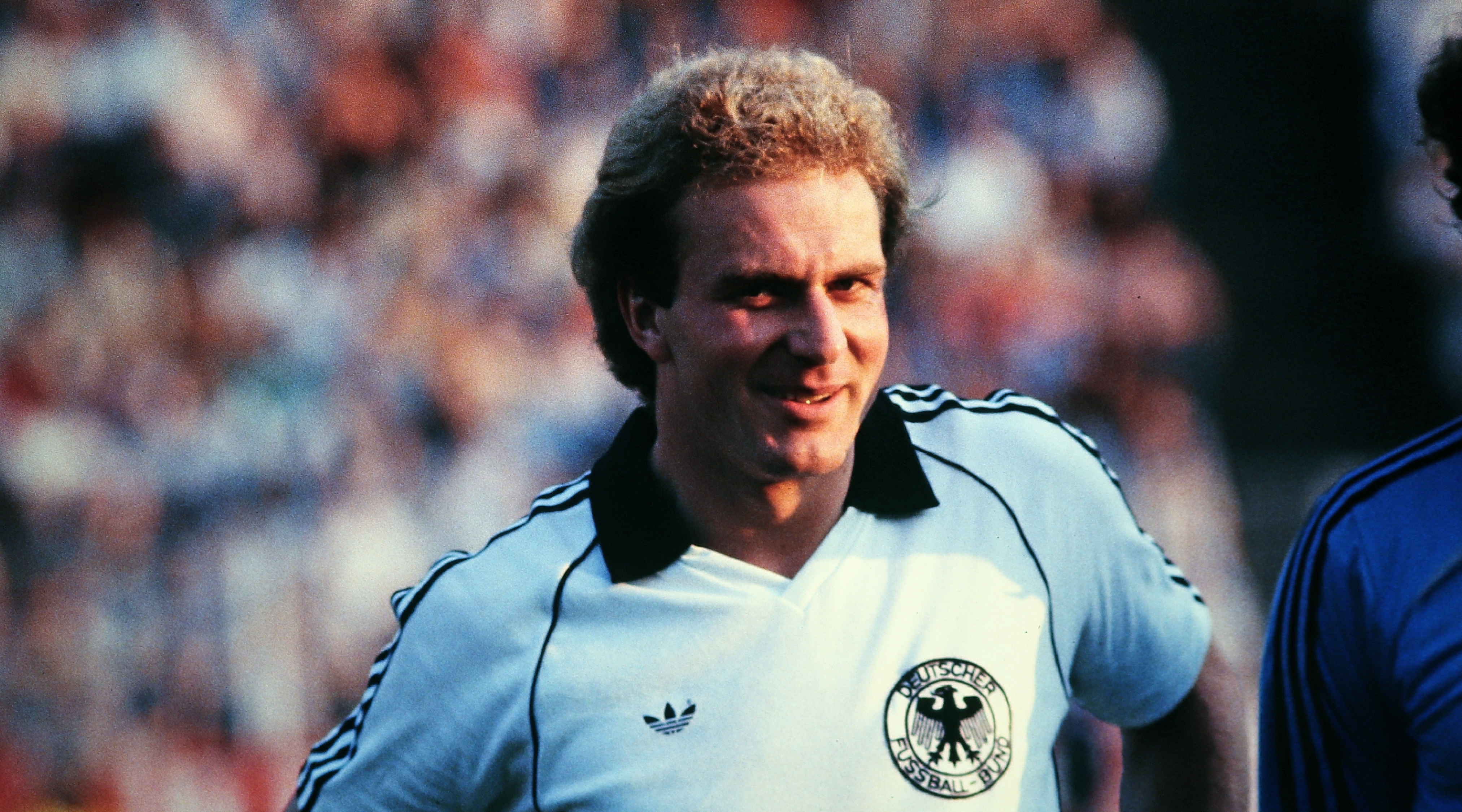
Two-time Ballon d’Or winner Rummenigge’s name has become synonymous with German football and Bayern Munich in particular. As a forward he was prolific; his 217 goals for Bayern places him fourth in the storied club’s all-time ranking, while a taly of 45 strikes in 95 caps makes him the sixth-top scorer for Germany.
A two-time European Cup and Bundesliga winner, Rummenigge was a key man for the West Germany sides of the 1970s and ‘80s, winning the 1980 European Championship but falling heartbreakingly short of a World Cup winners’ medal when he captained his country to back-to-back runners-up finishes in 1982 and 1986.
46. Gianni Rivera
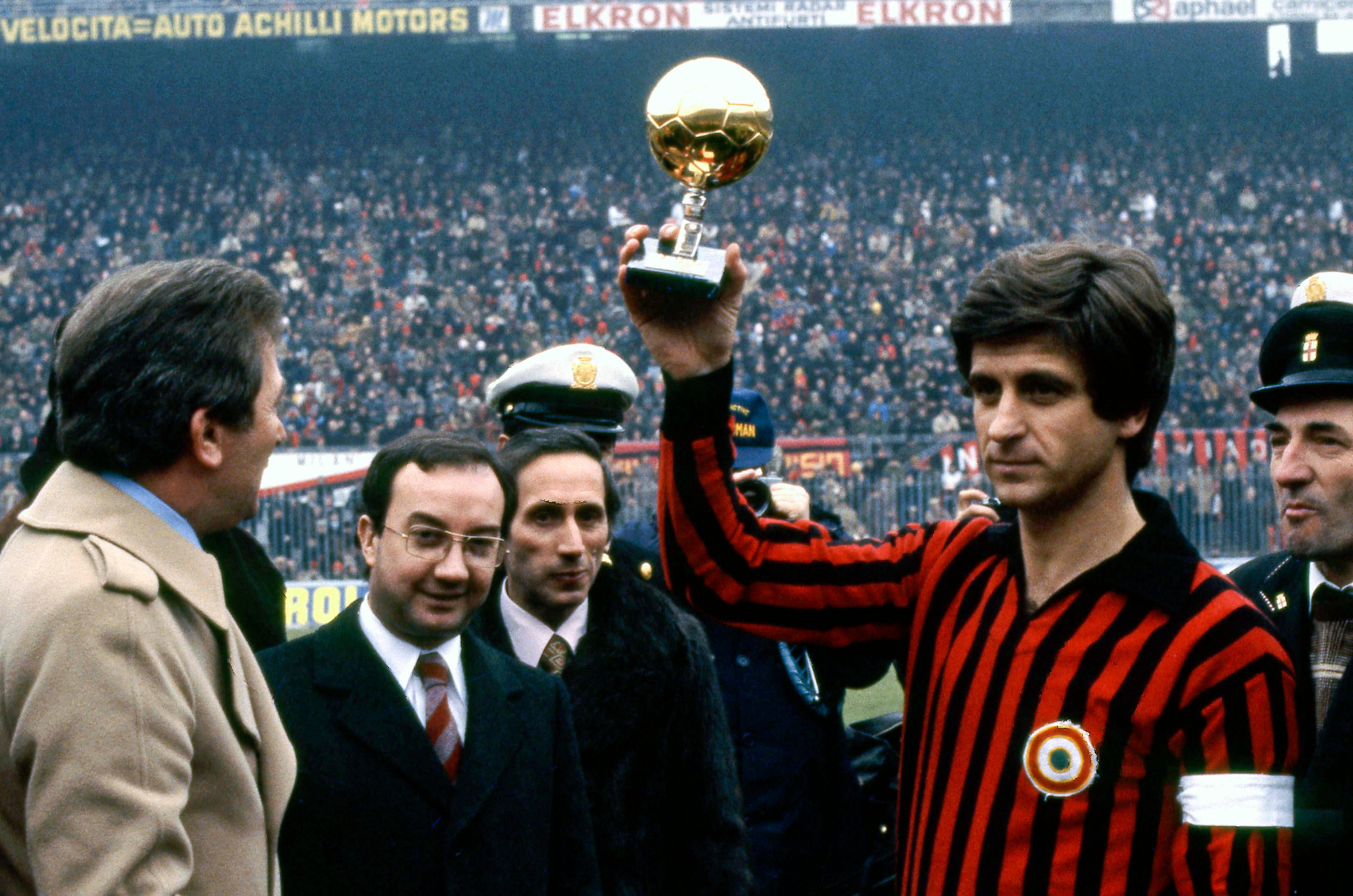
Italy's 'Golden Boy', Rivera captained AC Milan for 12 seasons in his career from attacking midfield, with the Italian leading by example through his elegance and creativity. Regarded as a player with plenty of class and respect, he was a highly intelligent playmaker who won the 1969 Ballon d'Or thanks to his exploits in helping Milan win the European Cup that season.
He also had a highly successful international career, winning the 1968 Euros before helping Italy reach the 1970 World Cup final with an extra-time winner against West Germany in the semi-finals, only to lose to Brazil in the final. Still, his leadership transferred in later life to a career in politics, where he eventually became a Member of the European Parliament.
45. Gordon Banks
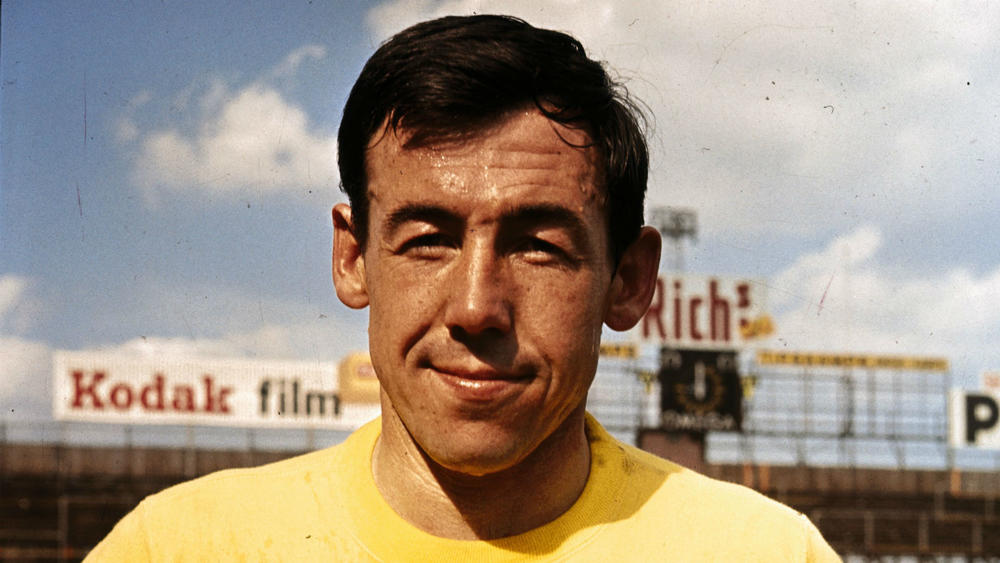
Banks needs no introduction: England’s greatest ever goalkeeper, a 1966 World Cup-winning hero and the man responsible for one of the greatest saves ever seen. Over a 20-year career, Banks shot to international fame for his performances at international level, while finishing up his club career with League Cup winners’ medals for both of his most-represented clubs, Leicester and Stoke.
A six-time FIFA goalkeeper of the year, Banks himself knew the importance of his wonder save against Brazil's Pele in 1970: “They won’t remember be for winning the World Cup, it’ll be for that save,” he later said.
44. Fritz Walter
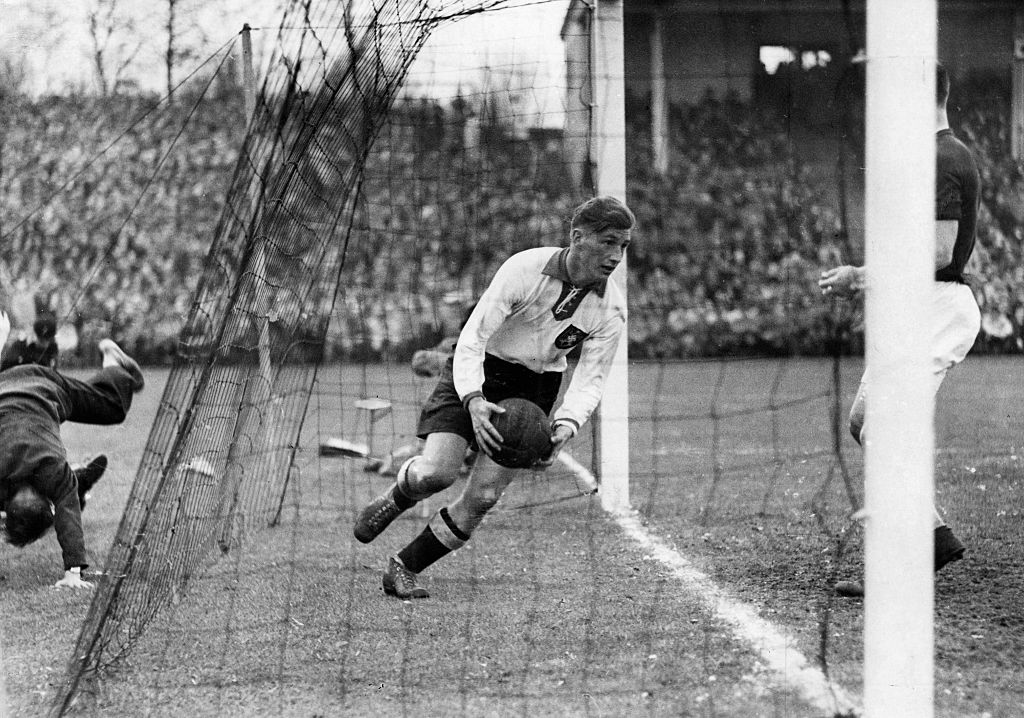
Walter was the pin-up star of post-war German football, firing his hometown club Kaiserslautern to two league titles and captaining West Germany to the 1954 World Cup.
A one-club man, the forward scored a remarkable 348 goals in 364 games at club level and Kaiserslautern’s stadium was renamed Fritz Walter Stadion in 1985 in his honour. His legacy remains in the German language too – ‘Fritz Walter weather’ is used to describe rainy conditions, as he was famous for playing better the worse the weather was.
43. Dino Zoff
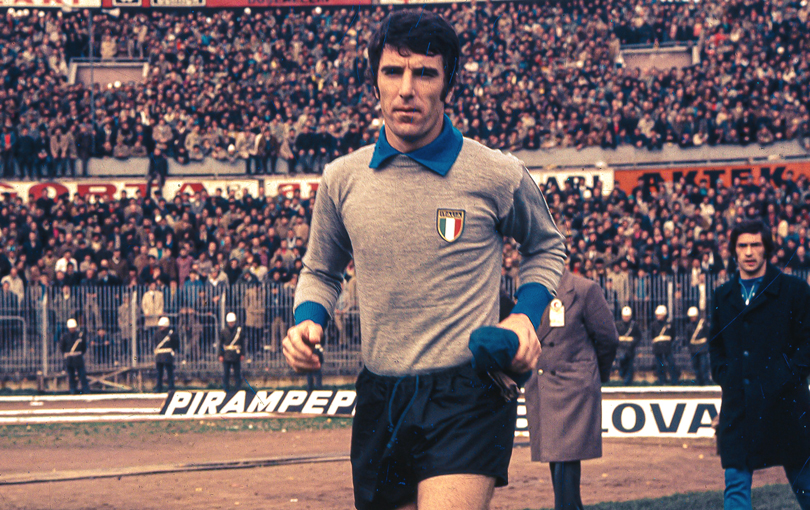
Zoff is the oldest-ever winner of the World Cup, having lifted the trophy in 1980 at 40-years-old - 12 years after winning the 1968 Euros. As a result, he is the only Italian to have won both major international trophies, and that's no surprise considering the quality he possessed as a goalkeeper.
Highly-revered through his calming and imposing presence in between the sticks, Zoff was best-known for his positioning, handling and leadership. His discipline is also regarded as among the very best in history, helping him to enjoy a 22-year playing career at the top level.
42. Gaetano Scirea
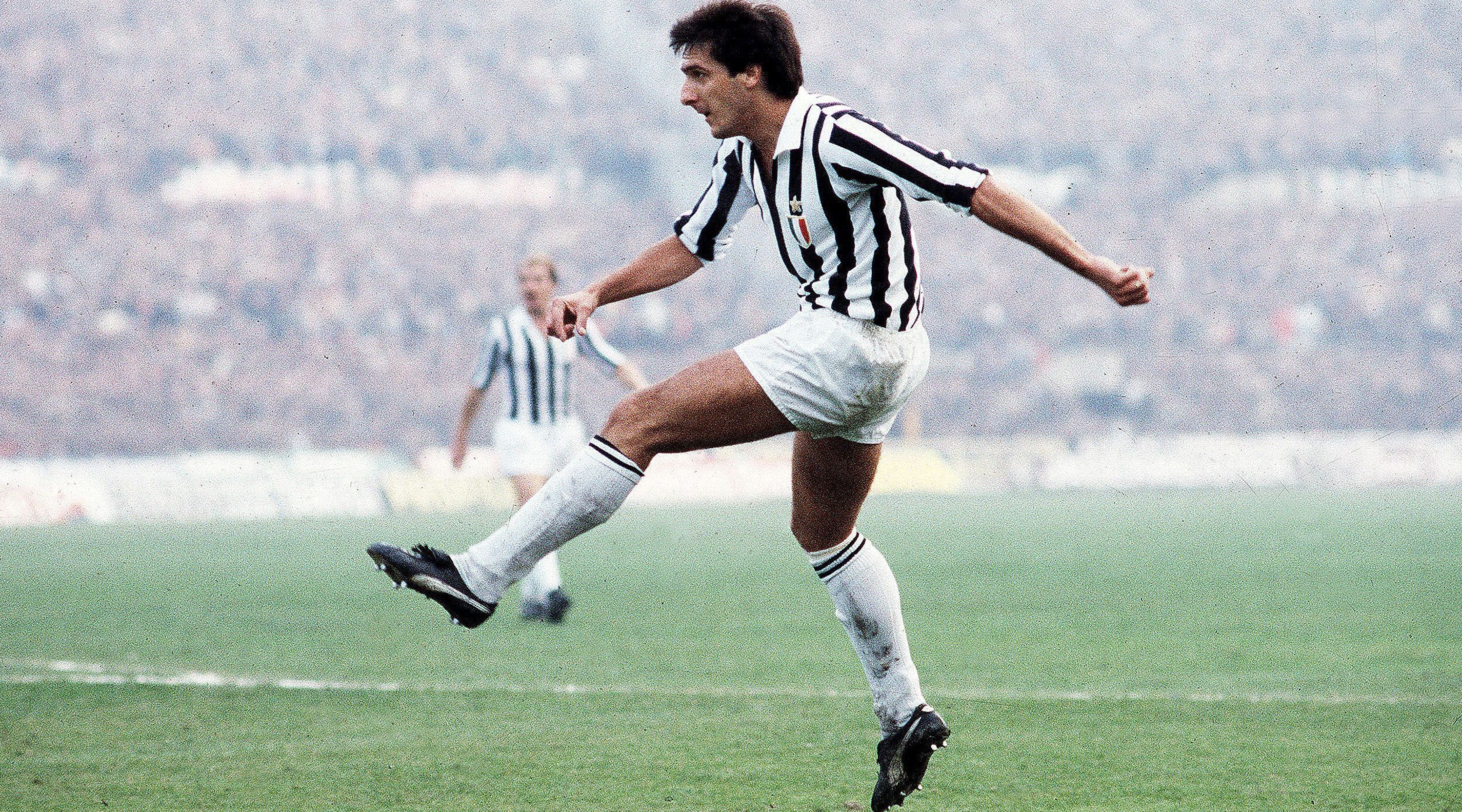
Scirea stands in an elite club of six players to have one every UEFA and FIFA-recognised trophy – and that is no coincidence. The Juventus legend is considered one of the greatest defenders ever to do it and was ahead of his time in combining a strong reading of the game with excellent technical ability and composure on the ball that saw him excel in the libero role for club and country.
A model of sportsmanship, Scirea didn’t earn a single red card in a distinguished career crowned by his leading role in Italy’s 1982 World Cup win.
41. Kevin Keegan
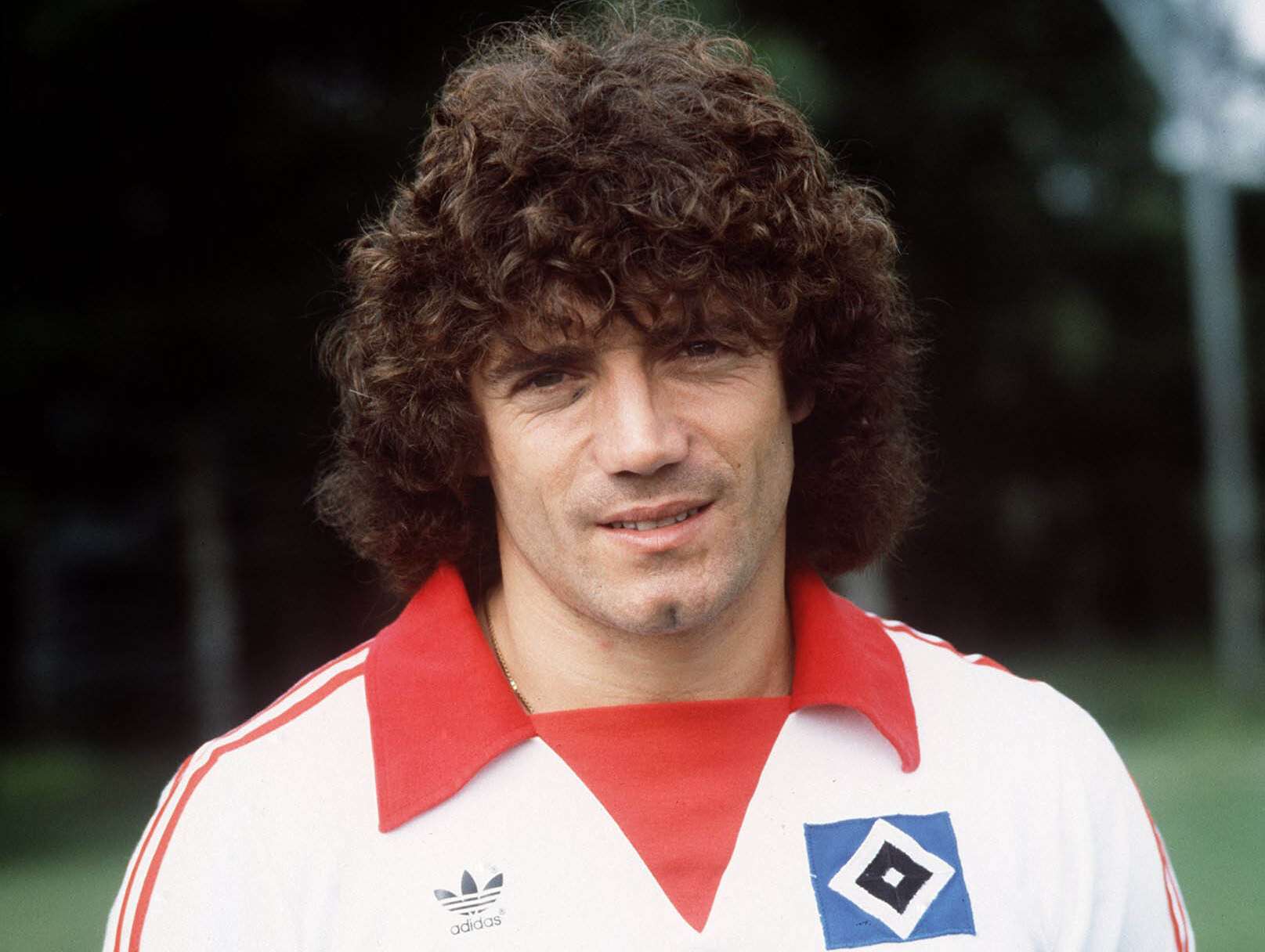
King Kev was a big-haired 1970s sensation in two countries. He conquered England and Europe under Bill Shankly at Liverpool before joining Hamburg, a bold move that paid off big time with further domestic and continental glory and back-to-back Ballon d’Or gongs in 1978 and 1979.
The most prolific season of his career came later with a 30-goal rush at Southampton, before he helped fire Newcastle back to the top-flight. English football royalty indeed.
40. Paul Gascoigne
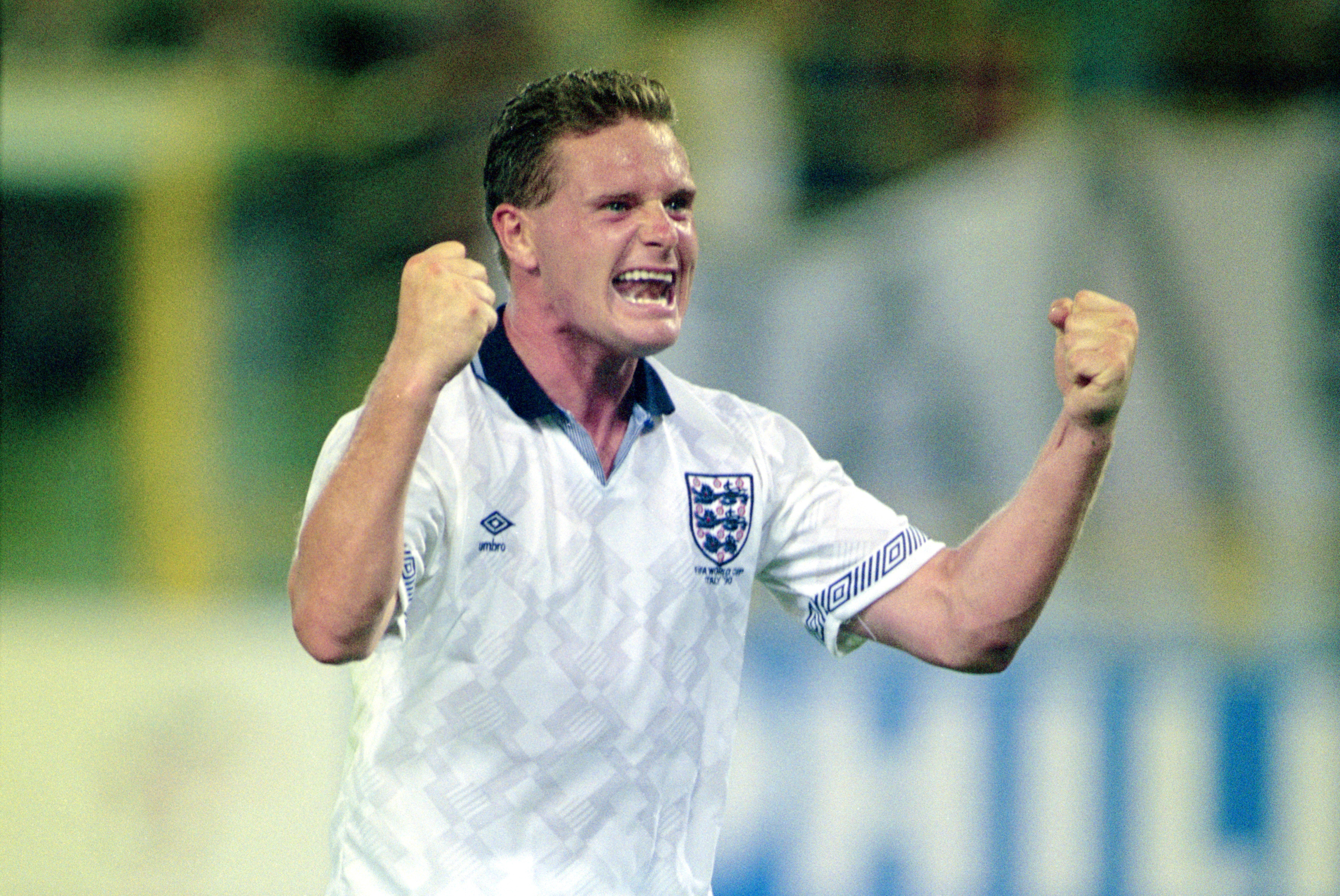
Quite possibly the supreme natural talent English football has ever produced, as well as one of its most exciting and relatable. When Gazza moved to Italy, Channel 4 acquired the rights to Serie A just so we could all keep watching him. He was that much of a superstar.
A constant source of ‘how on earth has he done that?’ magic for both club and country, injuries and personal issues stopped him doing it for longer.
Yet still, there’s an entire generation of football fans who still break out into a misty-eyed grin remembering Gascoigne at his pomp.
39. Giuseppe Meazza

Meazza possessed excellent proficiency in his dribbles and a great ability to find the back of the net with his unerring accuracy, as demonstrated across his 20-year playing career between 1927 and 1947. The Italian striker scored 347 goals across 564 appearances for both club and country, playing most notably for Inter Milan before short spells at AC Milan and Juventus during his later career.
But while he has an impressive club career, it's what Meazza achieved at international level that earns him a place so high on this list. With two World Cup triumphs, Meazza played in every match for Italy in 1934 and 1938, even captaining the side in the latter tournament as he led them to victory.
Such was his influence, the ground shared by Inter Milan and AC Milan is actually officially known as the Stadio Giuseppe Meazza, with San Siro only a nickname.
38. Arjen Robben
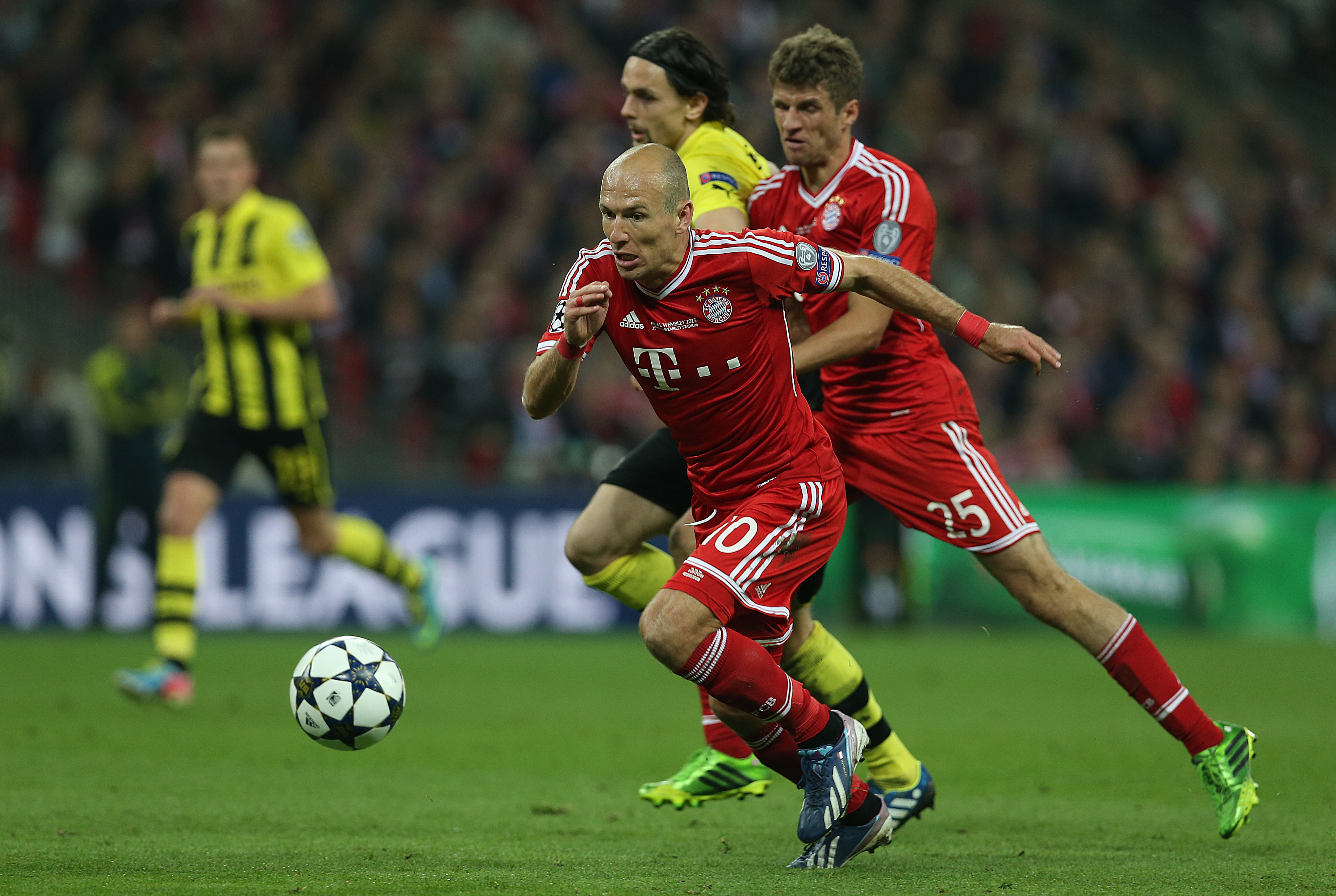
Calling Robben a one-trick pony is a bit unfair: there was more to the Dutchman than just cutting inside from the right onto his left foot and smashing it into the net.
The thing is that we saw Robben do it a million times, because nobody ever quite figured out a way to stop him doing it, especially at his Bayern Munich peak.
Strong, technical and with a stunning eye for goal, Robben will forever be the touchstone inverted wingers are compared to – even above Mohamed Salah – in much the same way Stanley Matthews has been for more traditional wingers.
37. Gianluigi Buffon
There’s a list on Buffon’s Wikipedia page of all the records (or near-records) the goalkeeper holds that runs to 68 separate bullet points. Some are more impressive and valid than others, but still: 68!
Buffon’s 28-year playing career was remarkable not just for its length, but for his unerring consistency and shot-stopping ability throughout.
While two whole generations of his contemporaries faltered and declined, there stood Buffon, just as good as ever, through 975 club appearances and another 176 for Italy, winning ten league titles and a World Cup in the process.
36. Gunter Netzer
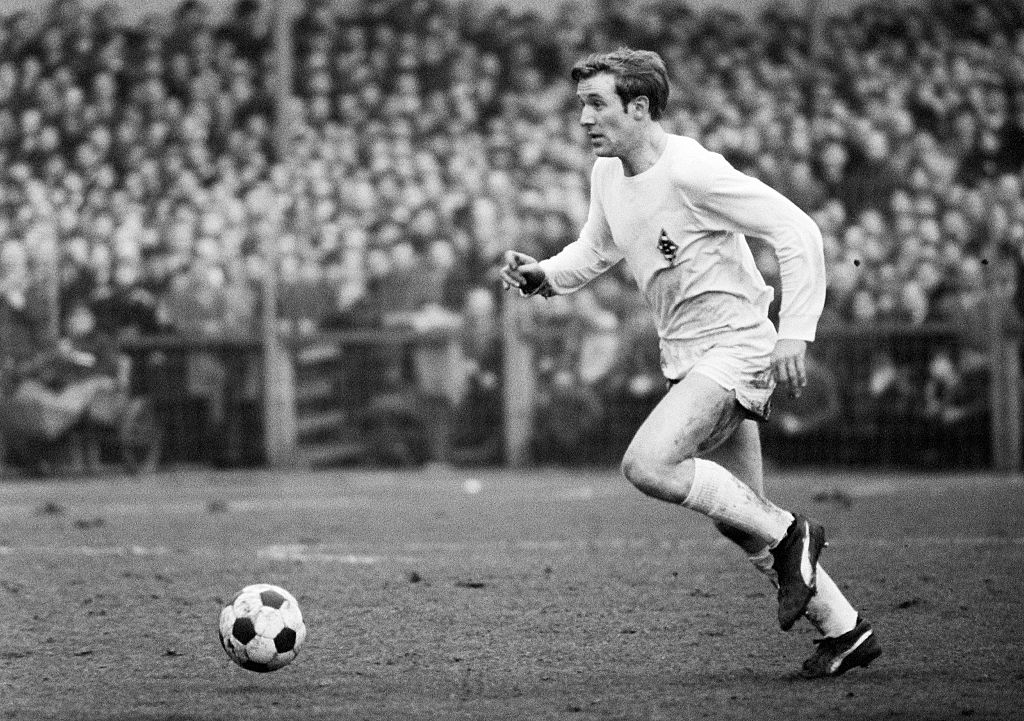
A pioneer, Netzer became the first player to win the World Cup while contracted to a club outside of their home country when he lifted the 1974 edition on home soil with West Germany - two years after triumphing in the Euros.
A technically gifted playmaker who dictated possession, Netzer earned the nickname 'Karajan' during his career, after the conductor Austrian Herbert Von Karajan. The German had great influence at Borussia Monchengladbach thanks to not only his superior technical ability, but also his leadership skills in motivating his team-mates. A late career move to Real Madrid also proved fruitful, as the off-field playboy won four trophies in three years.
35. Kevin De Bruyne

The ‘through pass’ button on FIFA was invented for De Bruyne, wasn’t it?
It takes some doing to come into a team midway through the tenure of a side’s greatest ever playmaker and live up to his standards, but De Bruyne was more than up to the task when he joined David Silva at Manchester City in 2015.
Nine years later, De Bruyne is second only to Ryan Giggs for making the most Premier League assists of all time – and his Manchester United counterpart had an extra 13 years to add to his tally.
34. Andrea Pirlo
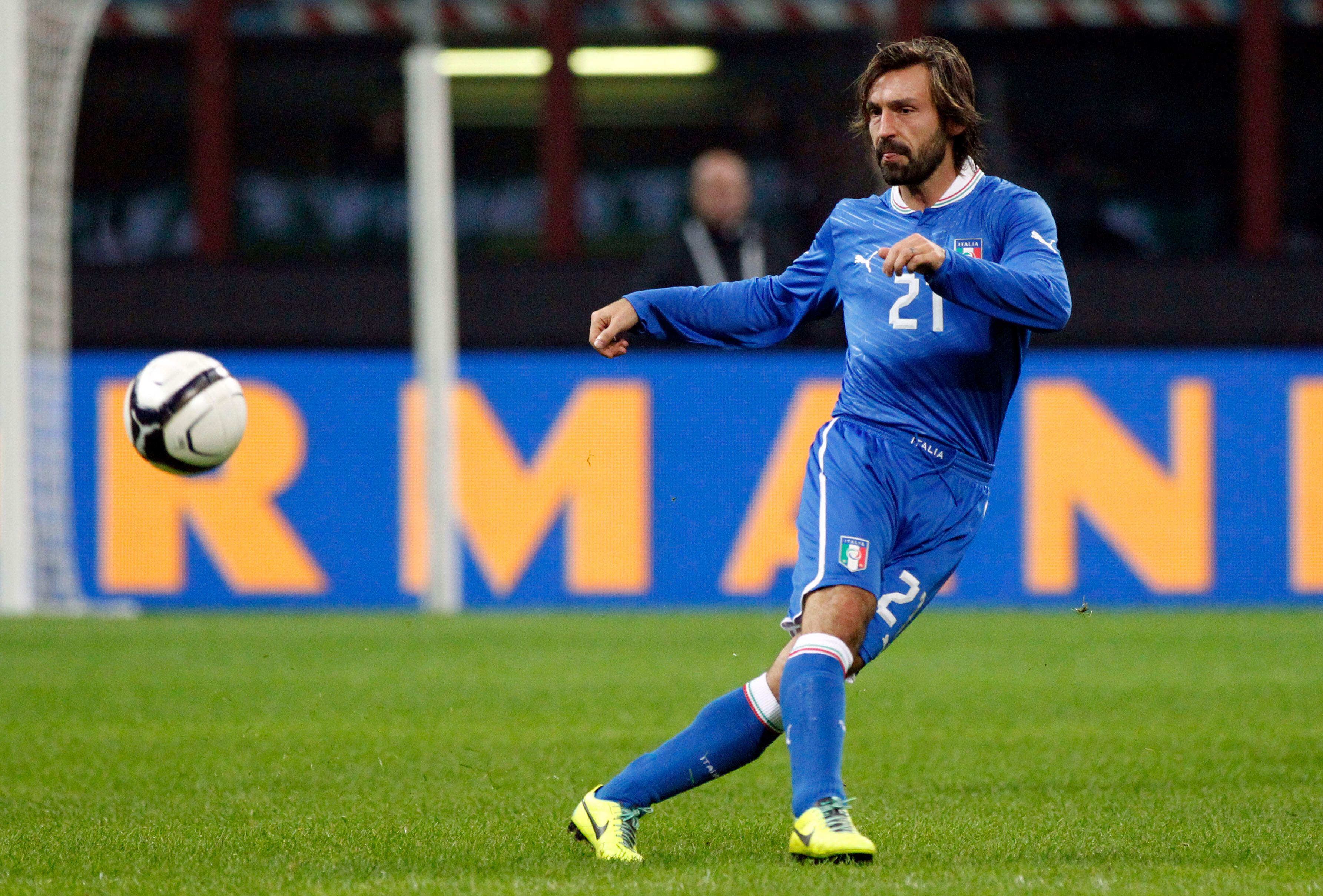
The definitive deep-lying playmaker, to the point that his name instantly provokes a full understanding of exactly what that job looks like at its best – though practically nobody has done it as well as Pirlo.
The midfielder certainly had his shortcomings, and it took a while for his talents to find an appropriate outlet in that position that was seemingly custom-made just for him.
But by the end of his career, Pirlo was highly-prized for his vision, variety and a phenomenal passing range that made him just as dangerous from defensive midfield as most number 10s.
33. Kenny Dalglish
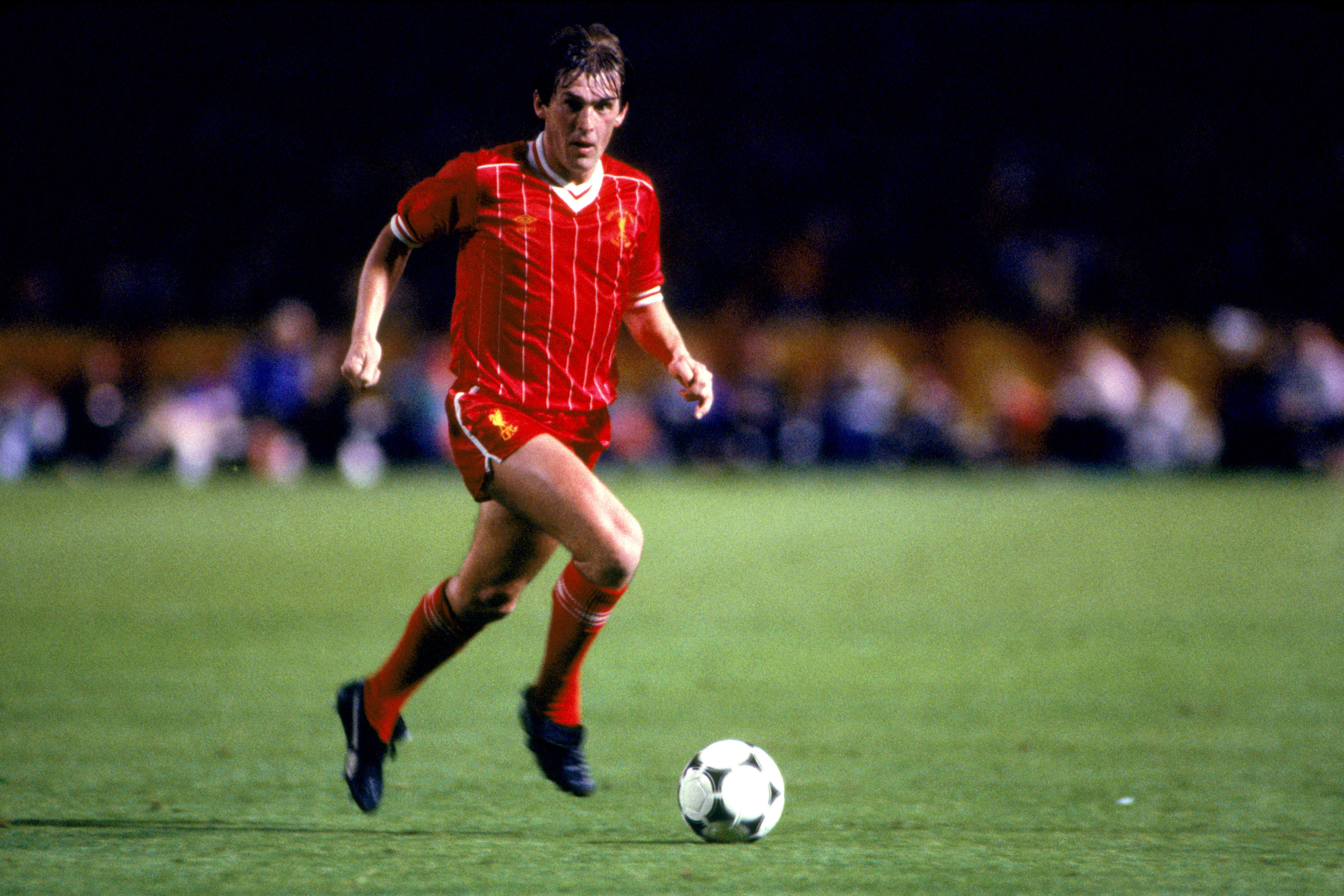
When it comes to strikers, there are goalscorers, and there are those who enable others to score. But for Celtic and Liverpool, Dalglish was the ultimate two-for-one offer.
Initially the focal point of the Liverpool attack after successfully replacing the seemingly irreplaceable Kevin Keegan, Dalglish later formed an unstoppably potent partnership playing just behind Ian Rush.
Just to round it off, Dalglish ended his Liverpool career as the most high-profile player-manager of all time, balancing his declining on-pitch commitments with leading Liverpool through the final years of their greatest-ever era – and the awful fallout of the Hillsborough disaster. The King.
32. Michael Laudrup
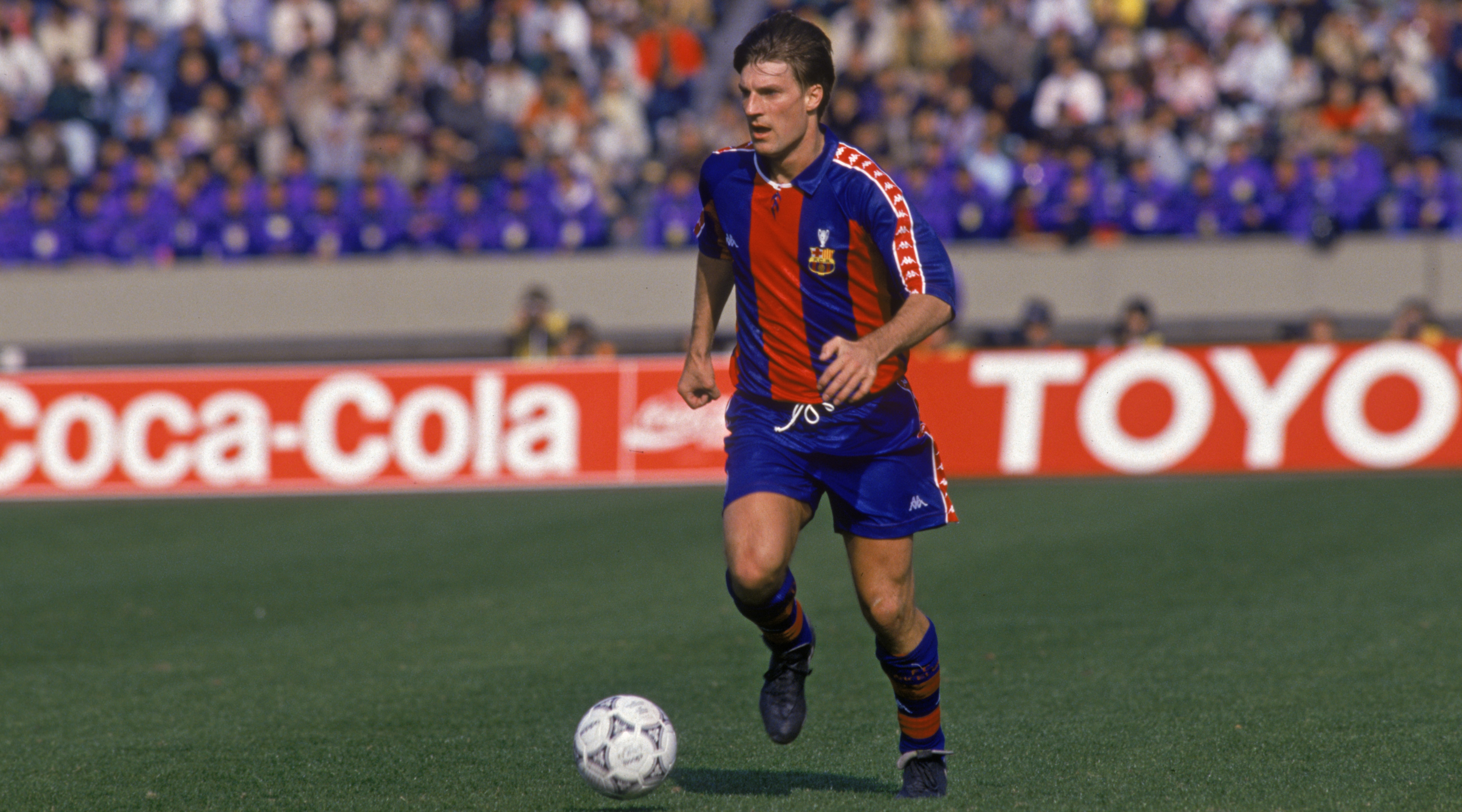
If the Dane were playing today, he would probably be better appreciated – and that’s really saying something, because Laudrup already had no shortage of admirers among those who played the game.
An incredibly classy playmaker, Laudrup didn’t just have a sensational reading of the game, but the technique to put his vision into action – and most of the time he did it while looking in a completely different direction, bamboozling opponents.
And yet if you ask his managers, we never even saw Laudrup trying his hardest. You can only imagine the heights he would have reached if he had.
31. Bobby Moore

When Pele and Franz Beckenbauer say someone is the best defender they ever saw, you listen. That’s Bobby Moore.
To this day, English fans will be intimately familiar with photos of Moore hoisting the World Cup on his teammates’ shoulders and his shirtless embrace with Pele four years later. Those two images say it all: Moore was a leader, respected and adored by teammates and opponents alike for his talents.
The word ‘iconic’ can be thrown around willy-nilly at times, but there’s no other word to describe Moore – and few players who live up to the tag so perfectly.
30. Francisco 'Paco' Gento
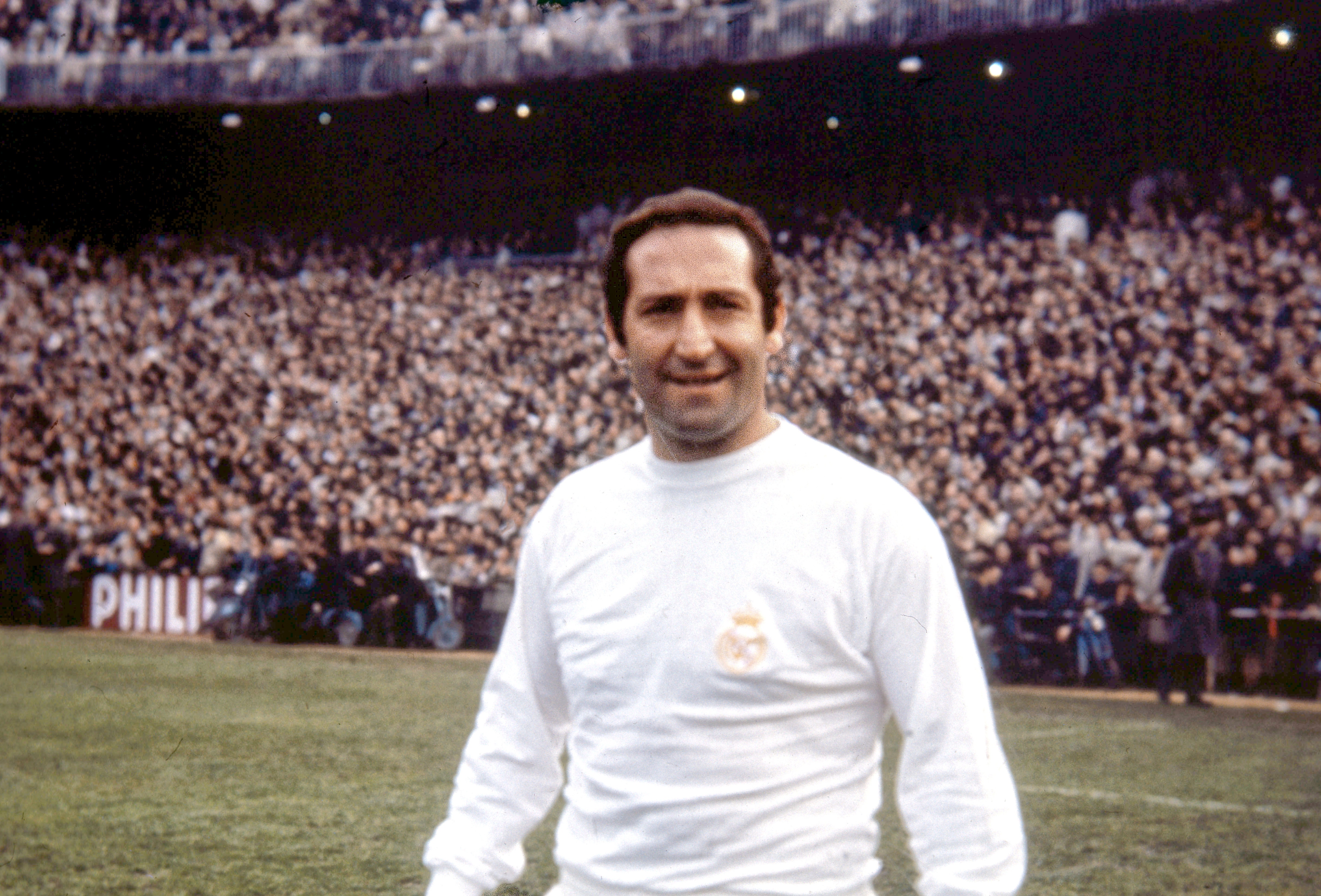
When Gento failed to score in his first season at Real Madrid in 1953, club president Santiago Bernabeu placed him under considerable pressure, with the then-20-year-old not living up to his potential at the club. Well, the Spaniard duly won Bernabeu over over the next 18 years until his retirement in 1971, winning the European Cup a record six times - making him the only Real player to feature in all of their triumphs on the continent during that period. He also added 12 La Liga titles to his incredible trophy haul.
Nicknamed The Gale of the Cantabrian Sea, due to his exceptional pace on the wing, Gento would often drift inside during games and link up with Alfredo Di Stefano and Ferenc Puskas, often to devastating effect. For a long time, he was heralded as the greatest Spanish player ever.
29. Luis Suarez
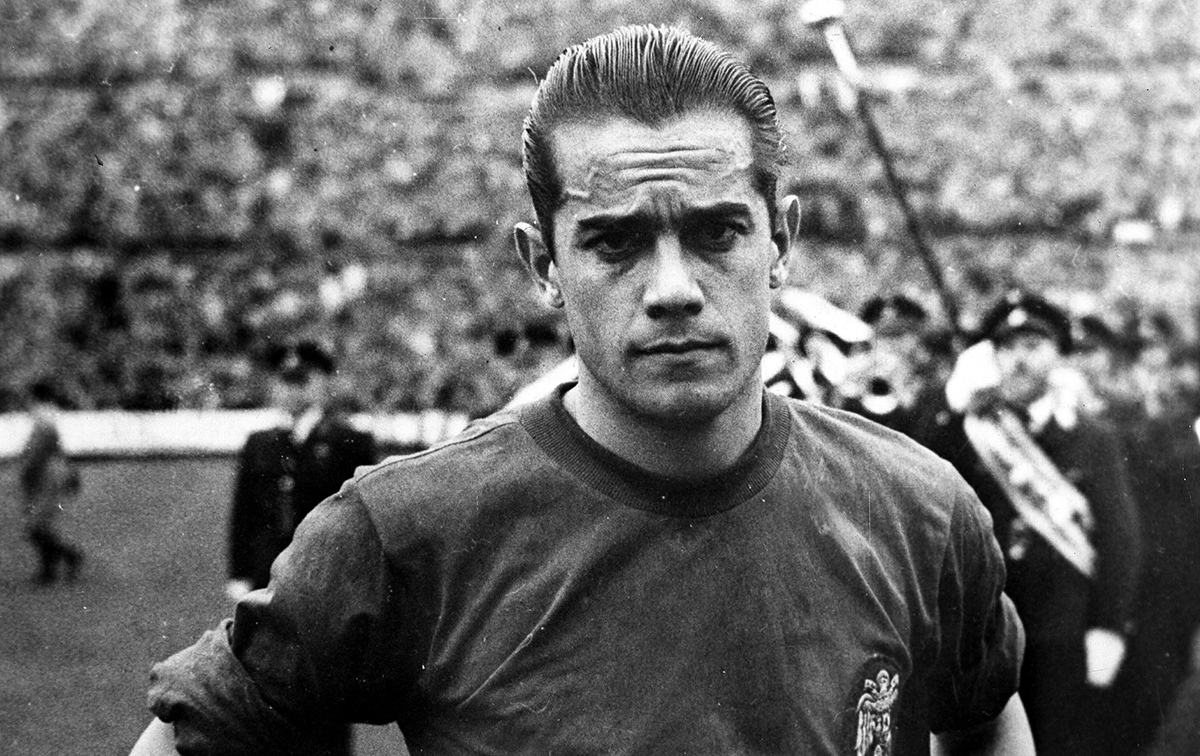
No, not that one. Though Spaniard Luis Suarez also enjoyed the best years of his career at Barcelona like his modern day namesake, the midfielder arguably had a greater impact during his time at the club. The only Spanish-born player to win the Ballon d'Or, awarded in 1960, Suarez enjoyed creating from attacking positions in his early career, before settling into a deep-midfield position across nine years at Inter Milan.
The Architecht had brilliant skill on the ball, expert vision and an unrivalled passing range. While at Inter, he helped the Italian side to two European Cups, and also won multiple league titles in both Italy and Spain.
28. Matthias Sindelar
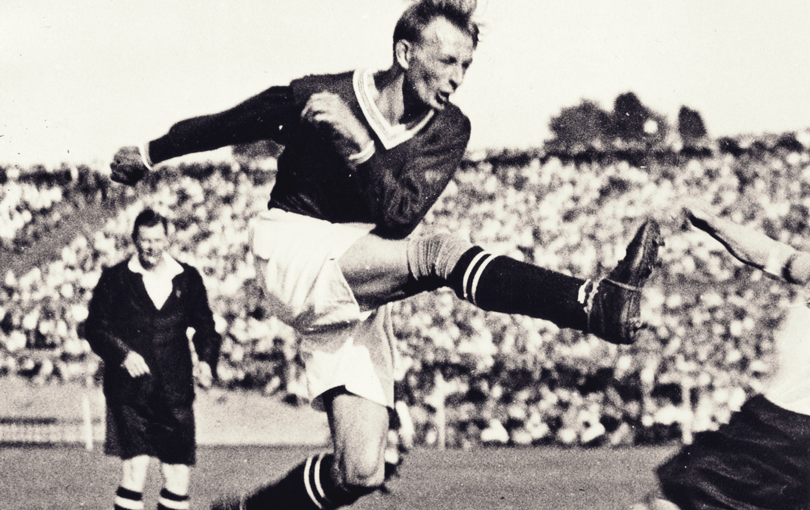
Austria's centre-forward for their Wunderteam which competed at the 1934 World Cup, Sindelar captained his nation as the side revolutionsed tactics with their fluid style of play and approach to the game. Renowned as a great dribbler, Sindelar also scored goals in abundance for both the national team and Austria Vienna, his club for 15 years.
When the Nazis annexed Austria in 1938 and absored them into Germany's national team, Sindelar refused to play for the newly formed side in 1939, citing his old age of 35 as the reason why he couldn't continue. Sindelar unfortunately died that same year.
27. Sergio Ramos
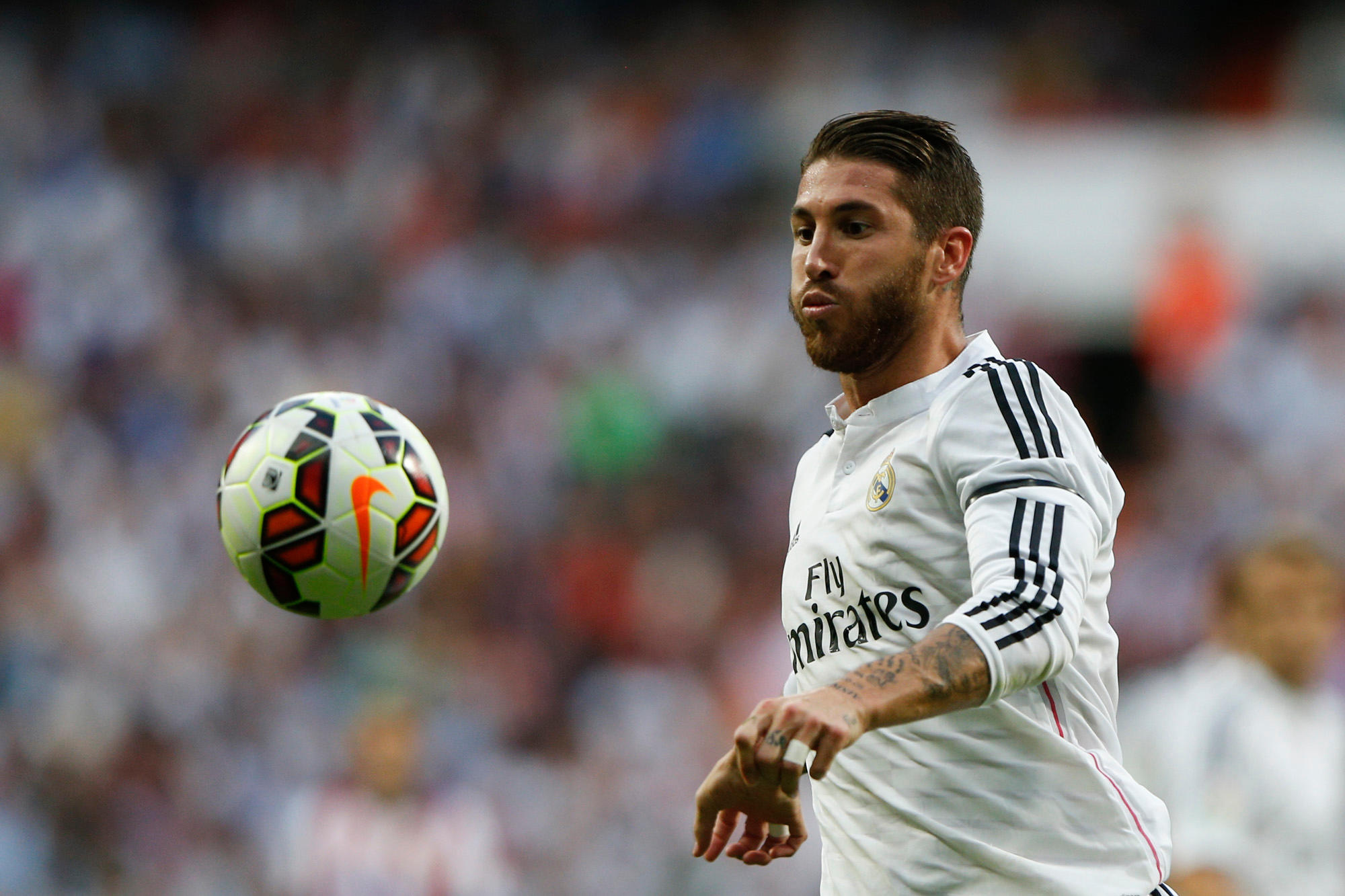
Where there's a will, there's a way. At least, that's the mantra FourFourTwo expects Sergio Ramos lives by, such was his tenacity and desire to defend and win when at the peak of his powers. His disciplinary record isn't the best, true, but that aggression shown when defending perhaps points to why Real Madrid and Spain were so successful with Ramos at the back.
Indeed, he formed a crucial figure of Real's four Champions League wins while at the club - he scored a last-minute equaliser against Atletico Madrid in the 2014 final - as well as Spain's domination on the international scene between 2008 and 2012. Plus, the Spaniard could step up and score a goal or two - he has more than 140 over the course of his 1,000-plus appearance career. Not too bad, at all.
26. Stanley Matthews
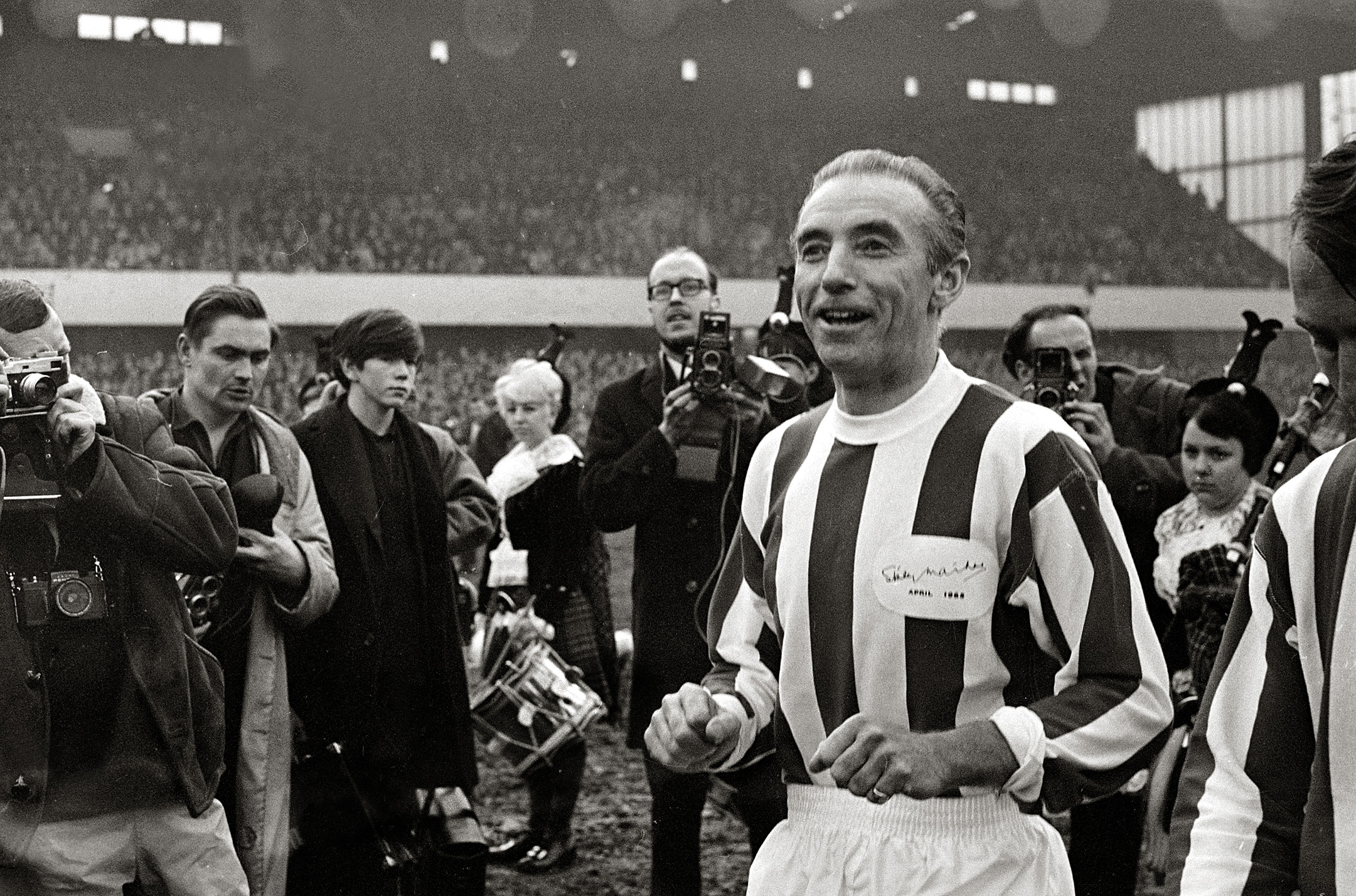
A pioneer of wing play, Matthews is widely regarded as one of the quickest, trickiest and best dribblers of his generation - especially impressive considering just how heavy the balls he had to content with during the period.
Not many players manage to stay at the top level for just 10 years of their career, and far fewer manage 20. Matthews? Well, he somehow eked out 32 years playing professional football for Stoke City and Blackpool - alongside two loan spells at Toronto City - winning a First Division title and even having a FA Cup final named after, such was his dominance in the 1953 final.
25. Raymond Kopa
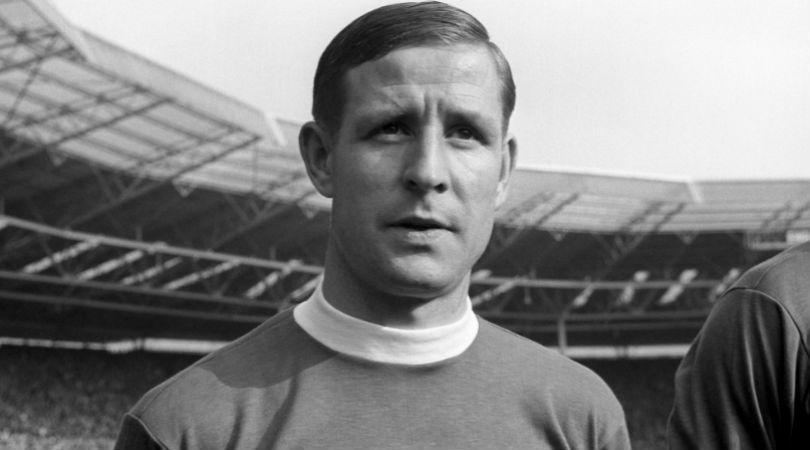
A playmaking forward who loved scoring, Kopa formed part of the legendary Real Madrid side that picked up five consecutive European Cups in the late 1950s. Though the Frenchma was only part of three of those victories, his influence on the team during 1958 earned him the Ballon d'Or award, with his performances deemed better than his considerably talented team-mates.
France Football's best young player in the calendar year is now named after Kopa, too, with Kylian Mbappe winning the first award at the same ceremony where the Ballon d'Or is handed out.
24. Sergio Busquets
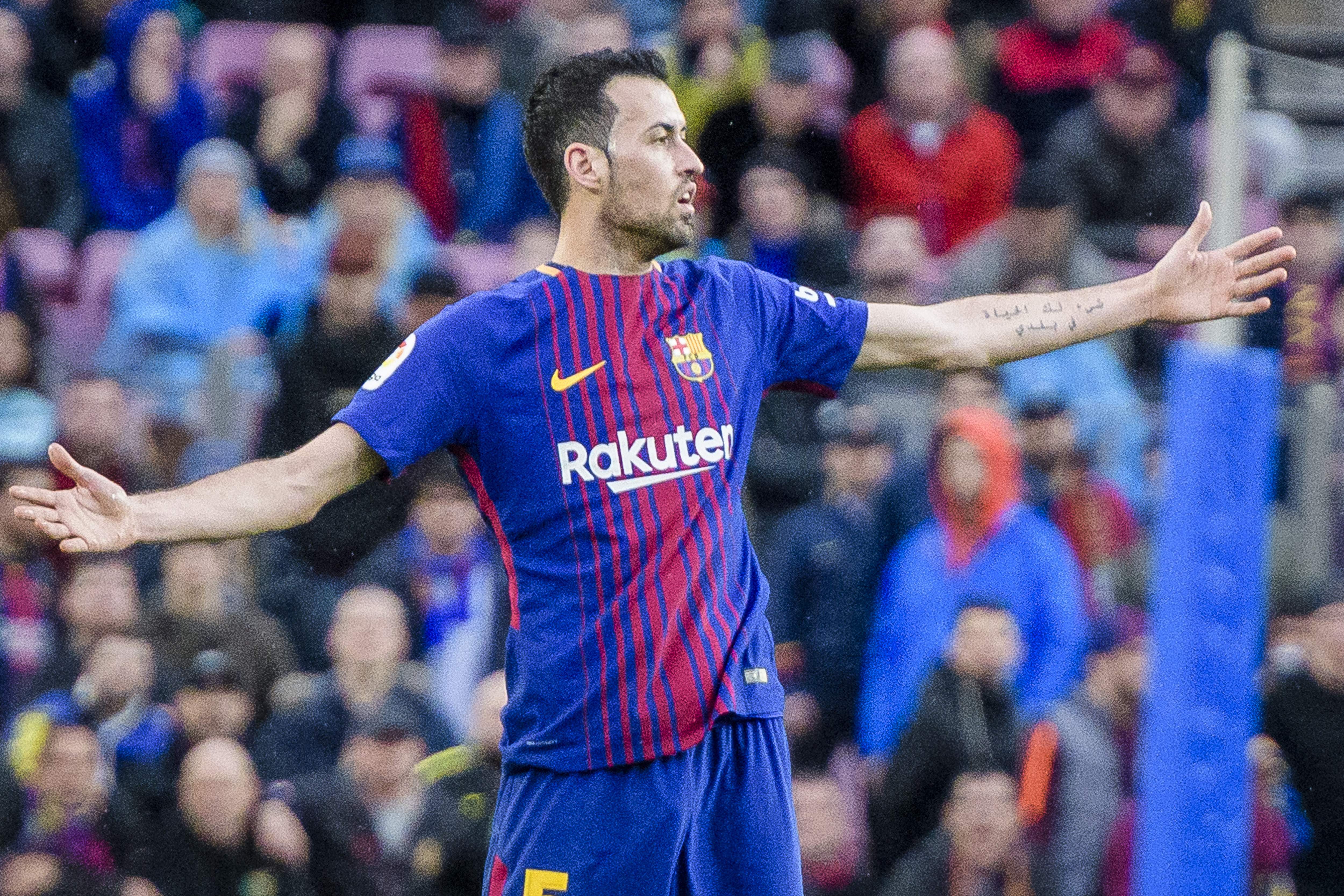
Busquets isn't particularly quick, nor is he that strong despite his size. No, Busquets' main attribute is his brain, his speed of thought far superior to any other player on the pitch. Surround the Spanish midfielder with four opponents in a tight area, and don't expect him to escape with relative ease.
Without Busquets, Barcelona might not have dominated quite as much as they did under Pep Guardiola. While Lionel Messi, Andres Iniesta and Xavi earned the plaudits, their facilitator slipped into the shadows. As Spain manager Vicente del Bosque gushed: "If you watch the whole game, you won't see Busquets - but watch Busquets, and you will see the whole game."
23. Manuel Neuer
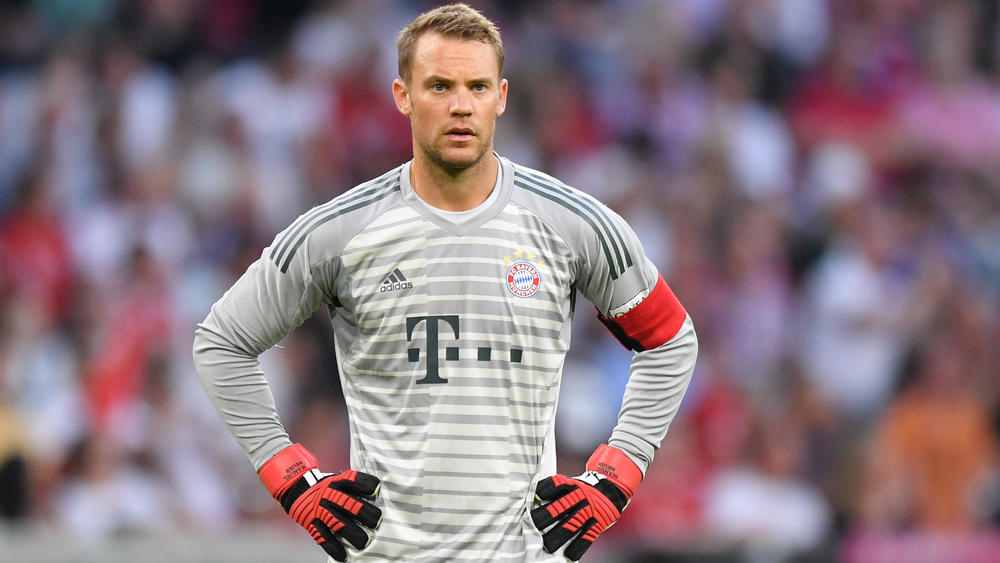
Positions on the pitch are often revolutionised, managers finding a new way to deploy their full-backs, rotate their wingers and find space for attacking midfielders. One position on the pitch that has stayed the same for eternity was at goalkeeper - that is, until Manuel Neuer came along.
The German's sweeping ability and technical proficiency has seen the position drastically change over the past decade, such is his influence on football. Neuer regularly rushed out of his goal to quell counter-attacks, while he regularly picked up positions high up the pitch to get on the ball and act as another option - scaring Bayern Munich fans in the process, not that he cared.
Neuer has earned plenty of individual accolades during his career, plus a ridiculous amount of silverware at club level. He also lifted the 2014 World Cup, too.
22. Roberto Baggio
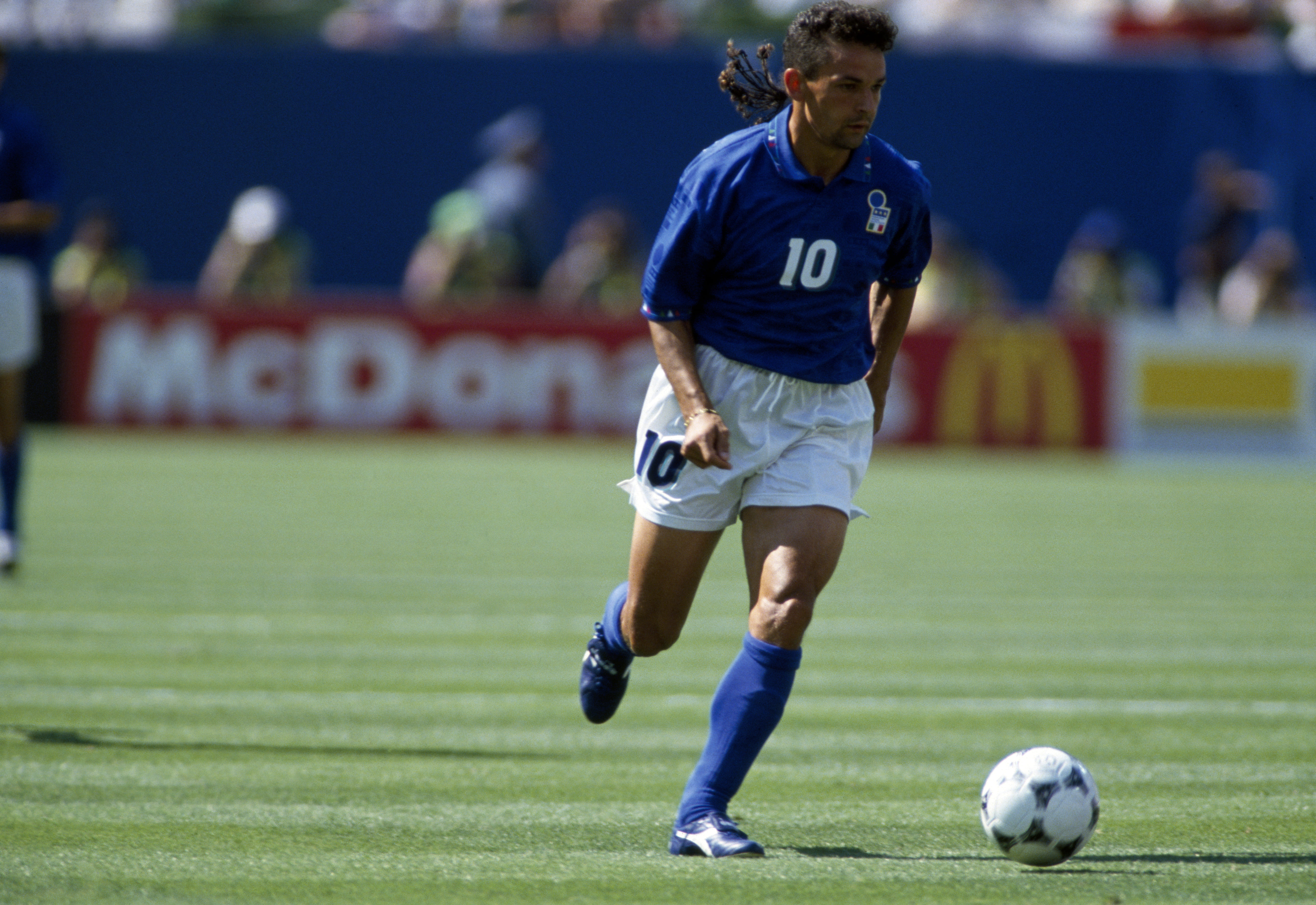
The Divine Ponytail. Once you saw that scraggly bit of hair falling on the back of an Italy shirt, you invariably knew a goal was imminent. An offensive player who was comfortable operating anywhere in the final third, Baggio loved to create, finding passes that nobody else on the pitch could spot, let alone could execute.
Baggio took up dangerous positions at all times during games, so if he wasn't assisting then best belive he was scoring: over 300 goals during his career highlights his prolific ability. Many watchers of the Italian genius idiolise Baggio, with his style now replicated on a consistent basis across Europe by some of the best attacking midfielders.
21. Wayne Rooney
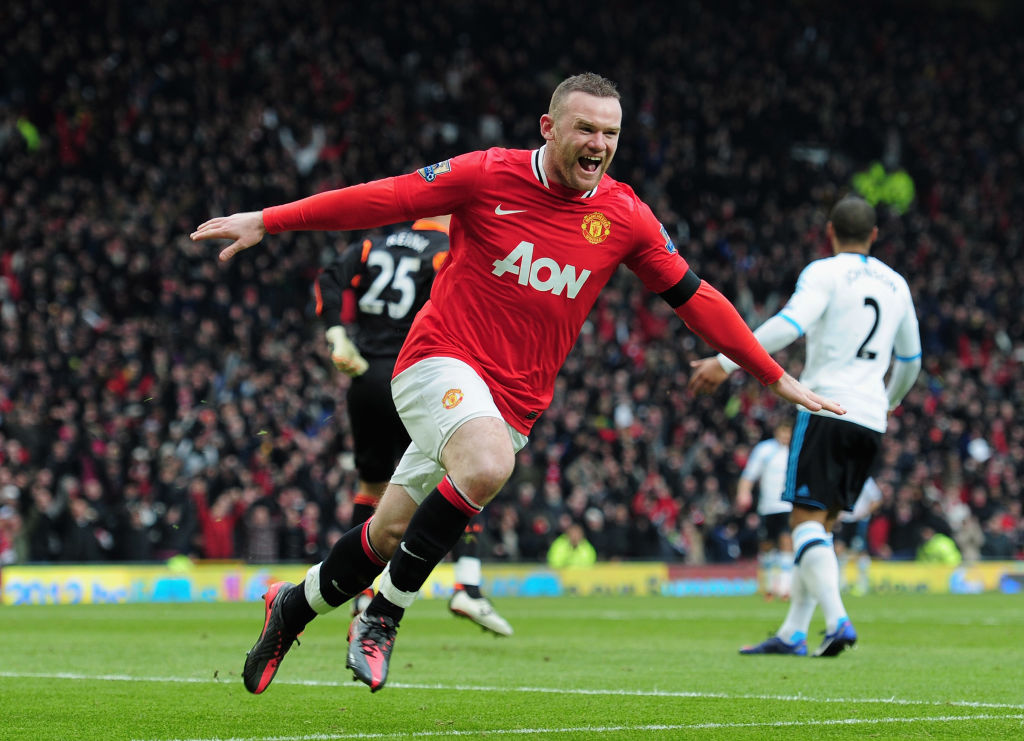
Determination. Hunger. Power. Wayne Rooney played his entire career like he was on the school playground, embarrasing defenders with his sheer strength, unappreciated balletic footwork and his thunderous shooting ability. Get the Englishman angry in his early career, and best believe a goal net is getting blasted a la Newcastle United in 2004.
Manchester United's record goalscorer was so much more than that, though. Rooney could lay a 60-yard pass on a sixpence, sprint past opponents with his underrated speed, and defend like his life depended on it.
While he ended his career at the top earlier than many would have preferred, the fact he burst onto the scene at just 16 and produced one of the Premier League's greatest moments for Everton against Arsenal perhaps highlights the unbelievable moments Rooney could produce on a regular and consistent basis.
20. Ruud Gullit
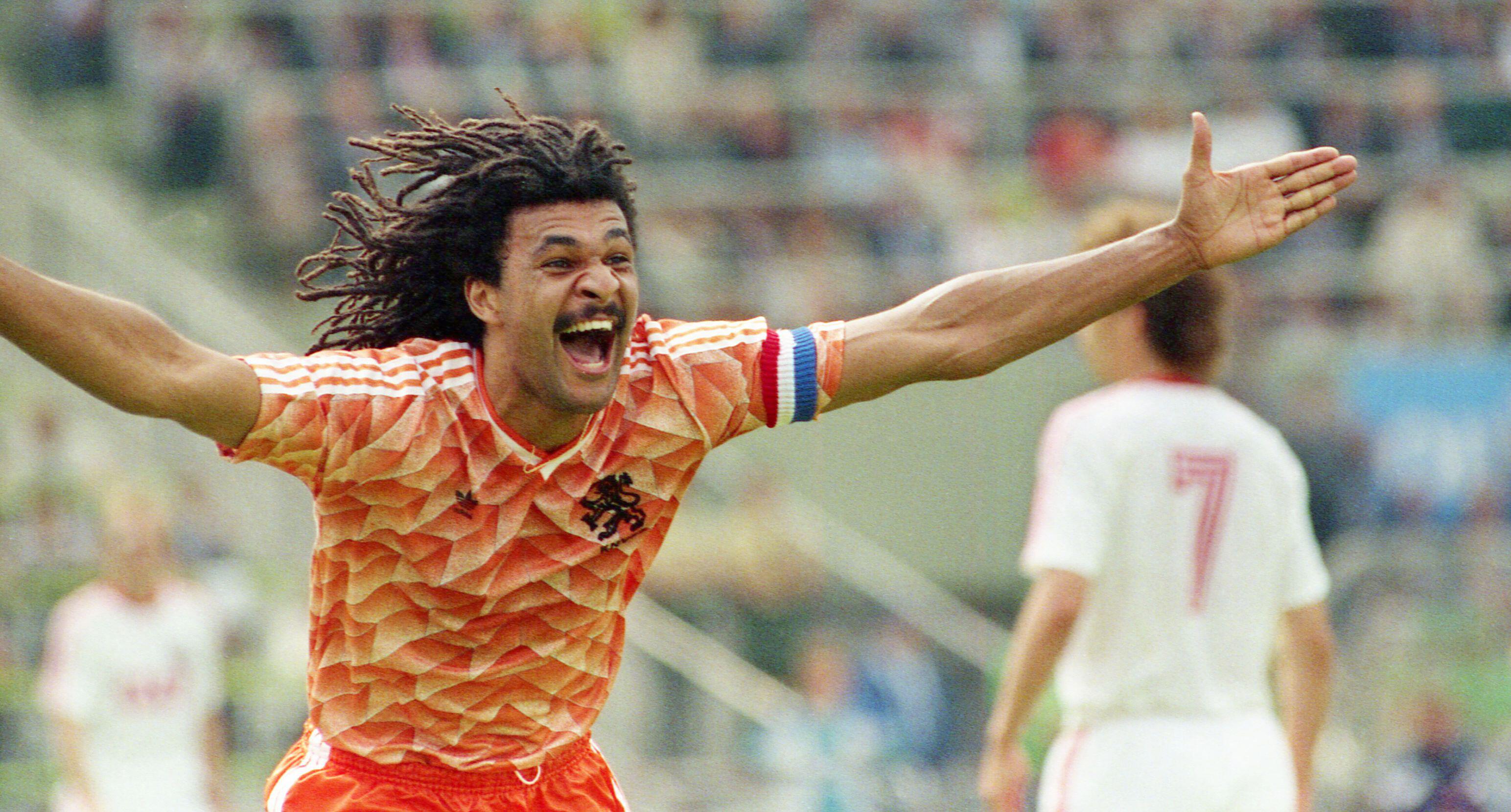
The most-prominent of the Dutch trio that graced AC Milan in the late 1980s to such great effect, Gullit was one of the most versatile footballers in history, playing across a range of different positions throughout his career, all the while without any diminishment in his qualities.
Strong, powerful, comfortable on the ball, tactically adept and elegant with everything he did, Gullit could do it all. A 1987 Ballon d'Or and scoring the opening goal of the 1988 Euros final, which the Netherlands ended up winning, are highlights from an esteemed career.
19. Lev Yashin
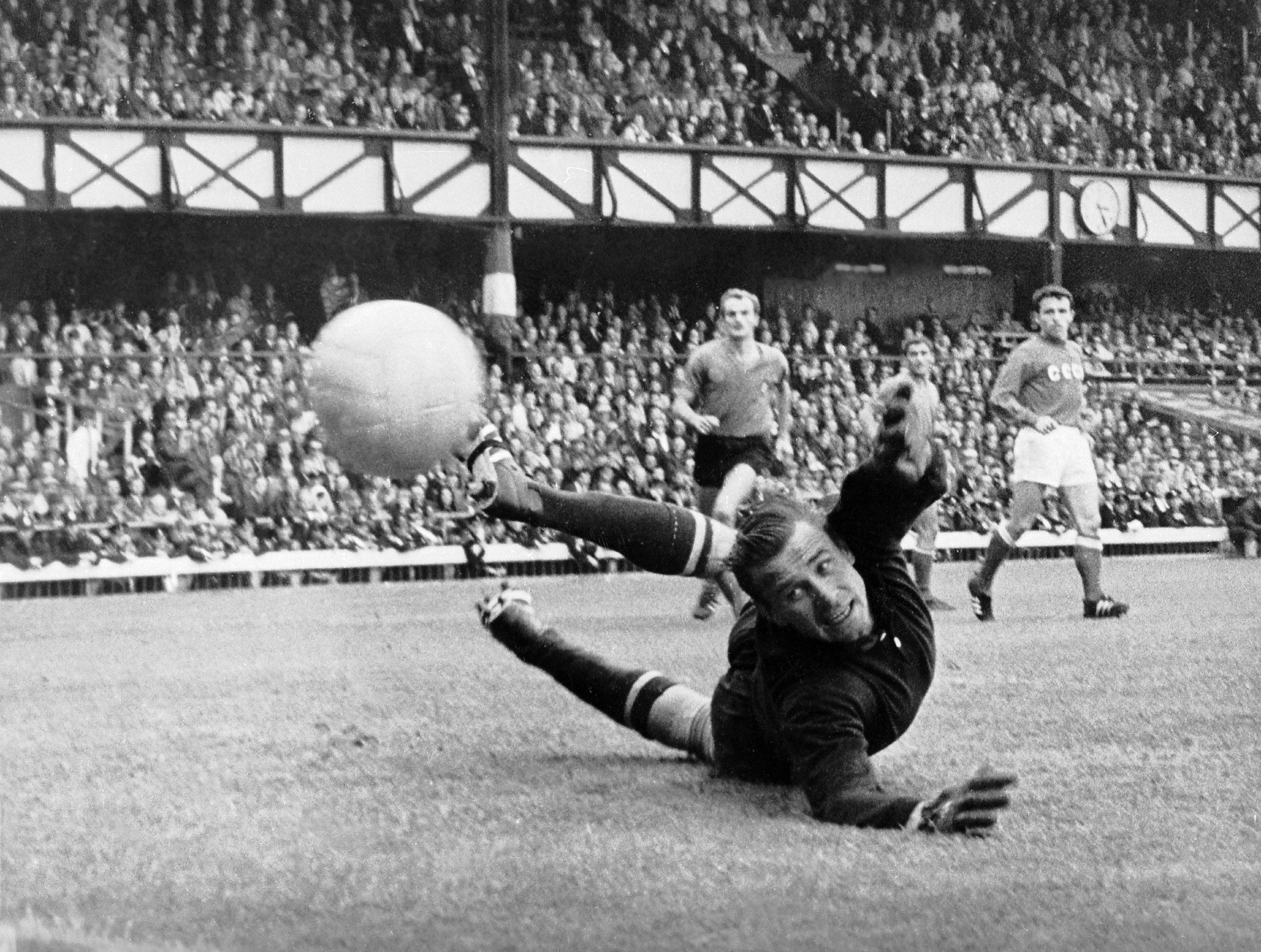
The Black Spider was a feared goalkeeper strikers often found impossible to score past, helping him become FourFourTwo's best ever European goalkeeper. Not only a physically imposing goalkeeper, Yashin would also make his voice heard to his defenders with a booming voice, directing them into position.
The Russian also changed the role of goalkeeping. Originally, keepers would stick to their goal lines, but Yashin didn't hesitate to claim crosses, close down approaching attackers and make his presence in goal known. FIFA also credits him with having saved over 150 penalties. Mental.
18. Luka Modric
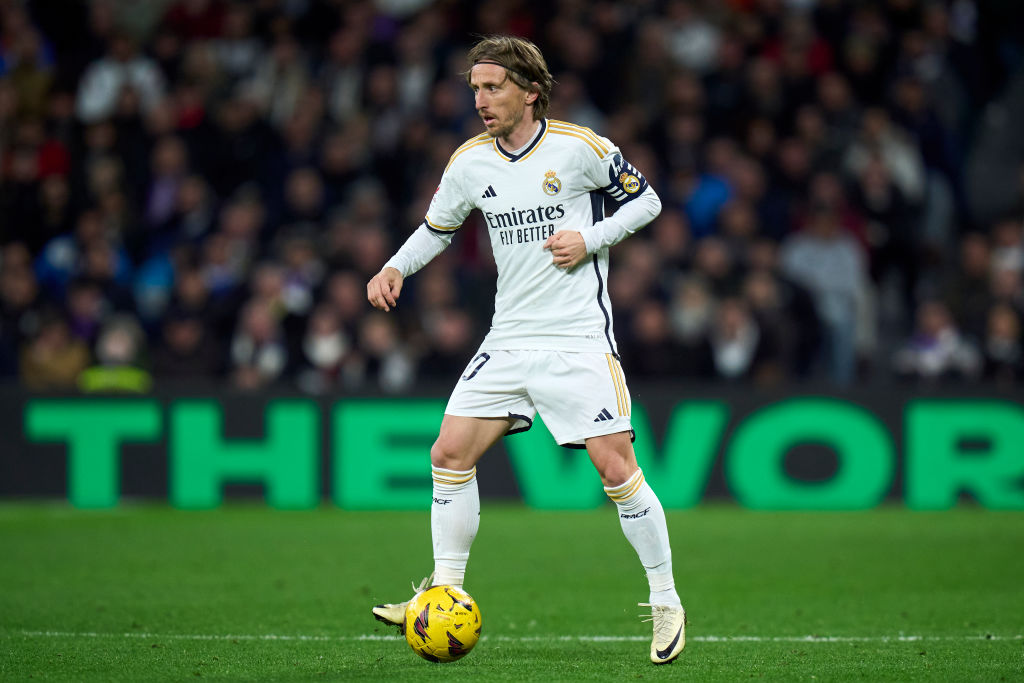
The diminutive midfielder is one of the most technically gifted players in history. Modric can glide past opponents with such ease that it's almost like they're not their, while his passing range knows no boundaries. He's also become the master of the trivela, scoring and assisting expert goals by using the outside of his foot.
Dragging Croatia to the 2018 World Cup final and semis in 2022, Modric's style proved imperative for his nation on both occasions, though most notably in 2018: he won the Golden Ball and Ballon d'Or off the back of his performances. Five Champions League medals with Real Madrid is remarkable, too.
17. Franco Baresi

Italian defences of Baresi's era were famed for keeping clean sheet after clean sheet, shutting out attackers by keeping strong and resolute. Baresi epitomised this quality, though - all while standing at a relatively lowly 5"9. He captained AC Milan for 15 of his 20 years at the club, with his speed of thought and reading of the game ensuring he made up for his lack of physicality at centre-back.
Bringing the ball out from the back didn't prove a problem for the Italian, either, while he has a staggering honours list: a World Cup, three European Cups and six Serie A titles, among plenty of other individual accolades.
16. Lothar Matthaus
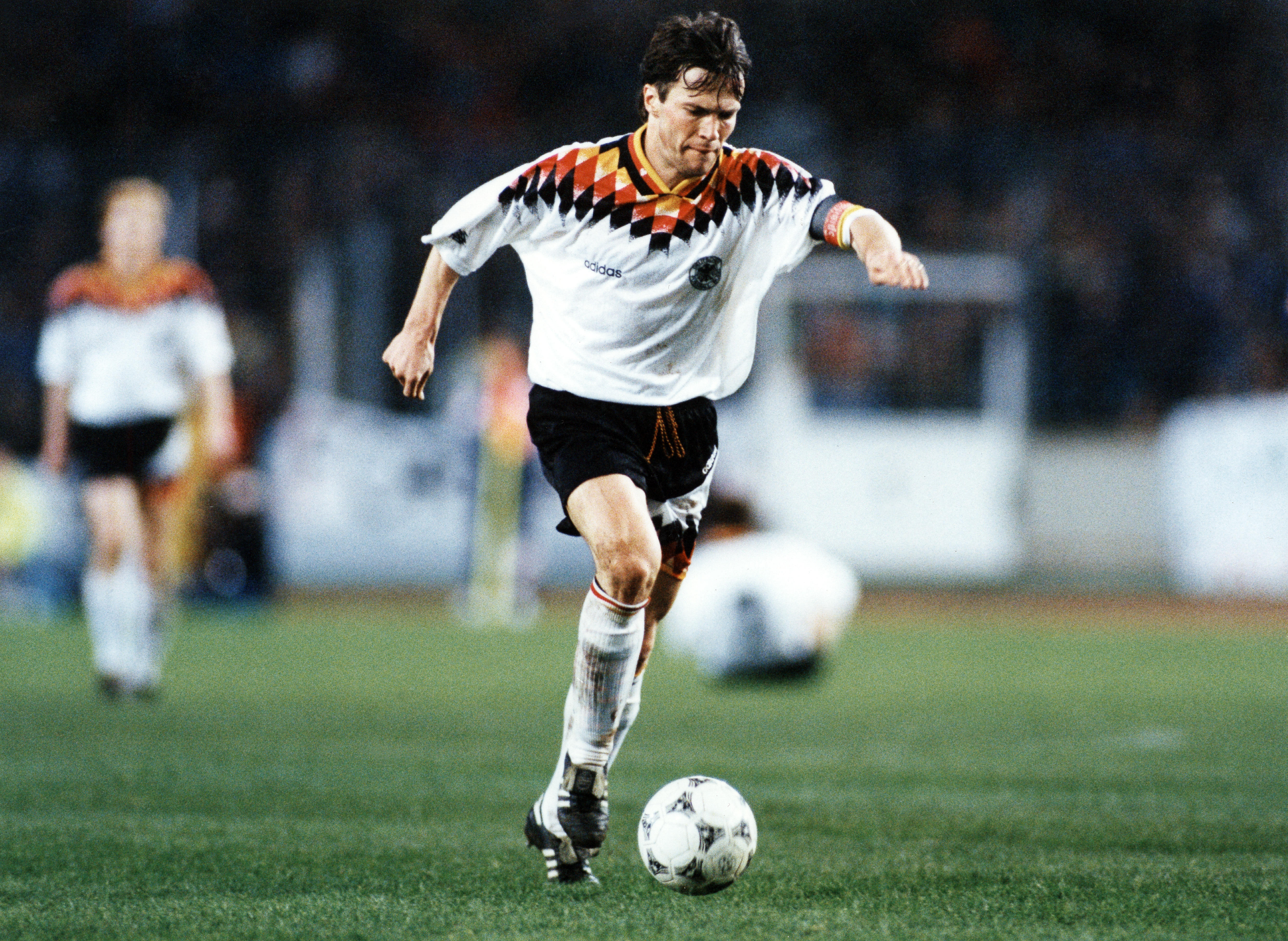
The first outfielder to appear at five World Cups, Matthaus is regarded as the greatest German footballer in history. Versatile and complete, Matthaus possessed every ability a midfielder needed to be great: on top of his vision and range of passing, he also had a great goalscoring ability and leadership skills.
Following lifting the 1990 World Cup, a decade after winning the European Championships as a teenager, with West Germany, Matthaus was awarded the Ballon d'Or that same year.
To put his quality into perspective, Diego Maradona's statement sums up all you need to know: "He is the best rival I've ever had. I guess that's enough to define him".
15. Thierry Henry
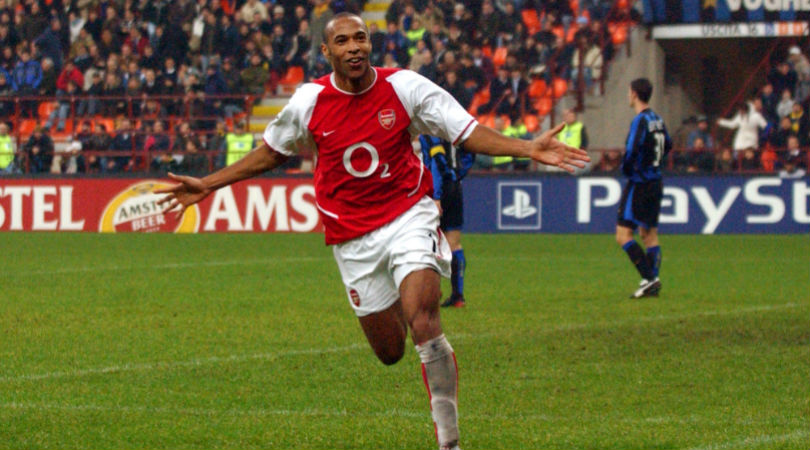
Va Va Voom. Thierry Henry was the epitome of speed. The epitome of calmness. The epitome of unstoppable. Stick the Frenchman in that left channel, play a half-decent pass into the space or even to his feet, and let the devastation commence. Henry could dribble round opponents with such ease and flamboyance, and finish with such composure that it seemed effortless.
Our choice as the greatest-ever Premier League player in 2021, we stated: "No one assisted more in a season. No one has terrorised defenders with such a combination of bewitching grace and phenomenal power." Quite.
14. George Best

“I was the one who took football off the back pages and put it on to page one,” was how Best reflected on his career. Best had enough star quality to dominate both, being active both on and off the pitch. Off it, he was a notorious womaniser, on it, there could potentially have been no one better if it weren't for his extra-cirricular activities.
Fleet-footed, graceful, well-balanced and quick, Best would often embarass defenders with his skill, before turning around and doing it all over again. A key figure in the Manchester United 1968 Euorpean Cup-winning side, Best formed part of United's ‘Holy Trinity’ (Bobby Charlton and Denis Law), winning the Ballon d'Or in the same year at the age of 22. His dribble and finish in the final against Benfica just about sums up the genius of the Northern Irishman.
13. Marco van Basten

While many still celebrate the brilliant achievements of Van Basten, not least the unbelievable, iconic volley scored in the 1988 European Championship final, it's still a massive shame that the Dutchman didn't get many more years to display his inordinate talent. Serious injury meant he played his final professional game at just 28-years-old, creating a huge sense of regret over the years supporters were devoid of his talent.
Arguably the most-complete striker in history, Van Basten could score all manner of goals, possessed superior attacking intelligence than many of his contemporaries, and could spring away from his opponents with great movement and speed.
Part of the famous Dutch triumvirate at AC Milan, Van Basten stood above everyone else. Three Ballon d'Ors, two European Cups and 14 domestic trophies could have been so much more if not for some ill-fortune.
12. Eusebio
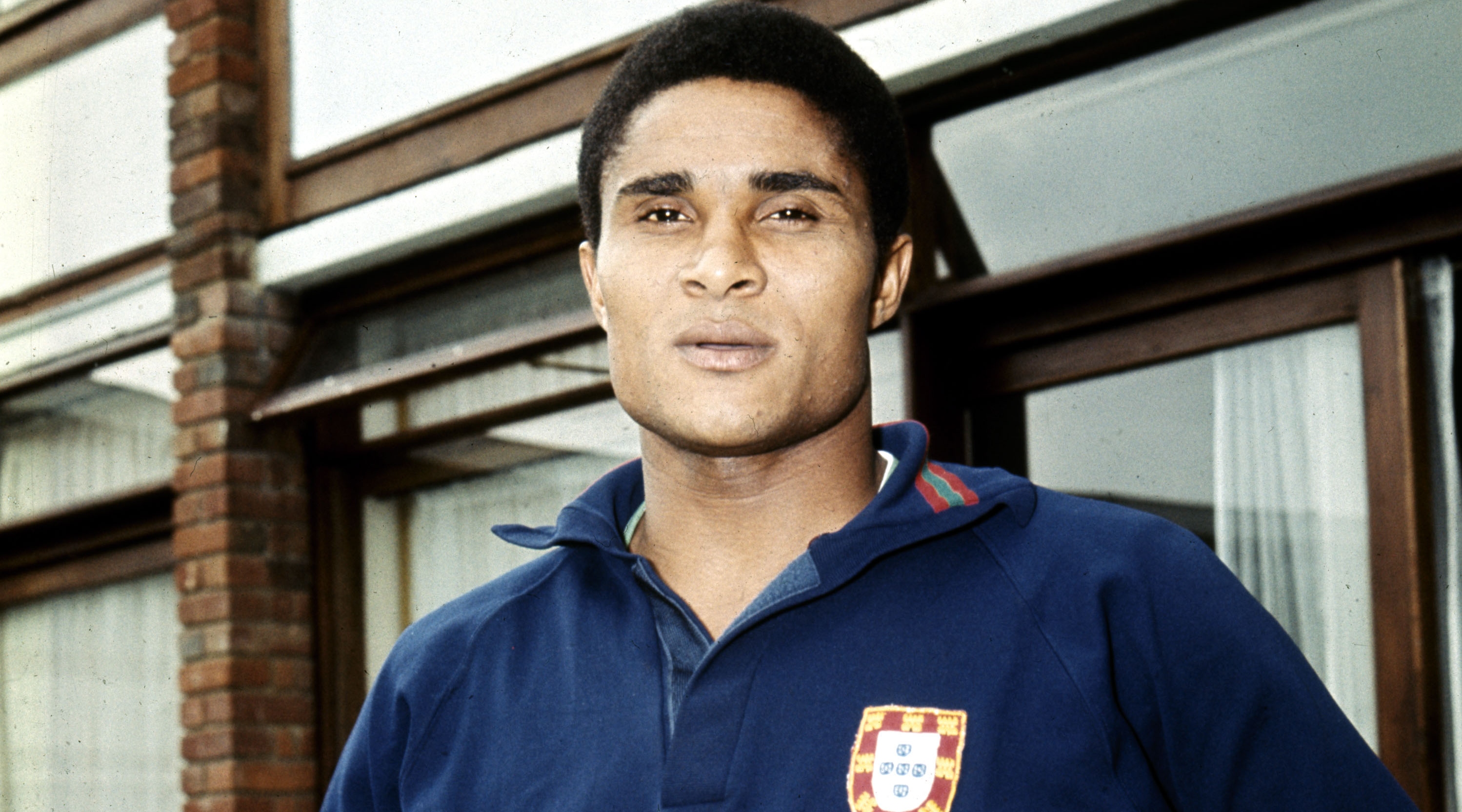
Unanimously regarded as the first great footballer of African birth, Eusebio left his native Mozambique in 1960 to join Benfica. He immediately earned a Portugal national team call up after being thrust straight into The Eagles first team at the age of 19 - four years later, he won the Ballon d'Or for his dominant performances.
Indeed, a 15-year career at Benfica saw Euesbio average a record better than a goal-per-game, with the striker scoring 473 times in 440 appearances. Known for his near-perfect blend of speed and technical ability, Euesbio was feared by defenders and, without him, Portugal likely would have failed to finish third at the 1966 World Cup, such was his influence on the side.
11. Ferenc Puskas
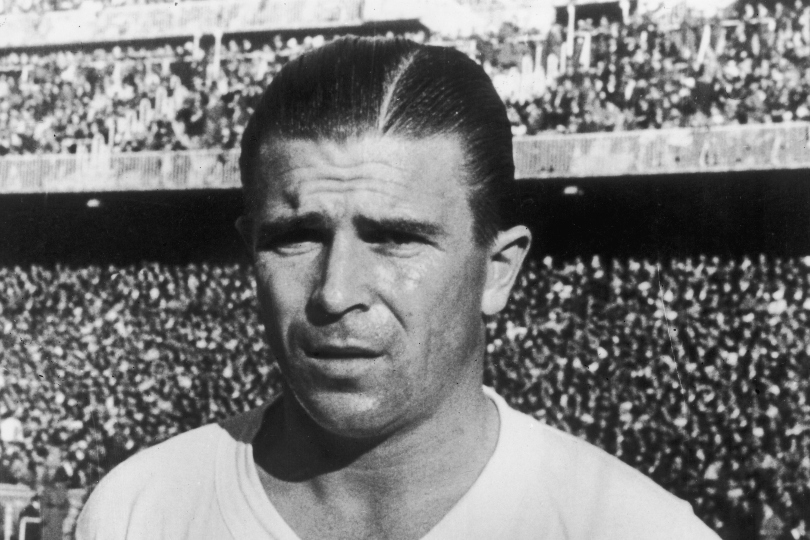
A prominent member of The Mighty Magyars side that just missed out on World Cup glory in 1954, Puskas helped Hungary batter England 6-3 at Wembley in 1953, which was later named the Match of the Century. At international level he managed a remarkable 84 goals in 85 games - perhaps even more remarkably, Puskas bagged 624 times in 629 club appearances across his time at Budapest Honved and Real Madrid.
After the Hungarian revolution in 1956, the prolific goalscorer decided to leave for Real Madrid. A UEFA ban meant it took him a further two years to turn out for Los Blancos, but once he did, he showed no sign of relenting. He picked up three European Cups in his time at the club, scoring seven goals in the first two finals.
Spain eventually became Puskas' second nation, with the striker even appearing for them at the 1962 World Cup, though to little avail.
10. Michel Platini
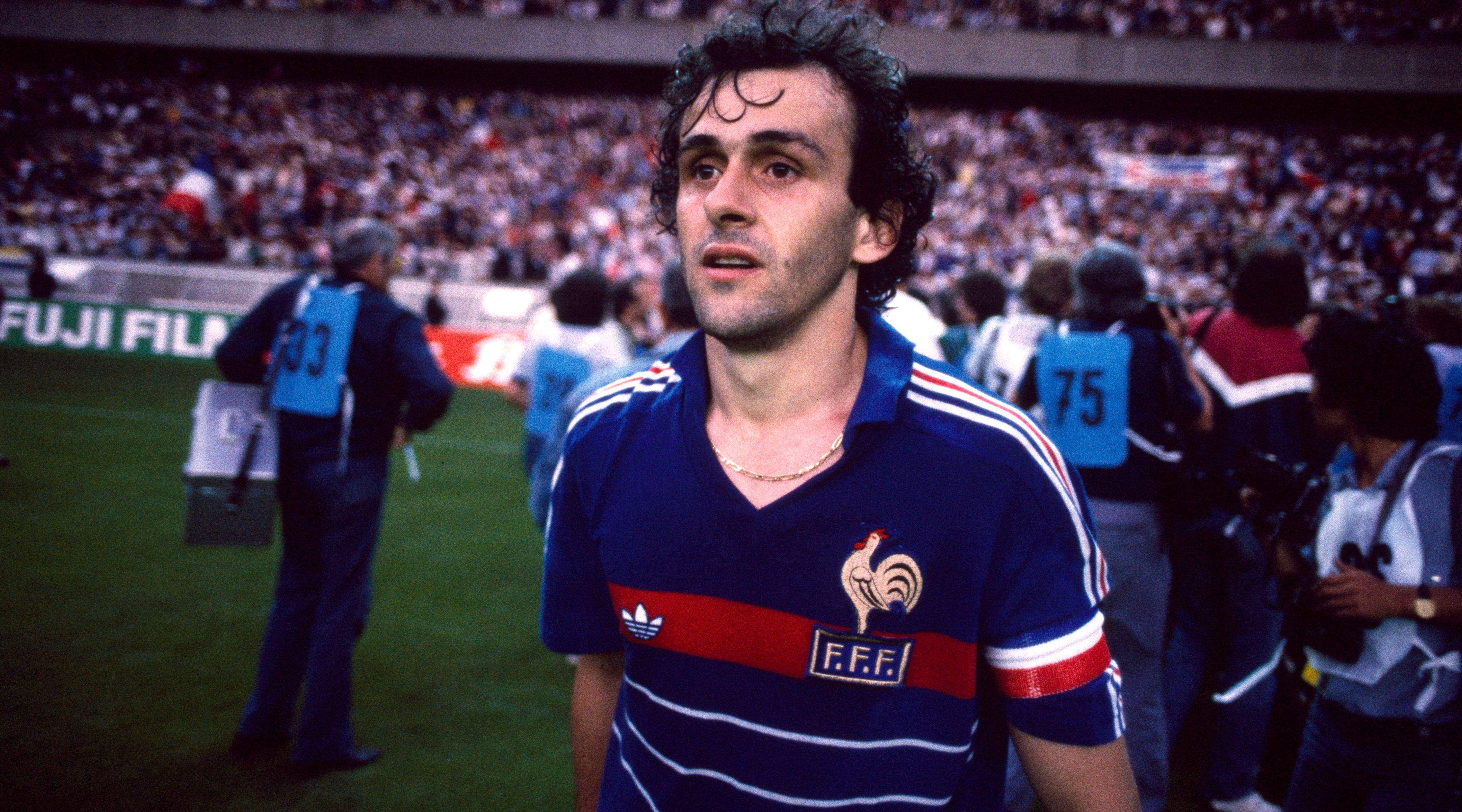
While Platini had a phenomenal club career that yielded a European Cup and multiple league titles across his spells at Nancy, St Etienne and Juventus, it is the Frenchman's exploits on the international stage where his legacy truly lies.
An offensive midfielder who relied on his technique and skill rather than any physical attributes, Platini's crowning moment came in 1984 when he led France to the Euros trophy with nine goals in five matches. With two hat-tricks in the group stages, he then decided the final against Spain with a pin-point free-kick to land France their first-ever major international honour, in what is arguably the the greatest-ever individual performance at an international tournament.
His three consecutive Ballon d'Or trophies between 1983 and 1985 epitomise the impact he had on football at the time - it just seems a massive shame that he retired in 1986 at the age of just 32. A premature decision for someone so revered.
9. Xavi
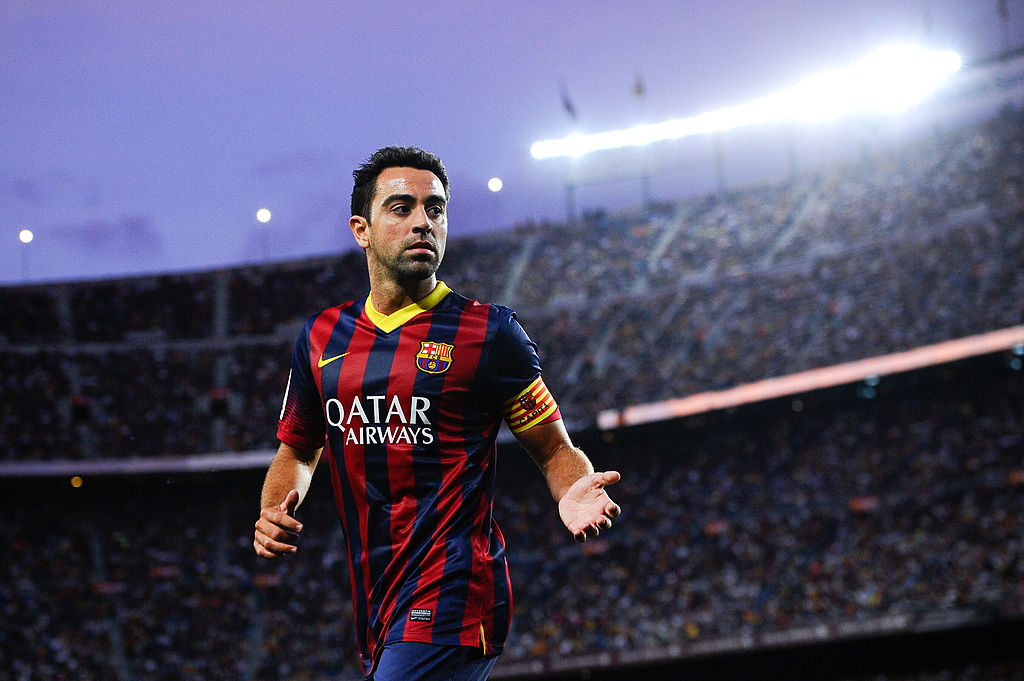
The heartbeat of the greatest club side to have ever been assembled, without Xavi it's not a stretch to suggest Barcelona would have enjoyed quite the same success between 2008 and 2012. Same goes for the Spain side that managed two Euros victories either side of a World Cup win in the same period, too.
With a tactical brain that is now being put to use as a manager, Xavi kept things ticking in midfield throughout the game, dictating the tempo through his passing speed and accuracy, effectively telling his team-mates what they should do next with the ball.
While he's sometimes overlooked for his team-mates, he's also one of just three players to have made the Ballon d’Or top three on at least three occasions, while the Spaniard has also amassed over 1,000 career appearances, too.
8. Paolo Maldini
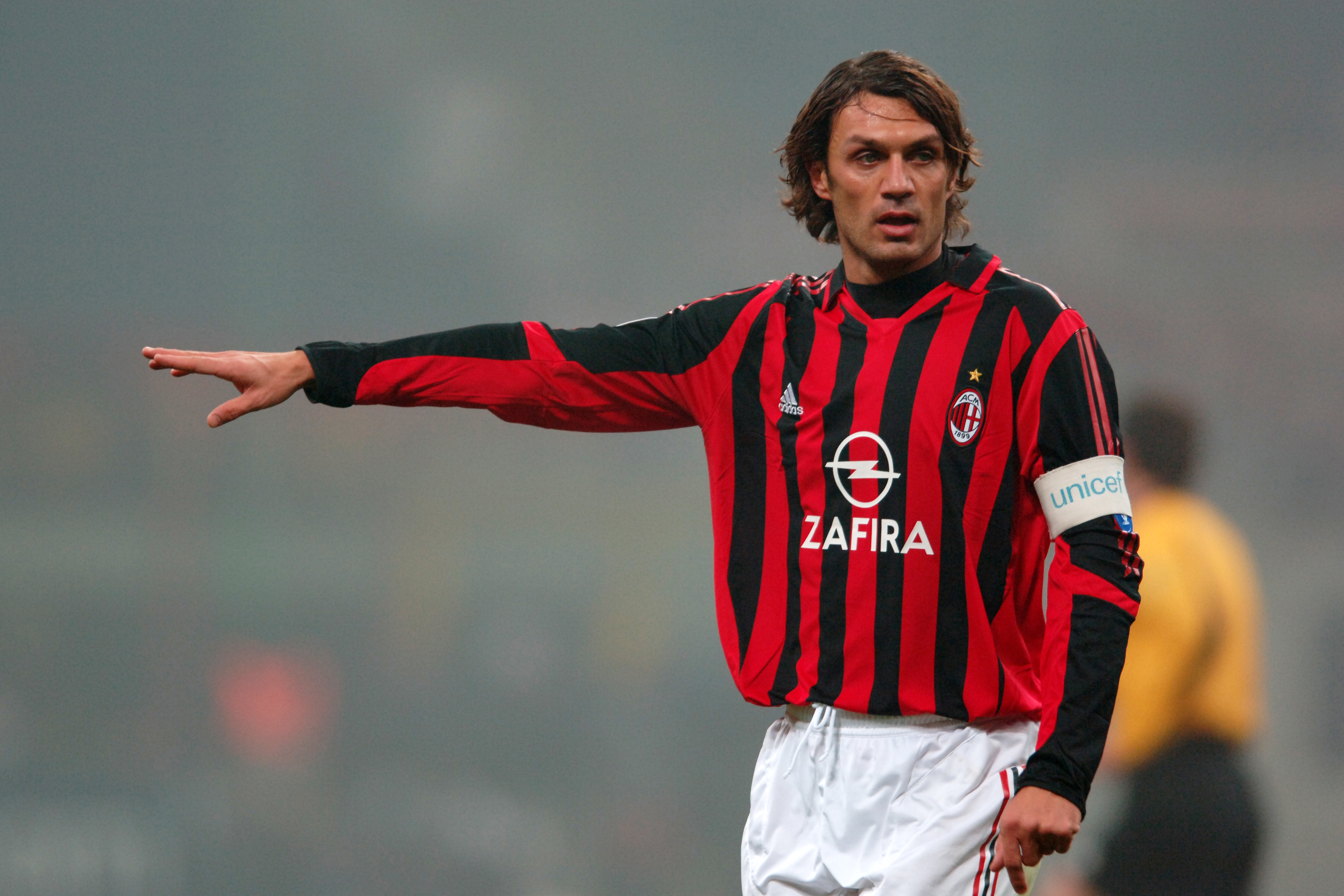
Any player that manages 1,028 appearances for club and country across a 25-year career deserves all of the admiration, respect and honour that is thrown their way, but for Maldini to have spent every single season at a preeminent force like AC Milan is truly staggering. Additionally, he was a right-footer often playing at left-back - highlighting his immense ability.
In his early years, Maldini would get forward and join attacks thanks to his endless energy and superior technical ability. In the latter stages, he would rely on his experience, tactical nous and reading of the game to ensure the defence would remain difficult to break down.
The Italian has won every trophy he could've at club level, and came close to both World Cup and Euros glory by reaching three different finals across his career, though that's clearly not a slight on the defender's great legacy. It's difficult to look past the defence he was a part of during the 1987/88 Serie A season in which Milan only conceded 14 goals, too.
7. Gerd Muller
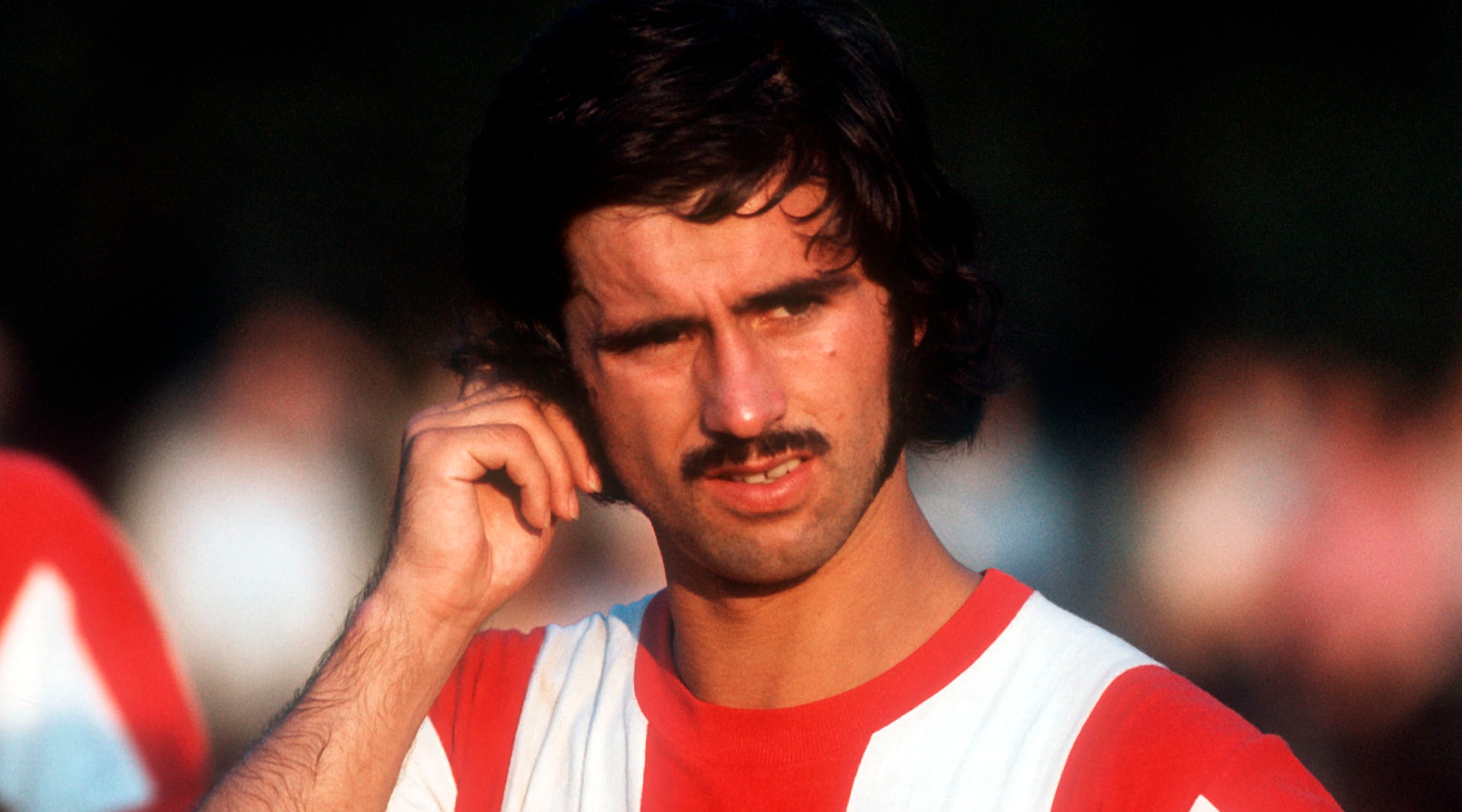
When it comes to pure finishers, Gerd Muller tops the absolute lot. The original No.9, Muller was a penalty box predator who hit the back of the net on such regular occasion that he quickly earned the moniker, Der Bomber.
Between 1964 and 1979, the German struck 565 goals in just 607 games for Bayern Munich, a phenomenal feat during a period when defences were a lot more resolute and goals were much harder to come by in the Bundesliga. Perhaps more impressive, though, is his exploits on the international stage - in 62 games for West Germany, Muller scored a staggering 68 times, including eight hat-tricks.
His acceleration over the first couple of yards meant he latched onto any loose balls around the goal area, while he had the ability to outjump his markers, too. He ended his career with a World Cup, European Championship, three European Cups, a Ballon d'Or and countless other domestic honours at Bayern Munich. Not bad for someone not deemed conventional to play as a professional footballer.
6. Bobby Charlton
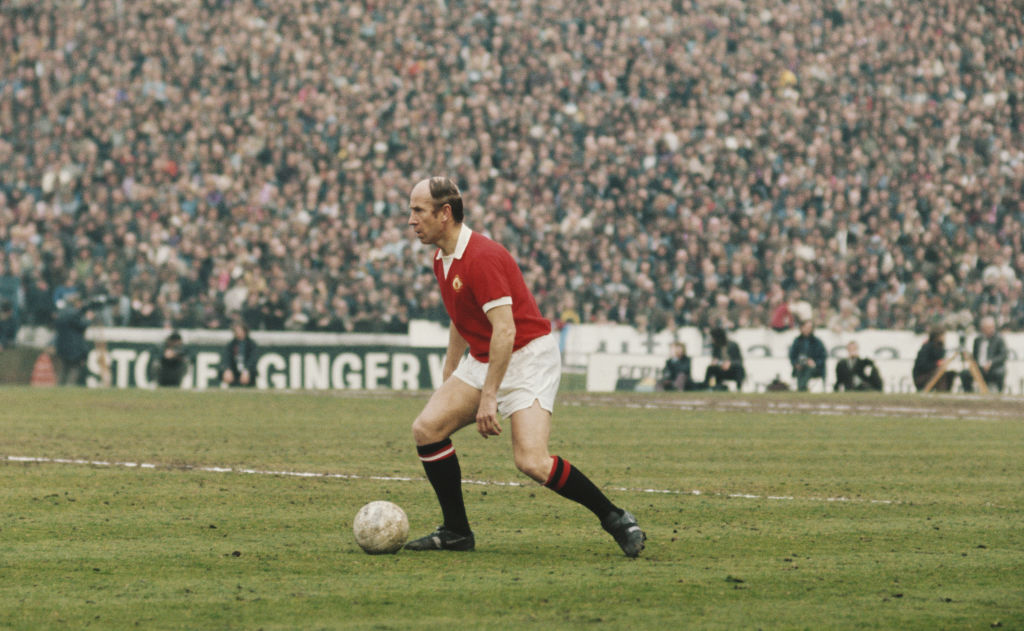
England's greatest-ever player, Charlton had a career that took him from the depths of despair to the peaks of jubilation. A member of the Busby Babes, Charlton understandably struggled to focus on his football following the 1958 Munich air crash, though he ultimately rediscovered his confidence in the mid-60s to great effect.
After lifting the 1966 World Cup on home soil at Wembley, the Manchester United forward helped his club win the European Cup at the same stadium a couple of years later. His emotion following the game were of both joy and sadness, with the Englishman reminiscing on the memory of his team-mates from a decade beforehand.
As a player, Charlton's ability to absolutely thwack a ball became infamous, too. He would cannon shots at hapless goalkeepers on a regular basis with either foot, while he could dribble effortlessly around opposition defenders. Bear in mind, too, that Charlton's era saw leather balls in use - just imagine what the great man could have achieved with a Jabulani. Actually, we daren't not...
5. Andres Iniesta
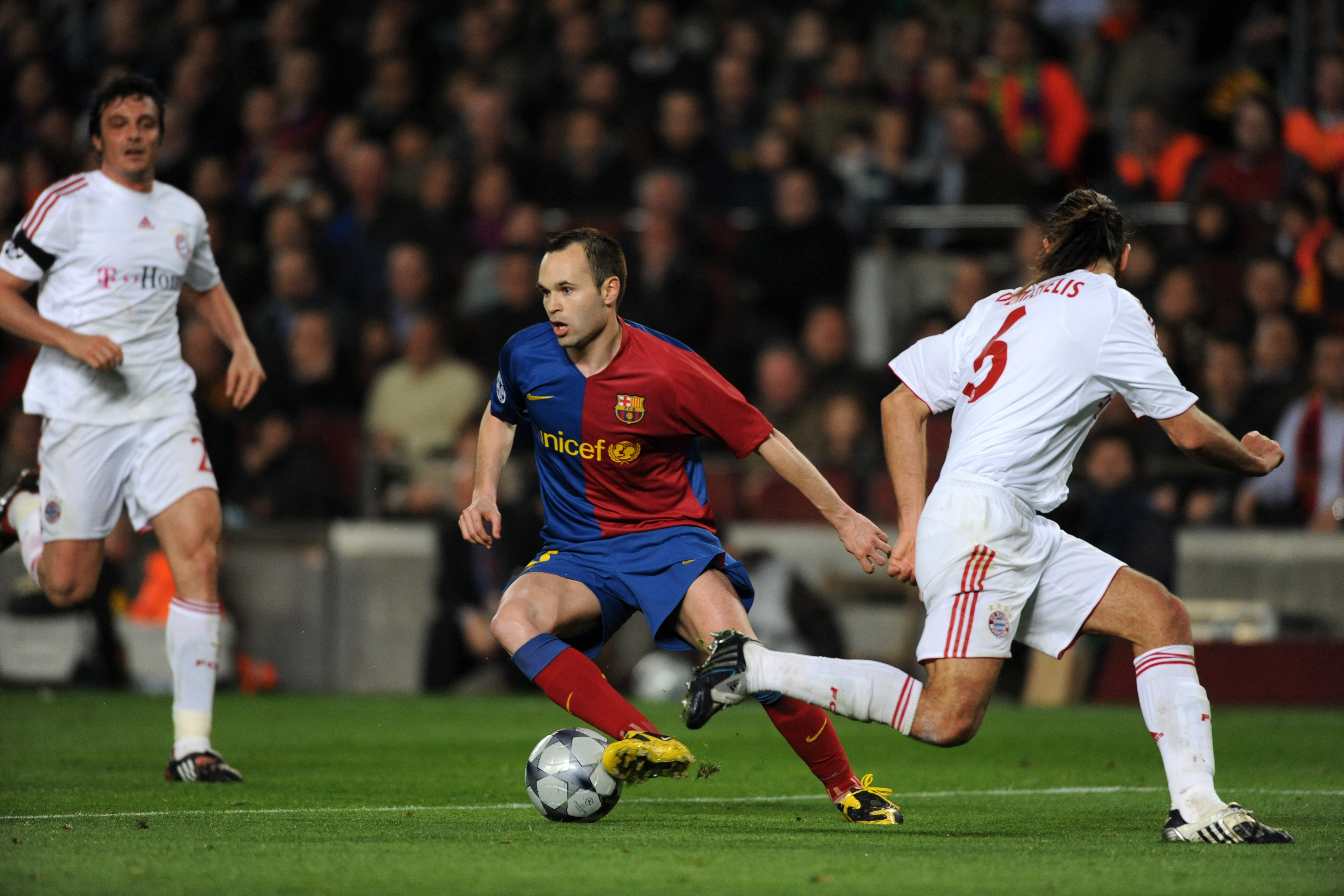
It might seem somewhat harsh on Xavi that his midfield partner Andres Iniesta has sneaked a few positions higher on this list, but the latter just had a little extra to his game which truly elevates his status.
Having come through Barcelona's La Masia academy, it's a given that Iniesta's passing ability and close control is exceptional, while his tactical brain ensured he always stayed multiple steps ahead of the opposition.
What isn't a given, so much, is Iniesta's propensity to pop up with the occasional screamer or crucial goal at a crucial time in a game. His finishes against the Netherlands in the 2010 World Cup final and versus Chelsea in the second leg of Barcelona's semi-final of the Champions League in 2009 highlight that.
In fact, Iniesta was a versatile playmaker lauded for his balance, ball control and agility in close spaces, combined with his skill, composure, and flair on the ball. Managers utilised the diminutive midfielder across a number of attacking positions in his early career, such was his ingenuity higher up the pitch, before finally settling into that famous midfield three at Barca.
With a low centre of gravity, Iniesta was also deceivingly quick over five yards, helping him skip past opponents before invariably delivering a killer through ball. Sure, having Lionel Messi ahead of him, Xavi to his side and Sergio Busquets behind helped, but Iniesta was the conduit to help transition the ball into the final third.
Plus, Iniesta is the only footballer in history to win the man of the match award in a World Cup final, a European Championship final, and a Champions League final. In essence, this truly sums up the quality of the footballer.
4. Zinedine Zidane
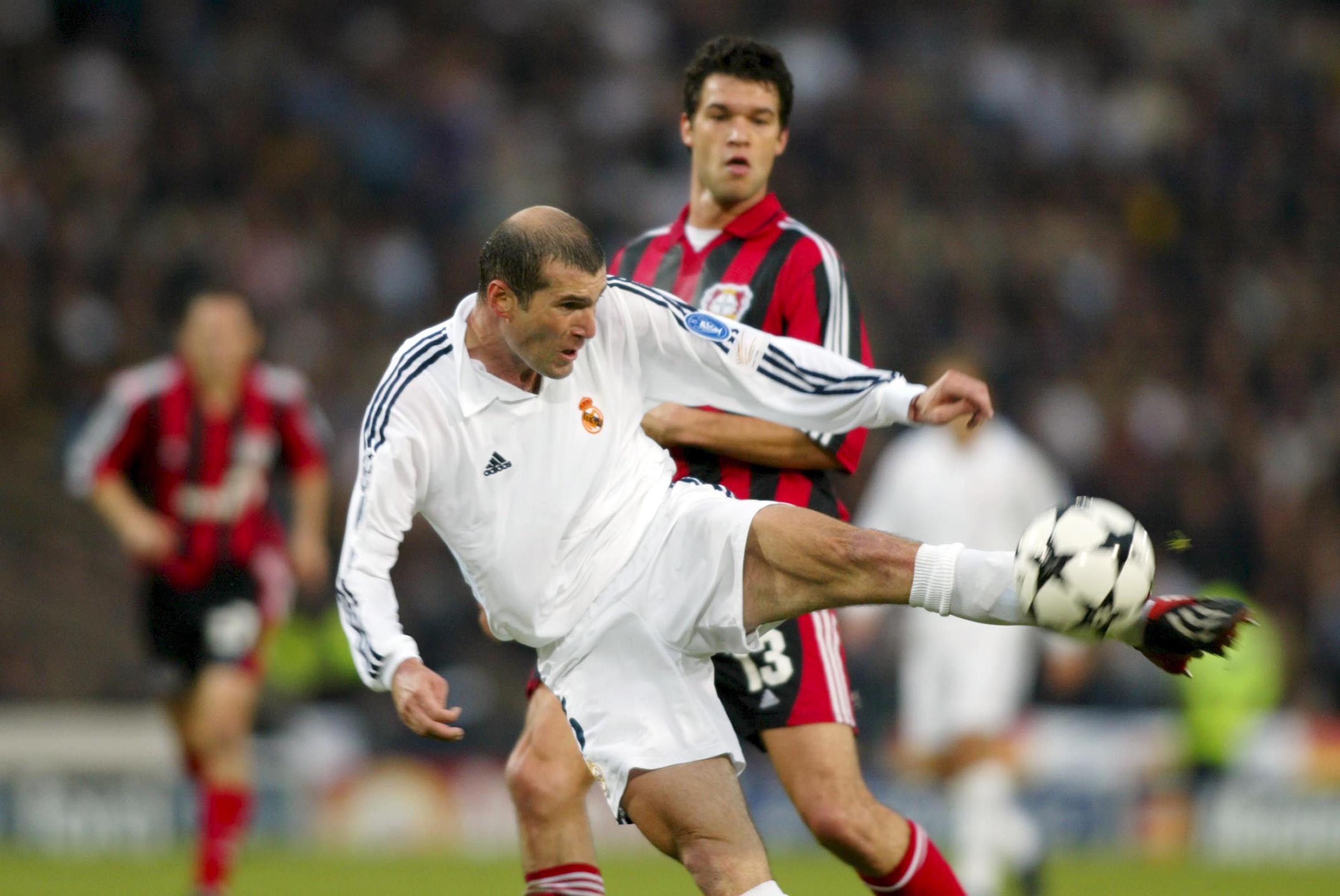
Ah, Zizou. It seems hard to believe a man so tall and rangy could be so balletic and graceful while on the football pitch. The Frenchman possessed the deftness of touch any great playmaker needs, the strength to shrug off opponents with ease, and the technique to deliver killer passes and devastating finishes.
Renowned for his signature double drag-back skill, Zidane would mercilessly embarass defenders with such ease it seemed difficult to tell whether or not he was actually trying. Step overs were sharp, his ball control elite, and his brain seeing things on a football pitch that others couldn't even comprehend.
Sure, he was a flawed genius, most evident through his headbutt on Marco Materazzi in the 2006 World Cup final, but then again, aren't all creative types? He won the 1998 Ballon d'Or as France won the World Cup, lifted plenty of trophies during his time at Juventus and Real Madrid, then retired and became the first manager to win the Champions League in consecutive years - before adding a third for good measure in 2018.
But May 15, 2002; Hampden Park, Scotland, proved the zenith of Zidane's illustrative quality. With the ball smashed high into the night sky from Roberto Carlos out on the left wing in the 45th minute of the Champions League final, Zidane patiently watched as it came flying back down to earth having gathered snow on the way up. With a nonchalant pivot he controlled the ball directly into the top corner on the full volley, with his weaker left foot.
For anyone else but Zidane this was a skill that would've been impossible. Plenty of players would've missed the ball altogether, while many goalkeepers would have been left waving at the shot heading towards row Z. And therein lies the abundant ability the attacking midfielder possessed, epitomised by a beautiful volley in Scotland.
3. Franz Beckenbauer
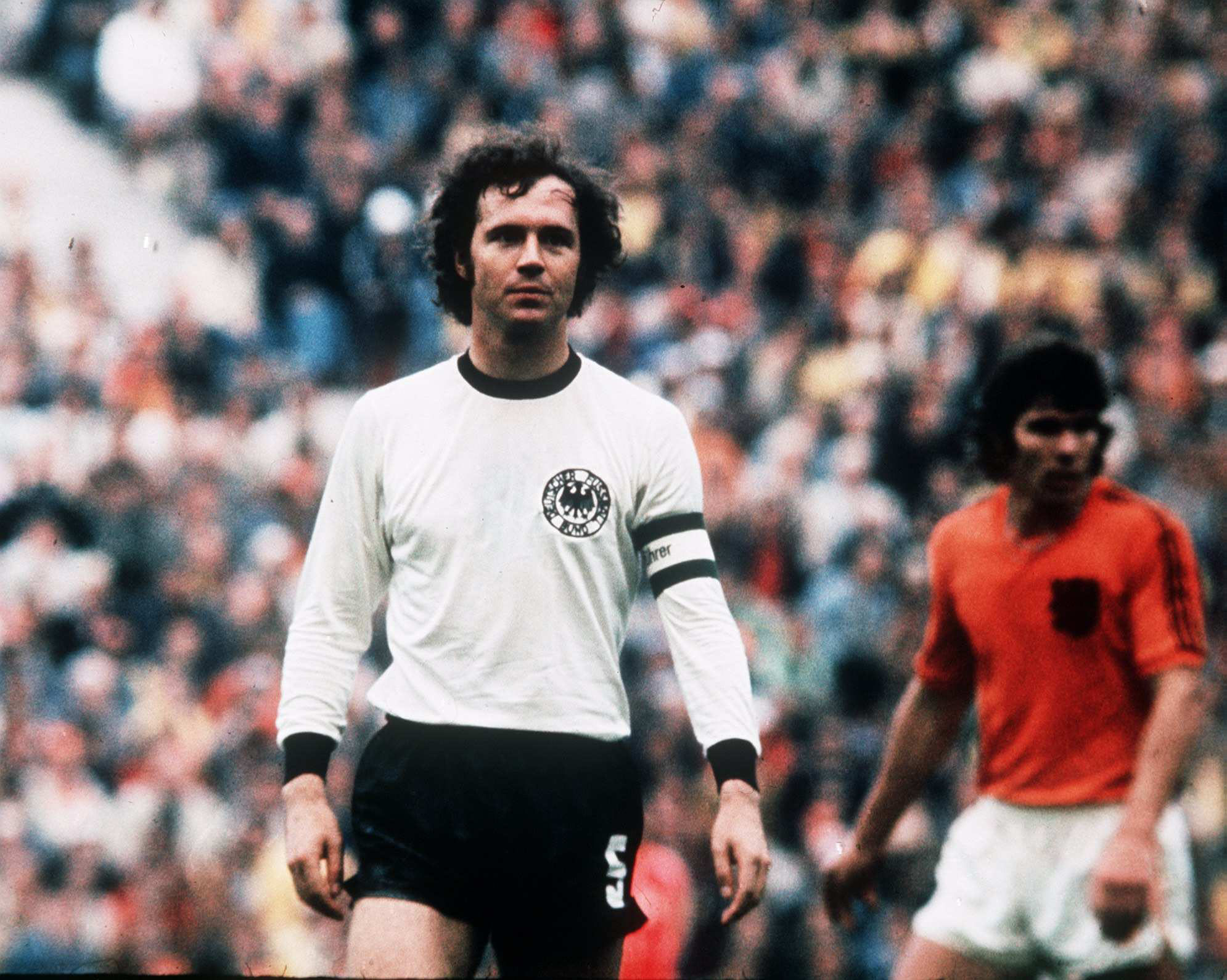
Der Kaiser won it all between 1972 and 1976: three Bundesliga titles, three European Cups, the World Cup, European Championship and two Ballon d'Or awards. A natural born leader, Beckenbauer dragged his Bayern Munich and Germany teams to finals upon finals and trophies upon trophies through his dominant ability and cajoling of his team-mates.
Though not universally loved during his playing days, the German's footballing ability is highlighted by the fact he started as a centre-forward, excelled as a left winger, kept things ticking in central midfield before settling into the role of the modern sweeper - a position he is credited as having invented.
A defensive player who started from deep, Beckenbauer would often proactively get involved in attacks, and to great effect, too: across his 20-year career, Beckenbauer scored 98 goals in 754 appearances at club level, including plenty more assists.
On the ball, the German was clearly a brilliant player, calm and composed during even the most-pressurised of situations. Off it, he commanded respect from team-mates and opponents alike, with his reading of the game second-to-none.
Beckenbauer would regularly make crucial interceptions and timely interventions simply by being in the right place at the right time, before striding out from defence with such grace that he made the game seem simple.
Managers loved him, too, depending on his reliability. Nowhere was that more evident than during the 1966 World Cup, when he was tasked with man-marking Bobby Charlton out of the game at just 21-years-old. Though West Germany ended up losing the game, Beckenbauer fulfilled his duty, with Charlton barely offered a sniff all match. He would go on to affect football matches in a similar way for the next 17 years.
2. Johan Cruyff
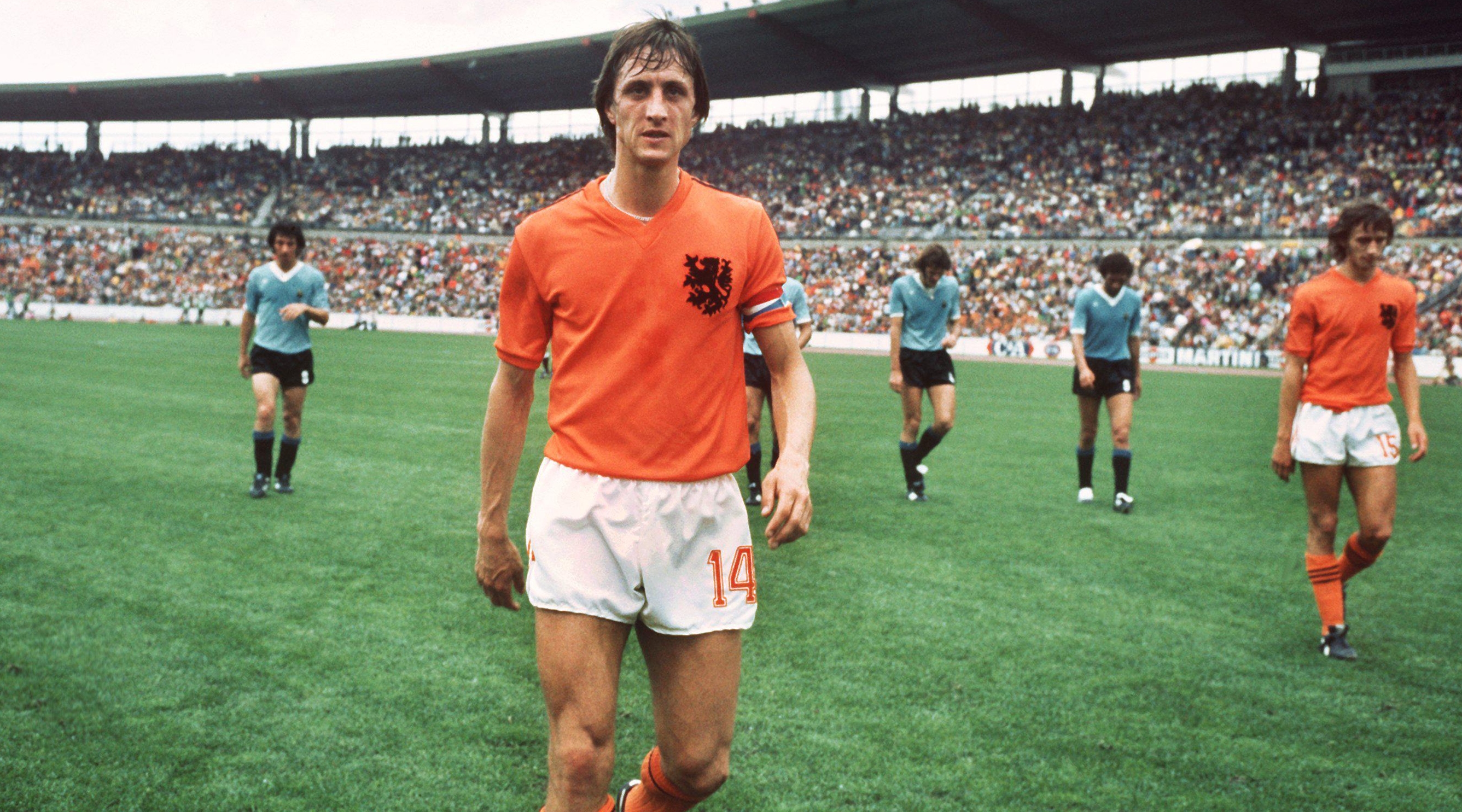
For younger generations, Johan Cruyff will forever be synonymous with that turn so effusively coined in at the 1974 World Cup; for older generations, the Dutchman is the Total Footballer.
As Swedish defender Jan Olsson, the victim of the Cruyff Turn in 1974 testifies, the skill highlighted his brilliance and genius all in one: "I played 18 years in top football and seventeen times for Sweden but that moment against Cruyff was the proudest moment of my career," Olsson said. "I thought I'd win the ball for sure, but he tricked me. I was not humiliated. I had no chance. Cruyff was a genius."
Indeed. Serving as Rinus Michels' on-field conductor for the Netherlands' famed Total Football system, Cruyff's tactical awareness meant that he orchestrated his team-mates into various positions on the pitch to such great effect that opposition defenders were often left bamboozled by what was happening.
Though he started as the team's centre-forward, Cruyff would drop deep and move out wide to get on the ball more frequently and drag defenders out of position. In doing so, he unwittingly became the first proponent of the false No.9, influencing modern footballers even 50 years on.
Sure, his technical ability was unmatched. He could dribble past opponents with such grace and ease, while his goalscoring prowess often didn't get the credit it deserved. But it was truly his brain that set him apart from the rest.
On the concept of technique in football, Cruyff once said: "Technique is not being able to juggle a ball 1,000 times. Anyone can do that by practising. Then you can work in the circus. Technique is passing the ball with one touch, with the right speed, at the right foot of your team mate."
It's no wonder, therefore, that Cruyff is arguably the most influential football figure in history, considering the impact he had both as a player and as a manager.
1. Cristiano Ronaldo
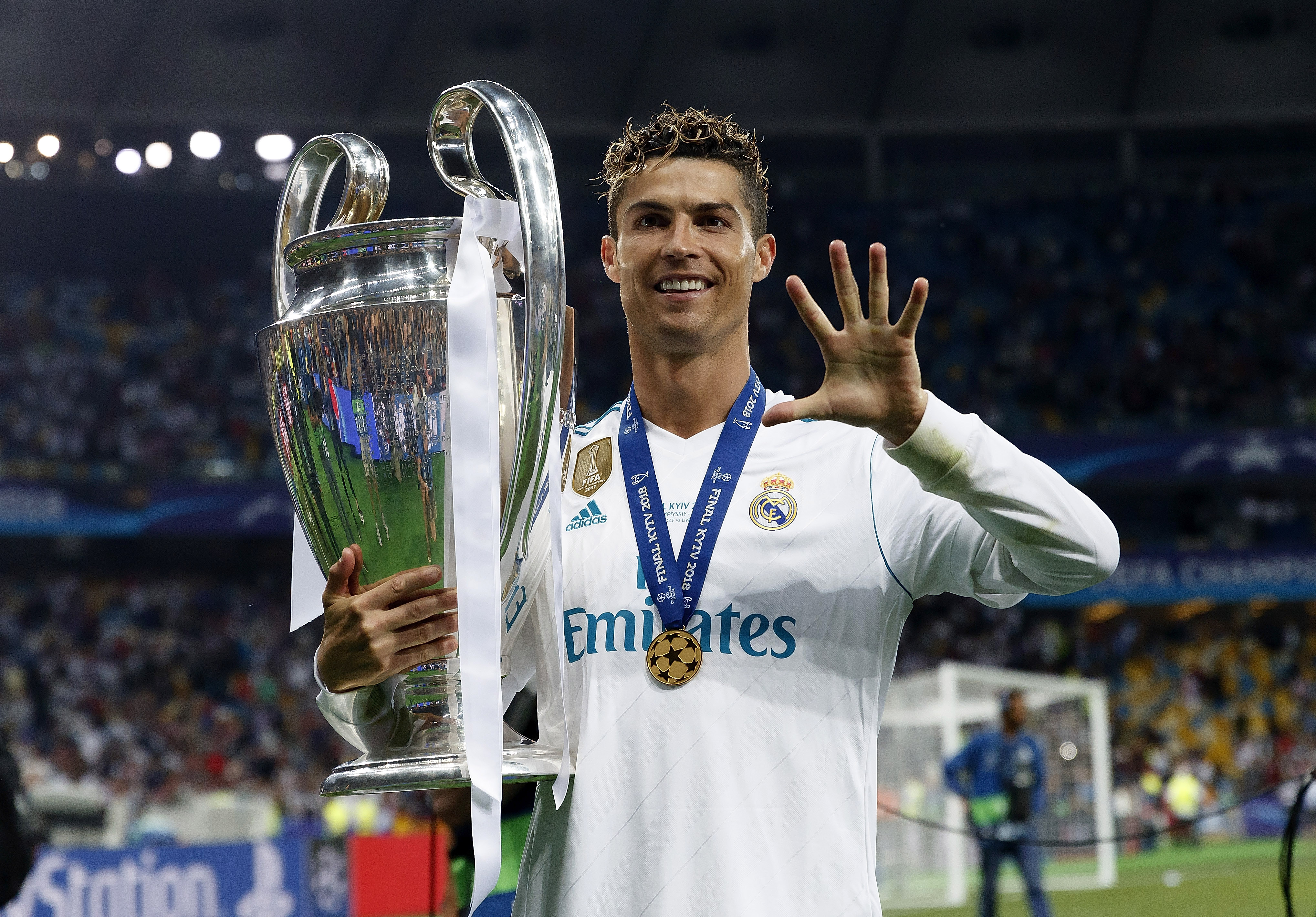
In the latter years of his career, things might not have all gone swimmingly for Cristiano Ronaldo: Lionel Messi won his eighth Ballon d'Or to all-but-end the debate of who is the greatest play of all time, with the Argentine also adding a World Cup trophy to his haul for good measure.
But, despite his footballing nemesis overtaking him, the Portuguese forward and his achievements simply cannot be overlooked when it comes to the best European players of all time.
His five Ballon d'Or awards, achieved in the same period when Messi was terrorising defences, is undeniably remarkable, placing him second on the list for most wins. Platini, Cruyff and Van Basten are the next best with three awards to their names, putting into perspective just how phenomenal, and consistent, Ronaldo has played during his career.
A winger by trade, Ronaldo reinvented himself into a striker as he turned 30, managing to convert his pace and dribbling skills into efficiency and goalscoring at an alarming rate. At Manchester United, he was highly-effective but still quite raw; at at Real Madrid, he became an unplayable monster.
Indeed, for six straight seasons between 2010/11 and 2015/16, Ronaldo managed over 50 goals in all competitions for his club, despite not playing predominantly as a striker, dragging them to four Champions League trophies during his time at the club, too, to add to the one he picked up at Manchester United.
Strong off both feet, Ronaldo's work rate is also unmatched. Known as a player who lives like a monk to ensure he prepares as best he can for matches, his ability to hang in the air and devastate defenders with his heading highlights just how much of an athlete he truly is.
At international level, he's been no different, either. The highest-scoring men's player in international games in history, having plundered over 125 goals in his 200-plus appearances for Portugal, the Madeira-born star also won a European Championship trophy with a poor Portugal side that only managed to win one game at Euro 2016 in normal time, in the semi-final against Wales.
Quite simply, no player - European or otherwise - has ever spent so long at the top.







